
Catholics for Renewal
Subtitle
News 2020, July - December
Views expressed are those of the Authors and may or may not always represent those of Catholics For Renewal.

Editorial Advent – Waiting with hope for Church renewal
“We begin to die the day we don’t act on things that matter.”
– Dr Martin Luther King Jnr
The Australian Plenary Council begins on 3 October 2021. This gathering of the 36 particular churches (dioceses) in this nation will be a rare opportunity to synodally address many of the most pressing issues that challenge our Church in our times. A long Advent is before us as we wait in hope for much needed renewal. This editorial considers the situation, aspirations, and prospects.
For the first time a brief (4'30") 'Video Summary' of the December Editorial has been produced for reader convenience and may be viewed HERE. The Full text Editorial may be read HERE

Edited extracts from From ACBC Media Blog, 17 December 2020
The presidents of the Australian Catholic Bishops Conference and Catholic Religious Australia say their annual report to the National Office for Child Safety outlines comprehensive and sustained work across Church settings. The provision of an annual report on progress in child protection and safeguarding was one of the recommendations of the Royal Commission into Institutional Responses to Child Sexual Abuse. The Bishops Conference and CRA adopted that recommendation. They have published the Church’s third such report today. “The annual report reflects that the Catholic community has been working hard for decades to ensure Church environments are safe, but we are constantly learning from experts within and beyond the Church how to improve our practices and protocols and, most importantly, to change the culture,” said Archbishop Mark Coleridge, president of the Bishops Conference. “We are committed to ongoing reform of our practices, documenting our reforms and explaining how we are creating and maintaining safe environments for all people.” CRA president Br Peter Carroll FMS said the annual report is an important way, but not the only way, in which the Church can report on its progress both at the national level and at the level of individual Catholic entities. The National Catholic Safeguarding Standards are being embedded across all Catholic ministries – dioceses, parishes, schools, early learning, social services and countless others........(more)
Annual Progress Report 2020 The Catholic Church in Australia’s Implementation of the Recommendations from the Final Report of the Royal Commission into Institutional Responses to Child Sexual Abuse HERE
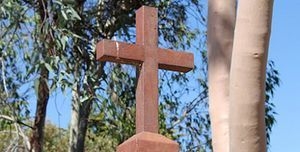
From ACBC Media Blog, 17 December 2020
A review of governance will help shape the way the Catholic Church in Australia understands co-responsibility in its life and mission and puts it into practice, the Australian Catholic Bishops Conference has said. The Australia bishops reviewed and discussed the final version of the governance review report The Light from the Southern Cross: Co-Responsible Governance in the Catholic Church in Australia during their recent plenary meeting. The bishops finalised their initial response to the report, which they have published today. “A report that contains dozens of recommendations and was prepared over more than a year takes time to consider and absorb,” Bishops Conference president Archbishop Mark Coleridge said. “So the bishops gave substantial time to the report during the meeting and in the preceding weeks and months. As the report’s authors said, it isn’t the last word on governance. Nor is the bishops’ response to the report.” In their response, the bishops group topics and recommendations under six headings: • the nature of the Church; • the mission of the Church; • co-responsibility; • consultation, advice, decision; • relationships between entities; • evolution in Church governance. These are important and complex themes, on which much has already been written. But the report has the advantage of being fresh and locally produced. It speaks to the Australian situation but has implications for the Church beyond these shores,” Archbishop Coleridge said. “It’s not for the bishops alone to discern the way forward for the Church at this time, and this report draws together other voices which the bishops welcome. “The Light from the Southern Cross is the fruit of listening and will help the bishops listen more deeply to the voices of the Church and the voice of the Spirit.” The bishops’ response points out that many of the matters raised in the document may be better handled by a local bishop or province rather than at the national level. Where there are other matters that do warrant national consideration, the Fifth Plenary Council of Australia is another forum where that might be done. “The bishops are very grateful for the remarkable work which the Governance Review Project Team has done,” Archbishop Coleridge said. “It’s something that’s never been done before and will provide an invaluable point of reference as we look to the future.” Click here to download the bishops’ response to The Light from the Southern Cross. Image: ACBC Media Blog 20201217
Conversion bill: churches fear state overreach on religion
Limited extract from Barney Zwartz, Contributor, The Age, 17 December 2020
Most
Victorian churches are intensely concerned about legislation the state
government is rushing through Parliament without consultation to ban
so-called conversion therapy to change sexual orientation. It is not
that the churches practise or defend any form of coercive conversion
therapy; the problem is the massive overreach of the bill and the State
arrogating to itself wide control over the religious beliefs and
practices of religious believers. Many Victorian churches are concerned about the conversion bill. No
faith leaders were allowed to see the Change or Suppression
(Conversion) Practices Prohibition Bill (2020) before it was introduced
to Parliament, and the Attorney-General, Jill Hennessy, has declined to
meet church representatives herself. Many
Christians – and people of other faiths – fear there is a broader
agenda at work by a state government more hostile to Christianity than
its predecessors. It showed this, for example, by classing religion as
merely entertainment during lockdown, and making restrictions much
tighter for churches than restaurants or bars, despite stringent
COVID-safe plans applied in churches. They fear the bill may hide an
agenda to silence people of faith. And
not only believers. Thanks to the broad-brush approach, this
legislation might unintentionally intrude on rights and freedoms that
are precious to everyone. Freedom of belief and speech are fundamental
rights that are important for the common good, for atheists or the LGBT
community (which includes believers) as much as religious people. Personally,
I accept that the intentions behind the legislation are good. The
problem is the apparently rushed and ill-considered overreach which
could have broad and – one trusts, but is not quite certain – unintended
consequences for freedom of belief, speech and religion. A
meeting of leaders of Victorian churches unanimously supported the
intention of the bill to protect vulnerable people from coercive
practices.....(source)
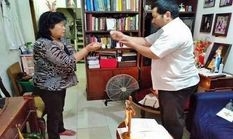
Church allows faithful to give sacrament to family members who cannot attend church due to COVID-19 restriction
Limited extracts from Katharina R. Lestari, Subscription Journal La Croix International, 16 December 2020
......Nearly four months later, after local authorities began to ease social restrictions imposed to combat the pandemic in the capital, the archdiocese reopened churches for public Sunday Masses with a limited capacity of up to only 20 percent. In the beginning, only three out of 66 parishes served by the archdiocese were allowed to reopen their churches, including Our Lady of the Assumption Cathedral in Jakarta. They had all met the health and safety requirements set out by the archdiocese to reopen, such as providing wash basins, body temperature scanners, social distancing and the wearing of face masks. More parishes were allowed to reopen as time went by. Paulina's parish, for an instance, resumed public Sunday Masses on Aug. 16. However, the archdiocese's policy says that these Masses during the COVID-19 pandemic can only be attended by parishioners aged 18-59, while children and elderly people should continue to join livestreamed Masses for the sake of their health.......Om October 27, the archdiocese issued a letter containing guidelines on the distribution of Holy Communion by Catholic laypeople during the COVID-19 pandemic, which was considered an extraordinary situation. According to the eight-page guidelines, a healthy Catholic adult aged 18-59 who has received the sacraments of initiation — Baptism, Confirmation and Eucharist — is allowed to serve as a Pelayan Pembawa Komuni or PPK (Holy Communion carrier servant). The guidelines also stated that a PPK should firstly join a livestreamed or public Sunday Mass before distributing Holy Communion to their family members in a very respectful way. The archdiocese's policy was issued based on, among others, the Code of Canon Law that stipulates that "laymen who possess the age and qualifications established by decree of the conference of bishops can be admitted on a stable basis through the prescribed liturgical rite to the ministers of lector and acolyte." In that case, a PPK is different from "a pro-deacon" or a parish lay minister whose tasks include distributing Holy Communion and conducting funeral rites, a practice common in many parts of the world due to a shortage of priests.....(source)
Bishop Charles Morerod says there are far too many foreign priests for the dwindling number of Catholics in Lausanne-Geneva-Fribourg Diocese
Limited extract from By Claire Lesegretain | Switzerland , Subscription Journal La Croix International, 16 December 2020
Swiss Bishop Charles Morerod, has announced plans to "reduce by half the number of priests" in the Diocese of Lausanne-Geneva-Fribourg (LGF) that he's headed since 2011. "Most of the time, people talk about a shortage of priests, whereas there is rather a plethora of priests (here)," he explained in a recent interview with the Swiss Catholic news agency Cath.ch. "In Freiburg alone, a small town of 38,000 inhabitants, there are 40 Masses every Sunday. That far exceeds the demand," he said. The 59-year-old bishop, a Dominican theologian and former rector the Pontifical University of St. Thomas Aquinas (the Angelicum) in Rome, has a reputation for speaking freely and boldly. Bishop Morerod, who also served as secretary general of the International Theological Commission from (2009-2011), has spoken out on the need for profound ecclesial reform, even to the point of disagreeing at times with his confreres. Reducing the number of priests from 345 to 170....(more)
Limited extract from Timothy Jones, The Age, 15 December 2020
The Victorian government’s bill to ban LGBTQ+ conversion practices has raised confusion and disquiet in some religious communities about potential threats to their religious freedoms. These fears are quickly assuaged by a plain reading of the bill and the statement of compatibility with the Charter of Human Rights. The Victorian government’s bill has raised confusion in some religious communities. The Victorian LGBTQ+ conversion practices bill proposes to limit all practices aimed at changing or suppressing a person’s sexuality or gender identity, including religious practices. This goes further than laws in other jurisdictions, which have focused on the actions of registered health professionals. The Victorian bill carefully weighs the protection of religious freedom against the protection of the rights of LGBTQ+ people and is the product of significant consultation. It does not ban prayer, preaching or pastoral support about gender and sexuality in general. But it does prevent these spiritual practices being misused in attempts to change or suppress a person’s sexuality or gender identity and thereby causing them harm. It has been found to be consistent with Victorian human rights law and does not constitute an overreach. The International Covenant on Civil and Political Rights protects people’s rights to religious freedom. It holds that while the freedom to hold religious beliefs is absolute, religious practices should be limited when “necessary to protect public safety, order, health, or morals or the fundamental rights and freedoms of others”. There are numerous examples where we do this already in Australian law. Jehovah’s Witnesses hold religious objections to blood transfusions, but Australian law overrides the practice of that belief in circumstances where a blood transfusion is necessary to save the life of a child. Several religious communities have traditions of female genital cutting. Yet Australian law overrides that religious practice, making it both illegal to perform in Australia or to remove someone overseas for the practice. And more recently, several Australian jurisdictions have followed the recommendations of the child abuse royal commission to limit the seal of confession in order to protect children from sexual abuse.....(more).

Extract from CathNews, Catholic Education Wilcannia-Forbes, Facebook 10 December 2020
Wilcannia-Forbes Diocese has launched a new religious education program developed for its Catholic schools that enables children to have a hands-on approach to learning the faith. On Thursday, December 3, Wilcannia-Forbes Bishop Columba MacBeth-Green OSPPE officially launched and decreed the “Educating in Christ” program, which has been developed specifically for the diocese. “Educating in Christ is a religious education program based using a ‘liturgical spiral’ by which students participate in learning experiences that are aligned to the liturgical seasons of the Church,” Bishop MacBeth-Green wrote in a statement on his Facebook page yesterday. The program’s methodology is based on the work of famed Italian educator Maria Montessori (1870-1952) and Sofia Cavalletti (1917-2011), who founded the Catechesis of the Good Shepherd faith formation program for children. Bishop MacBeth-Green said the program’s primary goal is to “bring each student into a closer intimacy with Jesus Christ through the Scriptures, Traditions and Catechism of the Catholic Church”. “This religious education program will ensure that our students are taught the richness of our Catholic faith with a hands-on approach that makes religious education fun and exciting that ensures our students will grow to love Jesus Christ the Word made Flesh and his Church on earth,” Bishop MacBeth-Green said.....(more) Photo: RE program Montessori Cavalletti Wilcannia-Forbes Facebook Bishop Columba MacBeth-Green CathNews 20201210
Extract from Cath News, Vatican News, 10 December 2020
The Vatican COVID-19 Commission hosted a webinar yesterday, gathering scientific and faith perspectives to discuss the global climate crisis and to chart paths towards a cleaner, healthier planet. The Vatican webinar, held in collaboration with the Commission of the Bishops’ Conferences of the European Union, commemorated the 5th anniversary of the Paris Agreement, adopted in December 2015, and tomorrow's climate Ambition Summit 2020. The “Faith, Science and Youth: A call for an ambitious climate summit” event aims to highlight the need to urge governments to raise their ambition for tackling the climate emergency. It gathered global voices from faith, science and youth to discuss ways to simultaneously address the pandemic health crisis and the climate crisis through “a just and sustainable recovery of economies and society that puts people and the planet before profit”. Cardinal Peter Turkson, the Prefect of the Vatican Dicastery for Promoting Integral Human Development, was among participants in the webinar. He reiterated Pope Francis’ call for an ecological conversion in the Laudato Si’ encyclical and said in the light of the COVID-19 crisis, it was important to build new models and rechart our paths to emerge better from the pandemic.....(more)
Extracts from Melbourne Catholic, 10 December 2020
Archbishop Peter A Comensoli has confirmed that Mass for You at Home will continue in 2021, correcting false media reports and social media commentary. Mass for You at Home, one of the nation’s longest-running television shows, will continue to air on Network Ten, and in regional areas and on pay television through Aurora. It will also be available online on demand. 'I can confirm that Mass for You at Home will be on air in 2021, with the Archdiocese having recently underlined that intention with Network Ten,' Archbishop Comensoli said. The Archbishop acknowledged that the broadcasting costs for Mass for You at Home are a challenge. The Church across the country is working with supporters and collaborators to ensure Mass can be beamed into living rooms into the future...........For decades, Mass for You at Home has been a source of comfort and strength for people who – for a range of reasons – haven’t been able to attend Mass in person,' he said. Archbishop Comensoli said there has been a proliferation of online Masses during the COVID-19 pandemic, many of which will continue. But there are some people for whom technology is not available or not familiar. 'People living in aged care, those in hospital or house-bound, people in prison, others awake early on a Sunday morning have been able to find spiritual nourishment in a world that can often be filled with "noise",' Archbishop Comensoli said. 'The people who have been expressing concern about the future of Mass for You at Home demonstrate that the program continues to meet an important need. We look forward to it continuing.' Archbishop Comensoli said the program will undergo some changes in 2021, including seeing Masses filmed in churches......'COVID-19 has underlined the need for our Church and our society to be agile and responsive to what is happening in the world,' he said....(More)
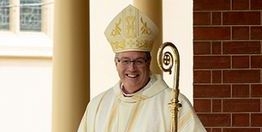
Extract from CathNews, Sale Diocese, 9 December 2020
Bishop Greg Bennet was ordained the 10th Bishop of Sale yesterday in front of dozens of people gathered in St Mary’s Cathedral, with many more joining the ceremony online. A small gathering of 91 people was present to witness Bishop Bennet’s episcopal ordination, which was also livestreamed. Melbourne Archbishop Peter A. Comensoli was principal consecrator, assisted by co-consecrators Melbourne Archbishop Emeritus Denis Hart and Adelaide Archbishop and former Sale bishop, Archbishop Patrick O’Regan. Before the ceremony a video of welcome was screened featuring messages to Bishop Bennet from people around the diocese and beyond. The video was a creative response to the challenges of COVID-19 restrictions. Under normal circumstances, representatives from Sale parishes, Catholic schools, agencies, charitable organisations, ecumenical and interfaith leaders and civic leaders would formally receive the new bishop. In his thank you speech, Bishop Bennet acknowledged the virtual welcome and said he looked forward to “really” meeting all those involved. “I have become aware of so many local initiatives across our towns and suburbs which need to be celebrated as the Good News in action; these are tangible examples of faith in action which bring joy, care and reflect the servant leadership of Jesus entrusted to his disciples in every age.....(more). Photo. Bishop Greg Bennett, Lisa Baker, CathNews, 20201209

Victoria’s conversion bill is world-leading legislation
Extract from Nathan Despott and Chris Csabs, The Age, 8 December 2020
For decades, damaging – even life-threatening – conversion practices have been flourishing in faith communities and religious organisations right under our noses. These practices are aimed at changing or suppressing the identities of lesbian, gay, bisexual, transgender and asexual Victorians. Melbourne, the ‘liveable’, progressive, sports-mad capital of Victoria is not the place where one would expect an ideology grounded in unscientific claims about the inherent ‘brokenness’ of LGBTQA+ people to proliferate. However, it is now becoming clearer to all Victorians that the scourge of conversion practices is not, and has never been, alien to our state. While conservative branches of several faith traditions often label LGBTQA+ people as sinful or immoral, proponents of ‘conversion ideology’ go even further, implementing practices focused on changing or suppressing the sexual orientation (distinct from sexual activities) or gender identity of individuals. Often, these practices are grounded in the view that these identities are inherently disordered, causing catastrophic damage to LGBTQA+ people. Conversion practices tinker with LGBTQA+ people’s minds, attachments, and their deepest sense of self, ruining family connections and causing suicidal ideation rates that are among some of the highest of any cohort of the population.....(more). Photo: Marriage equality Melbourne, the Age, Dallas Kilponen 20201208

Annual report: Some US dioceses improve financial transparency, others remain secretive
Extract from Madeleine Davison, National Catholic Reporter, 8 December 2020
More U.S. dioceses published audited financial documents in 2020 than before, but more than a quarter still did not publish any audited financial reports, according to an annual financial transparency report by the lay organization Voice of the Faithful. About 70% of dioceses posted audited financial reports on their websites in 2020, up from 65% in 2019 and from 56% in 2017, according to the review. Margaret Roylance, chair of the organization's finance working group, said she was heartened to see that many dioceses published these reports on time despite delays due to COVID-19. "We felt that financial transparency was beating COVID and that made us feel good," she said. On the other hand, 6% of dioceses posted only unaudited reports, and 24% posted no reports at all. The report, released in November, surveys the financial practices of all 177 dioceses that belong to the U.S. Conference of Catholic Bishops. It scores dioceses' financial transparency practices on a scale from 0 to 100. The organization awards each diocese points for publishing a variety of financial documents, including audited financial reports, information about the diocese's cathedraticum (tax collected from individual parishes) and a current list of members on the diocesan finance council. "From the beginning … our motivation has always been to encourage greater financial transparency, which should foster trust in diocesan leadership and strengthen stewardship," said Roylance, who drafted the financial transparency report.............(more). Photo: US dioceses financial transparency others secretive CNS Reuters Mike Segar NCR 20201108
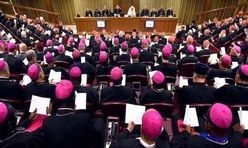
The Church must better embrace synodality, the gift of the third millennium
Linited extract from Justin Stanwix, Australia, subscription journalLa Croix International, 8 December 2020
The vision that the bishops of the Second Vatican Council (1962-65) put forth for "full, conscious and active participation" in the Eucharist should be extended to the synodal life of the Church. As we welcome the Advent Season in preparation for the great celebration of the Christ child at Christmas, this could be one of the Church's New Year's Resolutions. The freshness of the command for participation of the people of God in the Eucharist as entreated by Vatican II may have slightly faded during our pandemic-induced repose, but its enduring substance remains. With comprehensive prescience the Council Fathers applied this command for full participation to all elements of the Eucharist -- to proclamation of sacred scripture, preaching, music and the arts, in addition to the central sacrificial offering. They also asserted its application to the spiritual life. The context is not about an avoidable detail or matter of passing interest. Rather, this high demand is expressed by the Council as being about "the source and summit of the Christian life". It is the highest claim about our essential being. It is the liturgy, "through which the work of our redemption is accomplished".
Equally then, that renewed understanding of the Church expressed by Vatican II should be embraced for its application to synodality -- the way we participate, together, as the People of God, to discern the sense of faith of the people of God (sensus fidei). Clearly, we are not contemplating another structure or what Pope Francis calls "functionalism". Distrust of institutions ensures avoidance of that course. Rather, we want participation that engages people and their concerns to ensure that distrust of institutions will be overcome. The pope said in a different context (referring to clericalism): "It is impossible to think of a conversion of our activity as a Church that does not include the active participation of all the members of God's People." Collegiality lays the foundation for synodality. There is little new about the basic concept.........(more). Photo: Synod of Bishops 2015 EPA ETTORE FERRARI MaxPPP La Croix International 20201208
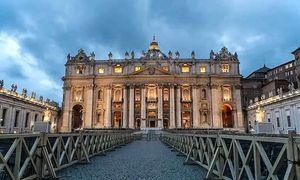
Limited extract from Loup Besmond de Senneville, Subscription Journal La Croix International, 7 December 2020
Vatican City. Pope Francis has expanded the powers of the Vatican's financial police, an entity formed in 2010 as the Financial Information Authority (AIF), and renamed it the Supervisory and Financial Information Authority (ASIF). The announcement of the change on December 5, which was accompanied by the publication of the ASIF statute, marks a further step towards regulating the Vatican's financial activities. But the move is far more significant than a simple name change. First of all, the new statute creates a true unit for financial supervision. This is a way of strengthening control over the Holy See's financial activities, especially in the fight against money laundering and the financing of terrorist activities. The text signed by Francis thus distinguishes between supervision and financial regulation.......(source). Photo: La Croix International 20201207
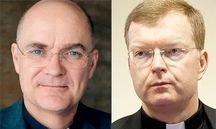
Extract from CathNews NZ, 7 December 2020
Dealing with the impact of sexual abuse has been largely outsourced by the Church.
Now an initiative is being launched, with the support of Cardinal Reinhard Marx, Archbishop of Munich and Freising, taking a fresh pastoral approach to the welfare of survivors. “You took away my faith”; “The Church cheated me out of my relationship with God”; “When I needed the Church, it was not there for me!” Time and again, we hear these cries from the victims of sexual abuse.
They point to the pastoral and spiritual failure at the heart of this crisis. Many of the survivors of abuse are members of the People of God; their suffering is a deep wound in the Body of Christ. Saying “sorry” is not enough. There must be a fundamental change. It is now time for the Church to walk together alongside victims, to listen to them and to learn from them, and to serve and support them in their search for healing, wherever that might take them. Anyone listening to survivors will often hear how badly sexual violence by a priest or other church figure can damage their relationship with God, or destroy it completely, and how they have felt completely abandoned by the Church when they have tried to understand and deal with the spiritual consequences of the abuse they have suffered. Despite all the public and private apologies, the compensation paid to victims, the implementation of prevention and training programmes, the creation of safeguarding structures, and the commissioning of scientific studies into the root causes of abuse, it is clear that the Church is still failing survivors at this fundamental, spiritual level. At present – when it does not avoid offering support altogether – the Church tends to delegate dealing with the effects of abuse to psychiatrists and canon lawyers, to internal Church specialists or external professional experts. Caring for the victims of abuse has become the responsibility of a small and increasingly specialised group of people, who operate largely on the periphery of Church activities.....(more). Photo:beer-zollner CathNews NZ 20201207
Ediyed Extract from York More, CathNews NZ, The Exchange, 7 December 2020
Give a small biy a hammer, and he will find that everything he encounters needs pounding,” said philosopher, Abraham Kaplan. In the Church today, we have one single instrument for leadership—the pastor. Search church positions on any of the many job search forums and recruitment sites and you’ll find there is only one tool churches are searching for—pastor. Senior pastors, teaching pastors, executive pastors, worship pastors, children’s, teens, collegiate, campus, in-take, discipleship and volunteers pastors. We seem to think the only kind of leadership we need can only come in one form—pastor. To be fair, pastors are important and should be instrumental in leading the Church but it was not God’s design for the Church to have but one instrument. Because we only have one tool, every task, goal, obstacle, vision statement, purpose statement, and organizational strategy typically has just one leadership perspective–a pastor’s perspective. When it comes to leadership, the Church in North America is like a small boy with a hammer and because of that, everything looks like it needs pounding. We cannot reach the world with just a hammer, no matter how great that hammer is. Ephesians 4:11-13 tell us, however, “So Christ himself gave the apostles, the prophets, the evangelists, the pastors and teachers, to equip his people for works of service, so that the body of Christ may be built up until we all reach unity in the faith and in the knowledge of the Son of God and become mature, attaining to the whole measure of the fullness of Christ” (NIV). Leadership in the Church is five-fold and incorporates an array of tools to achieve missional maturity...........(more).
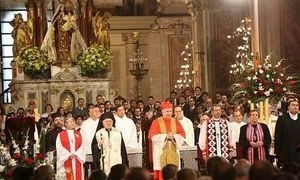
Extract from CathNews NZ, 7 December 2020
Catholics must work towards Christian unity, a new guidebook from the Vatican says. It can no longer be seen as “optional” by bishops. They won’t be left to work out how on their own though. The new guidebook, released by the Pontifical Council for Promoting Christian Unity, offers practical ways for bishops to promote unity between Christians. Bishops must pray “personally and publicly for other Christian leaders,” promote ecumenical work online and appoint ecumenical officers and commissions. At the same time, the guide warns against getting involved in heated arguments or “misrepresenting the positions of other Christians.” Instead Catholics should focus on “weighing truths rather than simply enumerating them,” it explains. The goal of Christian unity may not be straightforward, however, as it raises a number of big questions. One relates to Catholic-Anglican unity. Unless Pope Leo XIII’s decree that Anglican orders are “absolutely null and utterly void”. “I think we must have a better interpretation,” Cardinal Kurt Koch, the president of the pontifical council says. “I think it’s a very important question because the validity of the ordination is the biggest obstacle for sharing the same altar …” Another problem concerning Anglican-Catholic unification relates to the ordination of women as priests and bishops – a decision that is unacceptable for the Catholic Church. The guidelines indicate there is no change in the offing regarding sharing communion with Christians from other denominations. The current rules – that allow this to happen in “certain circumstances” – are restated.....(more). Photo: Christian Unity, Cathews NZ, The Tablet 20201107

Extract from ACBC Media Blog, CathNews, 3 December 2020
The first assembly of the Plenary Council will take place with a combination of online and face-to-face participation as uncertainty remains over restrictions on travel and gatherings. Source: ACBC Media Blog. The decision to hold the October 2021 assembly in a “multi-modal” format was reached last week based on feedback from a number of groups, including the steering committee for the Council assemblies, the Plenary Council’s facilitation team and risk assessors. Plenary Council president Archbishop Timothy Costelloe SDB said while COVID-19 travel restrictions might be lifted by the time of the first assembly, ongoing social distancing requirements and questions around flight schedules and costs were concerns. Archbishop Costelloe said the bishops, during their biannual meeting last week, wrestled with the decision before conceding that the move to a multi-modal gathering was the only realistic option. Under that format, delegates will gather in local groups – diocesan, inter-diocesan or provincial – and participate in some Council sessions within those groups. Other sessions will take place with those groups engaging in conversation, prayer and discernment with other groups around Australia. Peter Gates, from the Plenary Council’s facilitation team, said while contingency planning for an online assembly began as the pandemic’s second wave in Victoria unfolded, the decision to move to a “multi-modal” gathering means the planning can now proceed with urgency. “Now we can focus solely on ensuring that the first assembly can honour and carry forward the listening, dialogue and discernment that has already taken place, albeit in ways we couldn’t have imagined a year ago.”....(more)

Extracts from Media Release, Catholic Professional Standards, 3 December 2020
Australian Catholic Safeguarding Ltd’ (ACSL) has today been launched as the Australian Catholic Church’s new national body for safeguarding, which will streamline and coordinate the Church’s work to create safe environments for children and adults at risk. The announcement was made at the Annual General Meeting of Catholic Professional Standards Ltd (CPSL) earlier today. Australian Catholic Safeguarding Ltd merges existing entities CPSL, the Australian Catholic Centre for Professional Standards and the Australian Catholic Ministry Register, bringing together national responsibilities for safeguarding into one entity. ACSL is led by Board Chair Professor the Honourable Michael Lavarch AO, who previously served on the CPSL Board. “'I am honoured to become the Chair of ACSL which will bring together critical work that assists the Church to be a safe and nurturing environment for all, particularly children and adults at risk,” Professor Lavarch said. “I’m also pleased to announce ACSL’s Board, whose experience and credentials in child and adult safeguarding, professional standards, law, governance, Church administration, finance and management will be vital in guiding ACSL. I am pleased to welcome to the ACSL Board Dr Robyn Miller (who previously served on the CPSL Board), Mrs Mary McComish, Sr Kath Tierney RSM AO, Mr David Penny and Mr Julian Widdup.” ........“Supporting the Church to ensure the safety of children and adults at risk is the Board's utmost priority. Over the coming months the Board will work swiftly to oversee the transition of the previous bodies into ACSL. During this period, the critical safeguarding work already being performed by the previous bodies, will continue as planned.”....(More)
Extract from John Lavenburg, nationbal Correspondent, Crux, 2 December 2020
NEW YORK — In an introductory teleconference Tuesday morning, Auxiliary Bishop Michael Fisher of Washington emphasized his collaborative, cooperative, and communicative approach to ministry that he will bring to the Diocese of Buffalo as its new bishop. Fisher comes to the diocese at a time of turmoil amidst a cleric sex abuse lawsuit. Last week, New York State attorney general Letitia James sued the diocese, former Bishop Richard Malone and Auxiliary Bishop Emeritus Edward Grosz for failing to protect minors and inadequately investigating and reporting claims against diocesan priests that went back decades. “I’m coming in as a pastor,” Fisher said. “I know we need to be truthful. I know we need to establish trust with those we serve. Our parishes, our schools, need to be places that our parents and those we serve feel safe. I’m very much for accountability and transparency.” Accountability and transparency are areas the diocese fell short over the years that put it in this position.....(more).
Extracts from Francois Gloutnay, National Catholic Reporter, Catholic News Service, 2 December 2020
Montreal — For more than three decades, leaders of the Archdiocese of Montreal failed to properly treat the complaints and the red flags periodically raised about Fr. Brian Boucher, said a report prepared by retired Quebec Superior Court Judge Pepita G. Capriolo. Instead, church authorities seemed intent on covering the priest's behavior to protect his and the church's reputation, she wrote. In 2019, Boucher was sentenced to eight years in prison for sexual assault of two boys; he was laicized in 2020. But in her 283-page document on Boucher, Capriolo said numerous incidents were reported and called into question during his career. For nearly 40 years, these warnings were all ignored or deemed irrelevant, especially because they concerned adults and not minors. Capriolo reported not only on sexual abuse, but also physical assault, threats, loss or destruction of secret documents, and even a burglary in the secret archives of the archdiocese. The former judge called the case a "debacle" for the Archdiocese of Montreal. Her report was issued Nov. 25, exactly one year after Montreal Archbishop Christian Lépine asked Capriolo to conduct an "independent external inquiry" into the events leading up to Boucher's arrest in January 2017 and his conviction in March 2019. Lépine accepted Capriolo's conclusions "in humility and a deep sense of regret." On behalf of the church and "speaking for myself personally, I wish to say to the victims, to your loved ones and your parish communities how sorry we are that you experienced the effects of such terrible criminal acts, which should never occur, never." Capriolo said she obtained full and independent access to all documents, including those contained in the secret archives of the archdiocese........"Many people had complained about Boucher's unacceptable behavior over the years: He was rude, authoritarian, overly intense, intransigent, homophobic, racist, misogynist and verbally, and sometimes even physically, aggressive," wrote Capriolo. "These complaints were repeatedly reported to his superiors.........(more). Photo: Montreal Archbishop Christian Lépine CNS photo Presence Philippe Vaillancourt, NCR 20201202
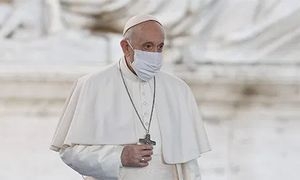
Extract from CathNews NZ, 30 November 2020
To come out of this pandemic better than we went in, we must let ourselves be touched by others’ pain. Pope Francis is the head of the Catholic Church and the bishop of Rome. In this past year of change, my mind and heart have overflowed with people. People I think of and pray for, and sometimes cry with, people with names and faces, people who died without saying goodbye to those they loved, families in difficulty, even going hungry, because there’s no work. Sometimes, when you think globally, you can be paralyzed: There are so many places of apparently ceaseless conflict; there’s so much suffering and need. I find it helps to focus on concrete situations: You see faces looking for life and love in the reality of each person, of each people. You see hope written in the story of every nation, glorious because it’s a story of daily struggle, of lives broken in self-sacrifice. So rather than overwhelm you, it invites you to ponder and to respond with hope. These are moments in life that can be ripe for change and conversion. Each of us has had our own “stoppage,” or if we haven’t yet, we will someday: illness, the failure of a marriage or a business, some great disappointment or betrayal. As in the Covid-19 lockdown, those moments generate a tension, a crisis that reveals what is in our hearts. In every personal “Covid,” so to speak, in every “stoppage,” what is revealed is what needs to change: our lack of internal freedom, the idols we have been serving, the ideologies we have tried to live by, the relationships we have neglected.....(more). Photo: pope-francis-in-mask CathNews NZ 20201130
Extract from CathNews NZ, Novena News, NCR, 30 November 2020
Catholic women have clapped back at Pope Francis after he called their struggle for ordination “clericalist” and “disrespectful”. According to Novena News, the women’s response is a reaction to Francis statement that women do not need to be priests in order to lead in the church. Novena News reports that many Catholic women remain unhappy that the pontiff has not furthered the cause of women’s ordination beyond a ‘timid’ opening to the study of the possible restoration of the female diaconate. In a statement November 24, the Womens Ordination Commission (WOC) said it rejected the Pope’s “mischaracterisation” of its own movement and others like it “working for a renewed priesthood, free from clericalism and gender discrimination”. They continued. “Women’s exclusion from ordained ministries not only undermines their capacity to make decisions as leaders, but reinforces cultural and social discrimination, and perpetuates structures that subordinate women and can lead to gender-based violence. “Until the hierarchy starts accusing every man seeking ordination of ‘clericalism’, we ask that the pontiff stop projecting the problems and corruption of his male hierarchy onto women longing to serve the Church. “We urge Pope Francis to listen to women who long for equal recognition of their ministries and an equal place at the church’s governing tables”. The WOC closed its reply to Pope Francis inviting him to join them this weekend to celebrate their 45 years witnessing to the “abundant gifts of those working for ordination justice”.....(more)
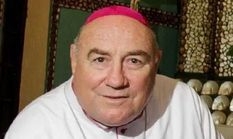
Extract from CathNews NZ, ABC, 30 November 2020
The Bishop of Broome, who is at the centre of a police investigation into allegations of sexual misconduct, has taken a sabbatical. Bishop Christopher Saunders will take six months leave away from his outback diocese, effective immediately. No charges have been laid, and Bishop Saunders has strenuously denied the allegations. The Vatican says the bishop’s sabbatical will help clarify matters that have created suspicion, confusion and uncertainty within the local church. The Vatican has launched its own, separate investigation into the bishop’s administration of the Broome Diocese. Saunders is one of the longest serving bishops and has led the diocese since 1995. The diocese which covers the vast Kimberley region of northern WA has been hit by a series of scandals. The Vatican’s initial action began in March when Kimberley priest John Purnell went public with concerns over the Catholic Church’s lack of action over the allegations against Bishop Saunders. The ABC has confirmed multiple staff contacted Catholic Professional Standards with concerns. Correspondence from as early as April 2019 revealed the church was repeatedly told by multiple individuals of the allegations. They urged the church to remove the 70-year-old bishop from his post. The bishop maintains significant support from some local parishioners. But others suggested it was untenable for him to remain in the diocese while the investigations were ongoing. Chris, a former Kimberley priest who resigned because of his concerns over how the allegations were handled, spoke out earlier this month. He said the bishop’s continuing presence in the Kimberley sent the wrong message. “It shows that the Church has not learnt from its mistakes of the past,” said Chris, who wished to remain unidentified. “There is something terribly wrong when it cannot deal with someone as powerful as a bishop.” Monsignor Paul Boyers will lead the Broome Diocese in Bishop Saunders’ absence......(more). Photo: Bishop-of-Broome CathNews NZ 20201130
Communique on the Diocese of Broome, Suffragan Diocese of the Metropolitan See of Perth
Extract from Commuique, 28 November 2020
This year, the Holy See appointed and sent the Most Reverend Peter W. Ingham, Bishop Emeritus of Wollongong, as Apostolic Visitator to the Diocese of Broome.Considering all the circumstances surrounding the whole Diocese of Broome, the Holy See has granted the Most Reverend Christopher A. Saunders a six-month sabbatical leave outside of the Diocese of Broome. This period will begin on the 28th of November, the vigil of the Season of Advent, which inaugurates the new Liturgical Year of the church.This period will represent a significant moment for a fruitful discernment of the whole situation of the Diocese, including the organization of its structures and with particular attention to the pastoral care of the faithful. Furthermore, it will offer the opportunity to clarify matters that may have created suspicion, confusion and uncertainty within the Local Church. During this period the present Vicar General, Mons. Paul Boyers, in the capacity of Apostolic Administrator Sede Plena, will administer the Diocese of Broome.......(more)

Prayer included in gay conversion ban
Extract from CathNews, Eternity News, 27 November 2020
Prayer-based
religious practices are included in a bill introduced to the Victorian
Parliament this week that would outlaw therapy that aims to change or
suppress a person’s sexual orientation. The
purposes of the bill “to affirm that a person’s sexual orientation or
gender identity is not broken and in need of fixing” and “to affirm that
no sexual orientation or gender identity constitutes a disorder,
disease, illness, deficiency or shortcoming” are in tension with
traditional Christian teaching. The
bill aims “to affirm that change or suppression practices are deceptive
and harmful both to the person subject to the change or suppression
practices and to the community as a whole.” The
bill says “a change or suppression practice” includes “carrying out a
religious practice, including but not limited to, a prayer based
practice, a deliverance practice or an exorcism.” Referring
a person to either a medical-based or religiously based practice is
also change or suppression practice is also captured. If “serious
injury” is caused, punishment includes up to ten years in prison and/or a
large fine. Intentionally engaging in a change or suppression practice,
to being negligent in engaging in one also attracts those
penalties. A lesser charge of “causing injury” will incur large fines.....(more). Photo: Conversion therapy proposed legislation Bigstock, CathNews 20201127
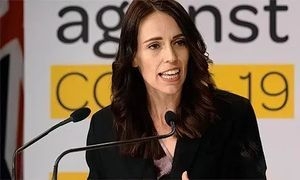
Extract from CathNews NZ, 26 November 2020
In his new book Let Us Dream, Pope Francis recognises the success of Prime Minister Jacinda Ardern in managing the COVID-19 pandemic. “The countries with women as presidents or prime ministers have on the whole reacted better and more quickly than others, making decisions swiftly and communicating them with empathy,” he says. By way of example, Francis cites the success in New Zealand, Germany, Iceland, Taiwan and Finland. This observation has led him to increase the number of women in decision making roles in the Vatican. Women are “much better administrators than men,” he writes. In his new book, Francis suggests “the perspective women bring is what the world needs at this time.” “Allowing women’s perspectives to challenge existing assumptions” in the Church, is something he has tried to focus on as Pope, he writes. Throughout his pontificate, Francis says he has sought to appoint women to leadership positions – in the Roman Curia and in advisory, board level positions on Vatican bodies. “I chose these particular women because of their qualifications but also because I believe women in general are much better administrators than men,” he says. “They understand processes better, how to take projects forward.” Francis is often criticised for not doing more to include women and for using outdated or non-inclusive language. He makes it clear that female leadership in the Church cannot simply be equated with what happens in the Vatican or on “specific roles.” Leadership should not be equated with inclusion into the ranks of the clergy, he says. “Perhaps because of clericalism, which is a corruption of the priesthood, many people wrongly believe that Church leadership is exclusively male,” he writes. “But if you go to any diocese in the world you’ll see women running departments, schools, hospitals, and many other organisations and programmes; in some areas, you’ll find many more women than men as leaders.” “To say they aren’t true leaders because they aren’t priests is clericalist and disrespectful.”.....(More). Photo: Adern, CathNews NZ, 2020112
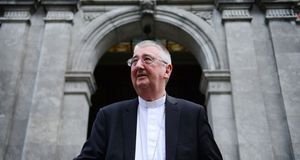
Fears Rome will impose an archbishop more interested in protecting its own interest
Extract from Patsy McHarry, The irish Times, 26 November 2020
The Irish Catholic Church stands at a critical juncture. It is about to lose its most influential leader, Archbishop of Dublin Diarmuid Martin. But for the pandemic, he would have been replaced already. He was 75 last April, the age when all bishops must submit a letter of resignation to Rome, and he was ready to step down. An announcement on his successor is expected before Christmas. Recent events were a reminder of his achievements in one critical area, that of child protection in the Irish Catholic Church. He was not alone in this, but his unequivocal approach to the issue – while placing survivors and the protection of children at its centre – set the tone. He also set the bar for dealing with statutory inquiries, unlike other senior church figures. He fully co-operated with the Murphy Commission, which investigated the handling of clerical child sexual abuse in the Dublin archdiocese. Such co-operation was not forthcoming from Rome, the papal nunciature in Dublin, or his predecessor Cardinal Desmond Connell who initiated a High Court action to prevent the commission having access to documents. He was persuaded to drop the action. Where some in the church are concerned, Archbishop Martin’s commitment and integrity on the abuse issue has meant that, from a clerical point of view, he will never be forgiven. For its part, Rome has only ever been lukewarm in its acknowledgement. To paraphrase Shakespeare: Martin did the job “not wisely, but too well”. It is imperative that whoever succeeds him as Archbishop of Dublin must be cut from the same cloth. He must be someone who has, at a minimum, a clean pair of hands personally on the abuse issue and be just as committed to the protection of children and to helping survivors.....(more). Photo: Archbishop Diarmuid Martin, Bryan OBrien, The Irish Times 20201126
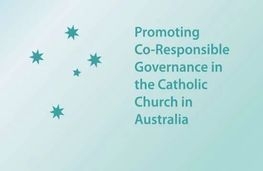
The entire Church should take seriously the proposals for ecclesial reform coming from Catholics in Australia
Limited extracts from Massimo Faggioli, subscription joirnal La Croix International, 25 November 2020
.......The Light from the Southern Cross" The national episcopal conference (ACBC) and the conference of men and women religious (CRA) set up a task force to formulate proposals for Church reform. It worked between 2019-2020 and submitted a 208-page report called The Light from the Southern Cross. (Full disclosure: I was one of the four external experts called to work with the task force). The report was finalized and submitted to the ACBC and CRA before the publication of the McCarrick Report. But, indirectly, it provides answers to the question of what needs to happen in the Church. An integral part of The Light from the Southern Cross is a recommendation section. Here a few of the recommendations: Reshape of the process for the appointment of new bishops to "embrace genuine discernment that includes clergy and a larger number of lay people" Make a more urgent effort to include women in "senior decision-making bodies" Mandate every diocese to have a pastoral council of laypeople that advises the bishop on major decisions Require each diocese to hold a local synod at least every 10 years Establish a national center for Catholic leadership and governance The potential of The Light from the Southern Cross, in the context of the Plenary Council, goes beyond the sex abuse crisis, as ecclesiologist Richard Gaillardetz of Boston College underscored in his analysis of the report. It would be naïve or disingenuous to read the task force's proposals separately from the consequences of the McCarrick Report. Not a call for a revolution, but for changes that are already possible "Unless change comes locally, it is not going to affect people's lives, even if the pope says something," noted theologian Richard Lennan in a recent online conference. An Australian priest who teaches at Boston College, he was also a consultant to the authors of The Light from the Southern Cross. The report represents a challenge to those that never say openly that they are against change in the Church, but merely object to the "manner" of change. Its proposals for reforming Church governance are deeply ecclesial. They do not aim to create something brand new, but to draw from the Church's existing resources. The Light from the Southern Cross does not call for a revolution, but for institutional reforms that are already possible now. It has been in the hands of ACBC and CRA, those who tasked the working group, since last August. But there has been a pushback at various levels -- both in public and in private -- with some accusing the report's authors of disregarding Catholic ecclesiology, or worse. Meanwhile, the episcopal conference meets this week to review the issue of Church governance in Australia. And the bishops will also examine The Light from the Southern Cross. The simple fact is that they and CRA now have a choice. They can take the report's proposals seriously and start acting on some of them, or they can ignore and dismiss the suggestions and the ecclesial spirit in which they are written. Whatever the Church leaders do, or fail to do, will have far-reaching consequences well beyond the boundaries of the Land Down Under. It will also say something about the entire Catholic Church's credibility in dealing with the abuse crisis. And that includes the credibility of Pope Francis......(source). Photo: action-plan-missing-from-mccarrick-report-can-be-found-down-under-13395-60 La Croix Int 20201125
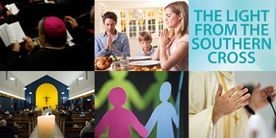
Extract from CathNews, ACBC Media Blog, 23 November 2020
Australia’s Catholic bishops will tomorrow open their second plenary meeting of the year under COVID-19 restrictions, with almost 40 bishops and other senior Church figures to gather online. The Australian Catholic Bishops Conference holds biannual plenary meetings each May and November. The May meeting this year was moved online – the first time such a gathering had not been held in person in the Conference’s 54-year history. “We had hoped back in May, when gathering via videoconference, that we would be able to meet in person by the time of our November meeting,” Conference president Archbishop Mark Coleridge said. “The second wave in Melbourne, where we had been due to meet, meant a face-to-face plenary was impossible. Our growing familiarity with videoconferencing technology and our May experience mean we are better prepared this time.” Among the items on the bishops’ four-day agenda is the establishment of a new national agency with responsibility for all areas of safeguarding and professional standards. The new agency is expected to commence its work early in 2021. The bishops will also review the new National Response Protocol, which will create consistent, survivor-centred practices for investigation of historical and contemporary complaints of child sexual abuse. COVID-19 – its challenges, changes and opportunities – will be an overarching theme of the week. Other items on the Bishops Conference’s agenda include the review of Church governance The Light from the Southern Cross: Promoting Co-Responsible Governance in the Catholic Church in Australia, the induction and formation of bishops and the formation of men for the priesthood. “We ask Catholic people around Australia to pray for the bishops as we gather. We will certainly be praying for them in this strange and troubled time,” Archbishop Coleridge said.....(more). Photo: The bishops plenary agenda ACBC CNS Bigstock Hobart Archdiocese, CathNews 20201123
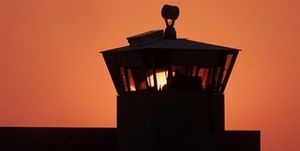
Extract from CathNews, UCA News, 20 November 2020
Two United States bishops’ committee chairs have called on President Donald Trump and Attorney General William Barr to stop upcoming federal executions and to end the practice altogether. A planned federal execution of Orlando Hall is scheduled to take at 6pm in Indiana (10am AEDT) and two more federal executions are set to occur next month. “We ask President (Donald) Trump and Attorney General (William) Barr, as an act of witness to the dignity of all human life: stop these executions,” said Archbishop Paul Coakley and Archbishop Joseph Naumann, who respectively chair bishops’ committee on domestic justice and human development and pro-life activities. “Sadly, we must call on the administration yet again to stop an execution,” the archbishops said, noting the country is “now on pace for 10 federal executions in 2020, more than double the previous record of four in 1938”. The archbishops’ statement said the death penalty is “not necessary to protect society. It is not necessary to hold people accountable for grave crimes. The decision not to execute someone, even someone who has done something terrible, is not ‘soft on crime’; rather, it is strong on the dignity of life”.......(more). Photo: Federal Correctional Complex Indiana death penalty CNS Andy Clark, Reuters, CathNews UCA News 20201120

Extract from Art Laffin, National Catholic Reporter, 19 November 2020
Seventy-five years after the U.S. committed the unspeakable crime of using nuclear weapons in Hiroshima and Nagasaki, Japan, in 1945, a historic milestone has finally been achieved: Nuclear weapons have been declared illegal under a new United Nations treaty. On Oct. 24, the Treaty on the Prohibition of Nuclear Weapons (TPNW) reached the 50-nation ratification threshold needed for entry into force. In 90 days, on Jan. 22, 2021, the treaty will go into effect. Eighty-four countries have signed the TPNW, and legislatures of 50 countries have now ratified it. Advocates are confident that the remaining signatories will continue to add their ratifications to the agreement. However, the TPNW is not binding on those nations that refuse to sign it. The U.S. and the world's eight other nuclear-armed countries — Russia, China, Britain, France, India, Pakistan, North Korea and Israel — boycotted the negotiations that created the TPNW and have shown no inclination to accept it. Three years ago, 122 nations adopted this landmark treaty. According to the International Campaign to Abolish Nuclear Weapons (ICAN), the 2017 Nobel Peace Prize recipient who helped spearhead the TPNW:.....(more). Photo: Dongfeng-41 intercontinental strategic nuclear missile CNS Reuters Weng Qiyu NCR 20201119
Exclusive interview with Hans Zollner SJ, one the Church's top experts on preventing clergy sex abuse
Limited extract from Loup Besmond de Senneville, Vatican City, Subscription journal La Croix International, 19 Nov 2020
Father Hans Zollner says the Vatican's recent investigation into how the former US cardinal, Theodore McCarrick, was able to rise to the top of the hierarchy despite sexually abusing youngsters marks an important step in the Catholic Church's ongoing awareness of clergy abuse. The 54-year-old Jesuit is president of the Center for Child Protection at the Pontifical Gregorian University in Rome and has been a member of the Pontifical Commission for the Protection of Minors since Pope Francis established it in 2014. He told La Croix's Loup Besmond de Senneville that the so-called "McCarrick Report", which was published on November 10, is not likely to be the last such investigation into Church leaders. La Croix: What will be the impact of this report? Father Hans Zollner: The McCarrick Report is a very clear message to the entire hierarchy: if Rome demonstrates such transparency, everyone must do the same, including at lower levels. Additionally, if the process is flawed, it will sooner or later be made public. Two years ago, no one imagined that such a report would be possible. This investigation, which notably reveals that three American bishops did not say everything they knew about McCarrick's actions, has the merit of asking very concrete questions: who is involved in the choice of future bishops? Who decides? How? What questions should be put to him and his entourage? How can we ensure the highest degree of sincerity and transparency within this process itself? Will more reports of this type be published in the future? I suppose this is the first report, but it won't be the last. This type of work should not only be carried out by the Vatican, but at all levels of the institution. From this point of view, the McCarrick Report is a model to be followed. One of the outstanding phenomena described in this document is a culture of "small omissions", leading to a failure to report McCarrick's behavior. Is this a common practice in the Church? Yes, this culture is deeply rooted in certain circles, including the Catholic Church. But this report helps to raise awareness of it and thus to change that mentality. It's by highlighting these failings that we make it possible for them to stop happening......(source). Photo: Father Hans Zollner, one of the Vatican's specialists on the issue of sexual abuse, GABRIEL BOUYS/AFP, La Croix
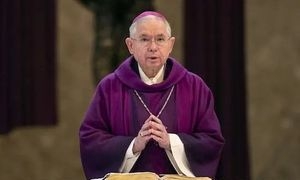
Archbishop José H. Gomez announces creation of ad hoc commission to anticipate trouble spots with the next president
Limited Extracts from subscription Journal La Croix International, 18 November 2020
The head of the U.S. Conference of Catholic Bishops while announcing the setting up of a special working group to address President-elect Joe Biden's policy positions spoke of "certain challenges" between the church and only the second Catholic to be elected as president of the United States. "We are facing a unique moment in the history of our country…. This presents certain opportunities but also certain challenges" USCCB president Archbishop José H. Gomez of Los Angeles said while announcing the working group at the end of the public portion of the bishops' Nov. 16-17 meeting, held this year completely online. "The president-elect has given us reason to believe his faith commitments will lead to certain policies that we favor," Archbishop Gomez said welcoming Biden's position on issues such as immigration, aid to refugees and the poor, racial justice, capital punishment and climate change. But there is the expectation that "he will support policies that are against some fundamental values we hold dear as Catholics" Gomez said listing the "repeal of the Hyde Amendment and his support for Roe v. Wade" as expected disagreements. The Hyde Amendment is a legislative provision barring the use of federal funds to pay for abortion except to save the life of the woman, or if the pregnancy arises from incest or rape. The landmark 1973 Supreme Court Roe v. Wade decision allowed a pregnant woman liberty to choose to have an abortion without excessive government restriction. "These policies pose a serious threat to the common good," said Gomez, reiterating that the USCCB has "a preeminent priority of elimination of abortion." "When politicians who profess the Catholic faith support them ... it creates confusion among the faithful about what the church actually teaches on these questions", said Archbishop Gomez who is completing his first year as USCCB president. In reply, Michael Sean Winters in his opinion piece for National Catholic Reporter wrote: "Does it? Could Gomez produce a single Catholic who does not know what the church teaches on these issues? Has Biden ever claimed he was speaking on behalf of the church when addressing these issues? It is nonsense. Gomez announced the formation of a working group to study the nonexistent problem." He also quoted Archbishop Christophe Pierre, the apostolic nuncio, who speaking to the bishops as they began their virtual plenary meeting, said: "In a pluralistic, fragmented world, we are invited to dialogue. What is the method proposed in Fratelli tutti? In chapter six, Pope Francis speaks of dialogue. But, when we speak of dialogue, what are we really talking about? It cannot be like those on the news who shout past each other, demonstrating that they are more interested in power and their own ideas than the common good. Dialogue must be related to truth." Archbishop Allen H. Vigneron of Detroit, vice president of the USCCB will head the special working group that was set up to deal with disagreement expected between the church and President-elect Biden.....(source). Photo: Archbishop Jose Gomez ETIENNE LAURENT EFE Newscom MaxPPP La Croix Int 20201118
The Christian faithful have the right and even at times the duty to manifest to the sacred pastors their opinion on matters which pertain to the good of the Church and to make their opinion known to the rest of the Christian faithful. (Canon 212 §3)
Extract from Peter Donnan, Eureka Street, 19 November 2020
Eureka Street columnist John Warhurst suggests Australian bishops prefer to deal with individuals rather than Catholics who organise themselves independently of official church structures. An increasing number of Catholics have low expectations that significant reform will be adopted at the Plenary Council in 2021. Issues such as inclusion and the role of women were prominent in the original 17,457 Plenary Council submissions but have been obscured in the discernment papers. The selection of diocesan delegates has been opaque, and most tellingly only bishops have a deliberative vote. Following a dark period of sexual abuse in the Church, coupled with declining Church membership since the 1950s, there is clearly a case for urgent reform. Only 8 per cent to 10 per cent of those who identify as Catholics are regular mass attenders; and almost a third of these are aged between 60 and 74. The Catholic Church in Australia is in crisis. A number of bishops have already expressed public views critiquing reform agendas in ‘The Catholic Weekly’. Bishop Umbers, for instance, is concerned about ‘the effects (or grumblings) of mere sociological change.’ Archbishop Porteous has noted the creeping ‘clericalisation of the laity,’ and the blurring of ecclesial borders. Author Gideon Goosen estimates the percentage of those involved in reform groups in Australia is 5 per cent or less. Given the passivity of the laity, his view is that reform proponents should seek to engage the 40 to 45 per cent who might change their thinking. What forums or media, with sufficient audience reach and influence, facilitate respectful discussion of change in the Catholic Church?.....(more)
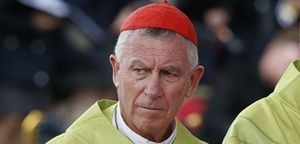
Extract from CathNews, Crux, 19 November 2020
Cardinal John Dew of Wellington has asked for an independent investigator to determine whether the late bishop of Dunedin took proper action when he received complaints of sexual abuse. The Church in New Zealand’s National Office for Professional Standards has appointed Christchurch senior investigator Micky Earl of the firm Corporate Risks to conduct the investigation into Bishop John Kavanagh, who led the Dunedin Diocese from 1957 to 1985. A statement from the New Zealand bishops conference said Cardinal Dew reported a number of victims of abuse in the Dunedin Diocese had complained that Bishop Kavanagh, who died in 1985, had not properly dealt with their complaints of sexual abuse by priests. Cardinal Dew referred the concerns about Kavanagh to Rome under Pope Francis’s 2019 decree, Vos estis lux mundi. “I was advised by Rome that the complaints about Bishop Kavanagh’s handling of abuse complaints do not come within Rome’s scope because he is deceased. I therefore instructed NOPS to undertake an investigation under our Church protocol for matters of abuse, A Path to Healing,” the cardinal said in his statement. He said Mr Earl would investigate “what information Bishop Kavanagh held regarding complaints of sexual abuse and whether he met his obligations as bishop in how he responded to and managed those complaints”. .....(More). Photo: Cardinal John Dew CNS Paul Haring CathNews 20201119
Extract from CathNews, News, 19 November 2020
A judge has reserved his decision on whether Australian media companies and journalists have a case to answer over the way Cardinal George Pell’s conviction was reported. Source: News.com.au.
Prosecutors have already withdrawn 13 of 100 contempt charges over the reporting of Cardinal Pell trial’s in 2018 and lawyers have applied to have the remaining cases thrown out. Fifteen journalists face potential jail terms after Victorian Director of Public Prosecutions Kerri Judd QC launched an extraordinary prosecution over the way in which information was published and broadcast about the conviction of a high-profile Australian. That person was later revealed as Cardinal Pell. A court non-publication order prevented any reporting on his trial in Australia because it could have impacted the jury in the second trial against Cardinal Pell — which was later dropped. Prosecutors allege the articles and broadcasts by Australian media encouraged people to conduct online searches to find the person’s identity, at a time when overseas media were naming Cardinal Pell. Will Houghton QC, representing News Corp Australia outlets and journalists, argued yesterday the crown failed to show the articles could have led any would-be juror to search for and find any of 35 overseas articles that revealed Cardinal Pell’s identity. Judge John Dixon said his ruling on the no case submissions would likely take “a few days” and reserved his decision....(more)
Extract fom Cathnews, Media Release, 18 November 2020
Jesuit Social ServicesPutting local communities at the heart of decision making, and empowering communities to give them the resources they need to reach their potential, will be key focus areas of Jesuit Social Services͛ place-based centre for research and action, which will launch in early 2021.͞The place-based centre for research and action will be a new national research, advocacy and capacity-building centre into place-based approaches to ensure all Australian communities have opportunities to flourish. The place-based centre will lift up communities that have experienced entrenched disadvantage often over many years,͟says Jesuit Social Services CEO Julie Edwards.The place-based centre will draw on Jesuit Social Services͛ research into locational disadvantage͕ which includes five reports conducted over more than 20 years. The centre will produce another major Dropping off the Edgereport, to map disadvantage in each state and territory, in 2021.....(more)
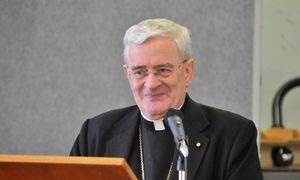
Extract from Melbopurne Catholic, Wednesday 18 November 2020
On Friday 13 November, Bishop Peter Elliott, retired auxiliary bishop of the Archdiocese Melbourne, was admitted to hospital following a serious heart episode. By Saturday evening, his condition had worsened and Archbishop Peter A Comensoli asked the community to pray for the retired bishop: "Friends, especially in Melbourne, I ask for your prayers for our retired Auxiliary Bishop, Peter Elliott, who is fighting for his life after suffering a heart episode yesterday. May the tender Lord hold him close, may our Blessed Mother accompany him.' The bishop remains in hospital but Archbishop Comensoli today shared that his condition had slightly improved. "Thank you for your ongoing prayers for Bishop Peter Elliott ... he would be humbled to know how cared for and valued he is across the community." "He has had a comfortable couple of days and has been stable though remains in a serious condition. The episodes he experienced have taken a great toll on his health, and we can only wait, in prayer, to see how things progress.' Since the weekend, prayers and messages of support flowed in from around the country for Bishop Elliott, who retired in 2018 after decades of priestly ministry and 11 years as bishop. At the time of his retirement, he shared that one of the great joys of his role as bishop was administering the sacrament of Confirmation.....(more). Photo: Melbourne Catholic
Edited Extract from Grant Duusting, Melbourne Catholic, 17 November 2020
Christian leaders (from various faith traditions) feel Australians have become disillusioned with the church as an institution. They point to public breaches of trust from church leadership and church culture often being detached from the everyday Australian experience as key causes of this disillusionment and apathy. While the Census data shows a decline of Australians identifying with Christianity (from 64% in 2006 to 52% in the 2016 Census), data collected by the National Church Life Survey shows the proportion of Australians regularly going to church has remained steady in this same period (15% in 2006; 16% in 2016). Even amidst this context of disillusionment, Church leaders are seeing a spiritual hunger in Australia consistent with the research data. Despite Australia’s relative wealth and stability (by global standards), Church leaders believe people are searching for meaning and fulfillment that isn’t being found elsewhere. The Church needs to engage the community. While Australia is full of churches large and small, leaders believe the size of a church is of less importance than whether a church is seeking to truly understand and engage their own local community and bring a unique contribution to their neighbourhood. This means reflecting the diversity of their own geographic context and considering what a church can be doing ‘between Sundays’ to serve the needs of their community. The Church needs to embrace digital disruption: Just as Australians have shifted to virtual meetings for business and social occasions, churches too have been forced to adapt to new digital technologies. Many have been using platforms like Zoom and livestreams for their services to operate ‘church online’, and this has presented opportunities to engage new audiences such as those who may not be comfortable entering a physical church building, or those in new geographic areas who can now engage in a digital form of community. Much like the future of office space and large public events, there is broad recognition that the Church of the future will be hybrid, combining a physical gathering with digital platforms to engage as many people as possible. The Church may be seeing a ‘new reformation’ moment: The Protestant Reformation in the 16th Century was enabled by the invention of the printing press, putting scripture into the hands of church members for the first time. Church leaders now sense we are seeing a similar 'reformation' moment, with COVID-19 acting as a catalyst for people taking more responsibility for things like evangelisation and community-building. This year has seen churchgoers rely less on clergy, and has prompted the average churchgoer to take more initiative and responsibility for their own spiritual growth. We found that 38% of churchgoers say they have been more active in ministry during COVID-19 and 47% have invited more people to church online than when they were attending church in person pre-COVID. The Church is raising up diverse leaders: Church leaders agree there is work to do in improving diversity among church leadership. As Australia becomes increasingly diverse, the Church needs to reflect the diversity of age, gender and culture in the community it seeks to serve. Females and indigenous people are specific groups that are currently under-represented in Church leadership, and we've seen efforts over the last few years to ensure that role models exist to inspire new generations that there is a place for them in the Church...........(more) Download The Future of the Church in Australia report here.

Lower attendances expected: Church faces major challenges, says Archbishop of Dublin
Extract from Colin Gleeson, The Irish Times, 15 November 2020
Many of those who attended church services before Covid-19 will never return to public worship, while the Catholic Church will be a “significantly different” entity after the pandemic has passed, Archbishop of Dublin Diarmuid Martin has said. Speaking during his homily at St Mary’s Pro Cathedral in Dublin on Saturday, Archbishop Martin said the religious culture of Ireland – and especially Dublin – is “at a crossroads”. “It is not the crossroads of martyrdom or oppression,” he said. “Certainly there is hostility towards the church from some quarters. The current change in religious culture is inspired more by indifference, uncertainty and at times voluntary rejection. “The fact that there are in Ireland today more civil weddi Archbishop Martin said the demographics of church attendance have already been impacted by the pandemic.....(more). Photo: Archbishop of Dublin Diarmuid Martin, Dara Mac Dónaill The Irish Times 20201115
The real flaw of the McCarrick Report
Limited extract from Robert Mickens, Letter From Rome, subscrption journal La Croix Internationl, 14 November 2020
In the end, it was just about what was to be expected. The exceedingly long and long awaited report on the history of Theodore McCarrick's rise to the penultimate rung of the Catholic hierarchy is now out. And it's being interpreted in almost as many ways as the number of men who are currently members of the College of Cardinals, that exclusive club from which McCarrick was eventually expelled for sexual abusing at least one underage boy. But, in fact, the so-called "McCarrick Report" has revealed very little that many people inside the Church did not already know or suspect. Up until two years ago when the Archdiocese of New York finally determined that the former cardinal had abused a minor in the 1970s, there were longstanding rumors about McCarrick's habit of sleeping with adult seminarians. But in the newly released report, the Vatican wrings its hands, regretting that for all these years it was simply the case that no one could actually verify that Uncle Ted was sharing his bed with these young candidates for the priesthood whom he called his "nephews". Of the clerics. Countless priests, bishops and cardinals even claimed that, gosh, they'd never even heard about any of that. Those that had heard about it, including a few popes, simply didn't want to believe that such talk was anything more than just petty gossip. Or they rationalized it by claiming that, well, at least the seminarians were adults. McCarrick wasn't diddling kids. Negligence, gullibility, willful blindness, refusal to listen to accusations, attempts to discredit accusers, and lies of various magnitudes. These are part of the potpourri of excuses the McCarrick Report furnishes, sometimes in numbing detail, to explain how a classic Church careerist climbed the ecclesiastical ladder to become the Cardinal Archbishop of Washington. But nothing was more determinative to Uncle Ted's rise in the clerical Church, the report assures us, than his own skills of deception. My Lord, he was even able to dupe John Paul II. He actually was able to pull the wool over the sagacious eyes of John Paul the Great!....(source)
Extract from Michael J. O’Loughlin. America: The Jesuit Review, November 12, 2020
President-elect Joe Biden, the second Catholic elected president of the United States, spoke this morning with Pope Francis, the latest world leader to congratulate Mr. Biden even as his opponent refuses to concede the election. According to a statement from Mr. Biden’s transition team, the former vice president thanked the pope for his “leadership in promoting peace, reconciliation, and the common bonds of humanity around the world.” Mr. Biden also said he hopes to work with the Vatican “on issues such as caring for the marginalized and the poor, addressing the crisis of climate change, and welcoming and integrating immigrants and refugees into our communities.” Biden said he hoped the United States and the Holy See might find common ground and be able to “work together on the basis of a shared belief in the dignity and equality of all humankind.” Mr. Biden said he hoped the United States and the Holy See might find common ground and be able to “work together on the basis of a shared belief in the dignity and equality of all humankind.” Pope Francis met Mr. Biden in 2013, when the then-vice president led a delegation from the United States at the pope’s installation. Writing about that experience for Time magazine in 2015, Mr. Biden recalled, “When it was my turn to greet Pope Francis, he reached out his hand and embraced mine. Then he said warmly, ‘Mr. Vice President, you’re always welcome here.’ That’s the message Pope Francis is sending to the world. He’s put a welcome sign on the front door of the Church.”.....(More) *See 2015 Biden Interview below - 8 November.

The defeat of Donald Trump and the fight for the "religious soul" of America
Limited Extract from Massimo Faggioli, subscription journal La Croix International, 12 November 2020
..............Catholics and the neo-conservative movement: However, in the mid-1980s there was the emergence of the neo-conservative movement in the United States, in which Catholics have played a central role. They include people and publications like the late Fr. Richard John Neuhaus and First Things magazine. From the early 2000s, and then in a crescendo after the election of Benedict XVI in 2005, the neo-conservative and theo-conservative movements have been mutating into a single neo-integralist and neo-traditionalist movement. Its creed was the rejection of Vatican II as a way to reject theological and political modernity. At a time when the WASP establishment was collapsing, conservative America called for a Catholicism that was no longer just conservative or post-liberal, but openly anti-liberal. The model is no longer John Paul II or Joseph Ratzinger. It is now Viktor Orbán, the Hungarian Prime Minister and self-avowed champion of "illiberal democracy". The USCCB's constitutional agnosticism has stifled the bishops' ability to confront Donald Trump's open threats to the democratic system. US Catholics had rightfully expected their bishops to say something. Instead, it was women religious – the nuns – who spoke out! A Catholic Church trying to protect its own freedom, while disregarding the rights of others, will end up losing its own freedom – after having lost that minimum of respect and self-respect necessary to act in the public square. A president that threatens the foundations of the political and civil community is also a threat to the freedom of religion and of the Church. The moral authority, cultural prestige and cohesion of American Catholicism have been severely damaged in the eyes of a country that is becoming more secular. Especially when the ongoing sex abuse crisis continues to be identified as a uniquely Catholic scandal – unfair as it that may be, given that abuse is a problem that affects all institutions dealing with the youth and the vulnerable......(Source). Photo: La Croix International 20201112
Exttract from Nicole Winfield, Crux, 11 November 2020
ROME — Pope Francis pledged Wednesday to rid the Catholic Church of sexual abuse and offered prayers to victims of former Cardinal Theodore McCarrick, a day after the Vatican released a detailed report into the decades-long church cover-up of his sexual misconduct. The Vatican report blamed a host of bishops, cardinals and popes for downplaying and dismissing mountains of evidence of McCarrick’s misconduct starting in the 1990s — but largely spared Francis. Instead, it laid the lion’s share of the blame on St. John Paul II, a former pope, for having appointed McCarrick archbishop of Washington in 2000, and making him a cardinal, despite having commissioned an inquiry that found he had slept with seminarians. Francis concluded his weekly general audience Wednesday by recalling that the report into the “painful case” of the former high-ranking American cardinal had been released the previous day. “I renew my closeness to victims of any abuse and commitment of the church to eradicate this evil,” Francis said. He then paused silently for nearly a minute, apparently in prayer.....(more)

Extracts from Gerard O’Connell, America: The Jesuit Review, 10 November 2020
In a long awaited act of transparency, fulfilling a commitment from Pope Francis, the Vatican has today published a report based on a two-year internal investigation into the career of former cardinal Theodore E. McCarrick. The report reveals hitherto top-secret information that explains how and why McCarrick, who abused minors and young adults, rose to become a leading figure in the Catholic Church in the United States. According to the report’s executive summary, Vatican authorities, the U.S. bishops conference and the apostolic nuncio to the United States had heard scattered allegations about misconduct by McCarrick—some U.S. church leaders even received an anonymous report alleging his abuse of a minor—but discounted them because their sources were considered unreliable. Advised by the nuncio that there was no proof to back up misconduct allegations, John Paul II accepted McCarrick’s complete denial of wrongdoing when making the decision to appoint him as archbishop of Washington. Pope Francis ordered the internal investigation in October 2018 after the review board of the Archdiocese of New York declared “credible” an allegation against then-Cardinal McCarrick of the sexual abuse of a minor in the early 1970s. Pope Francis authorized the publication of the full report today, despite internal resistance, because, according to a Vatican source, he believes American Catholics, who have been shocked and deeply wounded by this whole affair, have a right to know the unadulterated truth. (Full disclosure: Cardinal McCarrick was a longtime friend of this magazine and delivered the homily at our centennial celebration in 2009). Vatican authorities, the U.S. bishops conference and the apostolic nuncio heard scattered allegations about misconduct by McCarrick but discounted them because their sources were considered unreliable. .....A key factor in McCarrick’s ascent was Pope John Paul II’s willingness to give total credence to an extraordinary letter from McCarrick, whom he had known since 1976, that denied all the allegations of sexual abuse against him. The report suggests that the pope could have also been influenced by his experience in Poland, where the communists used all kinds of false accusations to discredit bishops and priests.....(More). Photo: Cardinals Mahony & McCarrick CNS photo Paul Haring America The Jesuit Review 20201110
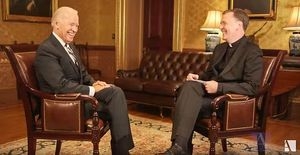
John Costa, 8 November 2020
There's a compelling 2015 video Interview with then Vice President Joseph R. Biden, Jr. by Fr Matt Malone, S.J. editor in chief of America:The Jesuit Review. It's very direct, personal and provides Clear insights into what based on recent public statements appears highly consistent with Biden's thinking and values expressed in this interview. He speaks particularly favourably of Pope Francis, who he has met (as with earlier popes), and recognises his challenges. Among many issues covered in the interview are State/Church relationships, gender equality, and issues such as abortion and gay rights. His responses closely reflect his description of Christ's mission and values, which he also points out are not entirely unique to Christianity. He spoke of fundamental principles that underlie but don't directly spell out actions stemming from them, but also depend on context, conscience, and need to reflect the times. Dignity, respect and inclusion are key manifestations whose values are shared with various other religions and non-religious belief systems. He said that while Institutions are necessary, in themselves they cannot fully define the manifestations of their value systems which vary with circumstances, and need to respect and take into account different, perspectives. He said that while differences of opinion are normal and healthy, dealing with them respectfully is paramount. As an atheist friend I shared this video with commented "I was impressed with him. The depth of his faith was never in doubt, but he made the abundant point very well that exercising it in a multicultural, diverse and pluralistic society was not a simple-minded thing. It requires nuance and understanding of the society into which the individual is immersed, and it is not the role of a person of faith to impose their particular doctrine on fellow members of the society." The (30 minute) video interview from America: The Jesuit Review may be viewed HERE.
Extract from CathNews, CNA, 6 November 2020
Pope Francis has requested that responsibility for financial funds and real estate assets, including a controversial London property, be transferred out of the Vatican’s Secretariat of State. The Pope asked for the management and administration of the funds and investments to be given instead to APSA, which functions as the Holy See treasury and sovereign wealth manager, and also administers payroll and operating expenses for Vatican City. Pope Francis’ decision, outlined in an August 25 letter to Cardinal Pietro Parolin, was made as the Secretariat of State continues to be at the centre of unfolding Vatican financial scandals. In the letter, made public by the Vatican yesterday, the Pope asked for “particular attention” to be paid to two specific financial matters: “investments made in London” and the Centurion Global investment fund. Pope Francis requested that the Vatican “exit as soon as possible” from the investments, or “at least dispose of them in such a way as to eliminate all reputational risks”. He also wrote in the letter that, given the changes he has requested, the role of the Secretariat of State’s Administrative Office, which managed the financial assets, should be redefined or the necessity for its existence evaluated....(more)

Extract from John Warhurst, Eureka street, 5 November 2020
There is a good reason why the term Australian Catholic Church is frowned upon in official circles. It does not exist. Instead, it is a patchwork quilt of fiefdoms called dioceses. It lacks an energising central authority which, when it needs to, can generate and shape a national church response. The kindest thing we can say about the Catholic Church in Australia in this regard is that we celebrate diocesan and other differences. The quilt shines forth in different colors and patterns. That has benefits, but it also has limitations. It can reduce the Catholic experience in Australia to a lucky dip. During the pandemic Australians have learned a lot about federalism, including the strength of state borders and the limitations of central authority. The national cabinet has worked to respect the independence of the eight state and territory jurisdictions while maintaining some semblance of national cohesion. Similarly, Australian Catholics are learning a lot about the territorial divisions within our church as it attempts to pull together in the lead up to our greatest contemporary challenge, the national Plenary Council (PC). If Scott Morrison finds national leadership difficult then so must Mark Coleridge, president of the Australian Catholic Bishops conference (ACBC) and Tim Costelloe, chair of the Bishops Commission for the Plenary Council. They wouldn’t even identify with the term national leader. There are 28 territorial dioceses in Australia, plus five Eastern Rite dioceses. Imagine if the Australian federal system was dismantled and replaced by that many states and territories. How well would we have dealt with the pandemic and how would we have managed borders? That is the situation we are dealing with within the church. We have national church institutions, such as the ACBC, and in this instance a Bishops Commission and a Facilitation Team for the PC, but they must direct by persuasion and education......(More). Patchwork quilt Raul Cacho Oses Unsplash, Eureka Street 20201105
Extract from Melbourne Catholic, The Southern Cross, 5 November 2020

5 November 2020
Plenary Council Prayer: Come, Holy Spirit of Pentecost. Come, Holy Spirit of the great South Land. O God, bless and unite all your people in Australia and guide us on the pilgrim way of the Plenary Council. Give us the grace to see your face in one another and to recognise Jesus, our companion on the road. Give us the courage to tell our storiesand to speak boldly of your truth. Give us ears to listen humbly to each other and a discerning heart to hear what you are saying.Lead your Church into a hope-filled future,that we may live the joy of the Gospel. Through Jesus Christ our Lord,bread for the journey from age to age. Amen. Our Lady Help of Christians, pray for us.St Mary MacKillop, pray for us.
Sources tell "La Croix" that Pope Francis instructed Cardinal Parolin to send letter to all papal nuncios around the world
Limited extract fom By Loup Besmond de Senneville, subscription Journal La Croix International, 3 November 2020
Just days after Pope Francis captured the world's attention last month by speaking in favor of gay civil unions, the Vatican quietly released an unusual clarification of his words through diplomatic channels. The Holy See's Secretariat of State sent a two-page missive to all apostolic nuncios posted abroad. "The Holy Father has directed that these observations be offered in order to permit an adequate understanding of his words," the note said. The Secretariat asked the papal ambassadors to share the text with the bishops of the country's where they are posted. The nuncio to Mexico even posted the note of clarification on Facebook. Sources told La Croix that Francis had specifically directed the Secretary of State to send the letter in order to clarify his position and to respond to questions being raised by some Catholics. Rather than making the clarifications through the Vatican's media department, the pope has opted to communicate through its diplomatic services. Recalling the context. The whole incident concerning his alleged views on gay civil unions occurred after a documentary called "Francesco" was screened on October 21 at the Rome Film Festival. "Homosexuals have a right to be a part of the family. They're children of God and have a right to a family. Nobody should be thrown out, or be made miserable because of it," says Francis at one point in the two-hour film. "What we have to have is a civil union law. That way they are legally covered. That is what I have been defending," he adds immediately after those previous comments. The recording was taken from a 2019 interview conducted by the Mexican journalist Valentina Alazraki, Vatican correspondent for Noticieros Televisa. The clarification issued by the Secretariat of State puts the comments into context and how they were used in the new documentary. "Pope Francis responded to two distinct questions at two different moments that, in the said documentary, were edited and published as a single response without the necessary context, which has resulted in confusion," the explainer points out....(Source)
Extract from Gail Freyne, Pearls & Irritations, John Mendaue website, 2 November 2020
The parish priest, Jorge Bergoglio could afford the luxury of welcoming with open arms an old colleague whom he believed to have been falsely accused of sexual abuse. Even as Pope Francis he could have indulged himself with warm greetings in private. But the public display in photographs and videos of unqualified acceptance – most headlines have called it vindication – has profoundly dismayed thousands of survivors and their families around the world. We all know that each of us is in need of forgiveness. Just a few short years after Fr. Bergoglio was a student in Ireland, Gordon Wilson of Enniskillen forgave the IRA members who planted the bomb that killed his daughter, Marie. He condemned the violence even as he forgave the men just as Jesus of Nazareth forgave the thief without condoning theft. We cannot wash our hands of people we find dangerous or venal. We have been shown how to deal with compassion for the sinner even as we condemn the sin. There are only two people who know with total certainty whether or not George Pell sexually abused his accuser – one of them is not Pope Francis. That being the case, in choosing how to deploy himself in relation George Pell the Pope should have made his public response a pastoral one. The heart of the problem is that Francis, in order to make a proper pastoral response to Australian Catholics, needed to place a much wider frame around Pell’s multi-layered and ongoing relationship with the sexual abuse scandal in this country. Francis must know by now that the cardinal is an extremely divisive figure in Australia. Many in this country believe witness J, many more believe that Pell has covered up sexual abuse by clerics for decades. Unfortunately, this is the wider context in which Pope Francis has chosen to rehabilitate Pell. In Australia, although the criminal justice aspect of this case is concluded the problems of the less than robust response of the Church is a running sore. It would appear that, once again, Pope Francis has failed to understand the height, the length, the breadth and the depth of the problem of sexual abuse within the Church......(more)
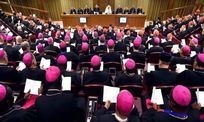
The road to Synod 2022 in Rome runs through Australia and Germany
Limited extract from Massimo Faggioli, US, subscription journal La Croix International, 29 October 2020
Preparing an assembly of the international Synod of Bishops is a complex operation. That's especially the case under Pope Francis, for whom such gatherings are not just for show. And it is proving particularly difficult to plan for the next general assembly, which is slated for October 2022 in Rome and will focus on the very theme of synodality. Preparations for this assembly are crucial, especially because – in this case – the medium really is the message. But the planning is taking place in the midst of something like an institutional paralysis, if not in Rome, then at least in many local churches. It is hard to imagine the world returning to its normal pattern of meetings and international travel before the second semester of 2021. Airlines executives even warn that it's not likely to be until 2024 when we are back to some sort of pre-COVID situation. This has created a paradox in the current pontificate – how to reconcile the pope's idea of synodality as a people walking together in the Church with the anti-pandemic measures of mandatory distancing, quarantine and isolation. During a speech in October 2015, which could be considered the "magna carta" of ecclesial synodality, Francis described the synodal Church as being "like a standard lifted up among the nations". A still-unfolding story in various phases. But it has become more difficult to imagine how to actually be a synodal Church, in the seven or so months since he announced the theme of the 2022 Synod assembly......(source). Photo: Bishops XVI Ordinary Meeting Synod Bishops October 201 EPA ETTORE FERRARI MaxPPP La Croix Int 20201029

Extract from CathNews, Australian Jewish News, 29 October 2020

Extract from by Marion Gambin RSJ, Plenary Post, Edition 29, October 29, 2020
Greetings to all of you in these days of finding our way into the light from the dark COVID months of uncertainty as together we face the challenge to hold on to the God of hope. In an October CathNews item, I was delighted to read of Pope Francis’ foreword to a recent publication in which he encourages laity to "take a step forward" in carrying out the Church’s mission. He goes on to say that “The time is now. The mission of the laity is not a privilege of a few, and it involves total dedication." Further on, he calls us, as he has so many times, to be "a more synodal and outgoing Church". These words of Pope Francis resonated with me because in the past two months the Facilitation Team has met several times with the Plenary Council Local Coordinators Network from across Australia. It has been such a privilege to engage in conversation with them about how the Plenary Council journey continues to unfold in their local diocese. These 65 coordinators have been working away at the "grassroots" to encourage the participation of all in our discernment journey towards the first Council assembly and beyond. In this edition of the Plenary Post you will be able to read of many "good news stories" that the local coordinators have shared with us. Meanwhile, the Facilitation Team has also been connecting with the instrumentum laboris (working paper) writing team as a draft of this document continues to take shape and we move towards another milestone in the Plenary Council journey. As well as this, the Facilitation Team has recently been engaged in generating a list of possible facilitators who will have a significant role at the two assemblies as they use their skills to work with the delegates in the discernment process. With that in mind, if you haven’t yet taken up the opportunity to use the guide for reflecting on the six Thematic Discernment papers, I encourage you to do so. (from: Plenary Post, Edition 29, 2020)
Extract from Daniel P Horan, National Catholic Reporter (US), 28 Oct 2020
While the American hierarchy continues to lose its collective moral authority in the public square with increasingly narrow and often partisan interests, other conferences of bishops around the globe are taking important steps to address what Vatican II called the "griefs and anxieties" of the people in their communities. A great example of this is the recent document by the Australian Catholic Bishops' Conference titled "To Live Life to the Full: Mental Health in Australia Today," published in August as the focus of their annual social justice statement.....The document's directness, honesty and humility make an important contribution to the de-stigmatizing of mental illness and models for Catholics — and all people of goodwill — a way of discussing, sharing and responding to the needs of sufferers without shame. The significance of this cannot be understated. As Brisbane Archbishop Mark Coleridge states in the document's forward, "People experiencing mental ill health are not some 'other' people, they are 'us.' ........(more)
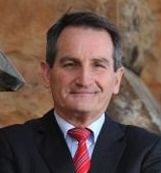
Extract from Melbourne Catholic, ACBC 27 October 2020
Francis Sullivan has been elected the new chair of Catholic Social Services Australia Ltd during the first meeting of the entity since its recent consolidation. Mr Sullivan has held a number of significant roles within and beyond the Catholic Church, including as chief executive officer of Catholic Health Australia and as secretary general of the Australian Medical Association. As CEO of the Truth, Justice and Healing Council, he led the Catholic Church’s engagement with the Royal Commission into Institutional Responses to Child Sexual Abuse. He is currently the executive chair of the board at Mater Group, which comprises several hospitals, health centres, an education provider and a research institute. Mr Sullivan takes over the role from Maria Harries, who had served as chair of Catholic Social Services Australia for the past seven years. Paying tribute to Dr Harries, Mr Sullivan said ‘Catholic Social Services Australia has been led with great commitment and determination in recent years, and I know her legacy in this organisation is profound’. ‘What I can promise is that I will bring a similar passion for the Church’s outreach to the people our social service agencies support and for whom CSSA advocates,’ he said. ‘The rich Catholic understanding of the dignity of every person, the preferential option for the poor and the pursuit of the common good will continue to motivate the work of the CSSA board.’....(more)
Now that the lockdown has eased and public worship is resuming, a prominent Catholic in Australia wonders if it's really worth going back to church
Limited extract from Chris Sodoti, Australia, subscription journal La Croix International, 27 October 2020
For almost 70 years I went to Mass virtually every Sunday. The only times I can remember when I didn't were when I was in a conservative Islamic country where churches were either non-existent or very hard to find. All that changed in March, when the COVID-19 lockdown closed churches in Sydney. I haven't been inside a church since then. Now they are open again and the number allowed to attend makes returning possible. So, after more than seven months, I am confronted with the question: Will I go back to Mass? The first thing I need to say is that my absence seems to have made no difference to God whatsoever. God is neither happier nor sadder that I haven't been there. I acknowledge that I have been going for years and years for my own sake, not for God's. The second question, therefore, is what has been the effect on me of going? I firmly believe that I need to worship God as part of a worshipping community. The problem is that the experience of worshipping in community is so bad.....(Source)
Extract from Marilyn Hatton, Eureka Street, 27 October 2020
Phyllis Zagano’s latest book Women: Icons of Christ is a must read for all who desire equality for women in our world and an inclusive practice of Catholic faith. The critical issue Zagano presents in this book is that ordaining women to the deaconate is a not a new or forbidden act in Catholic history but rather a return to a practice that endured for hundreds of years. Zagano is Senior Research Associate in Residence and Adjunct Professor of Religion at Hofstra University, New York. Her scholarship on women and the deaconate is well-known and she is a respected contributor to international forums. From the new testament onwards Zagano shows that women were active members of the evolving Christian community, consistent with the culture and custom of the time, they were ordained in the same way as their male counterparts by the laying on of hands and calling the Holy Spirit. They ministered to people through baptism, teaching catechism, providing altar service, spiritual direction, confession, and anointing the sick until the twelfth century. With her usual rigorous scholarship Zagano cites literary, historical and epigraphical evidence that indicate the presence of women in the deaconate. She identifies how the clerical culture of the Catholic church developed from Christ’s time on, revealing how the appalling vilification of women increased to the extent that the clerical culture had snuffed out women’s voices and leadership in sacramental ministry by the twelfth century. Women deacons in western Christianity were barred from even entering the sanctuary and handling sacred vessels. This clerical culture, which Pope Francis calls ‘a cancer in our midst’, continues to destroy our church’s ability to bring Christ’s message of love and justice to our world. It impacts destructively on all women but particularly on women and children in countries whose governments have poor human rights records that do not recognise women’s equality.....(more). Photo: women icons of christ Phyllis Zagano Eureka Street 20201027
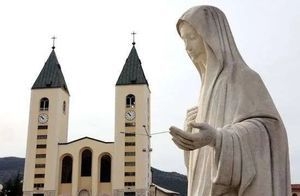
The Vatican has excommunicated Tomislav Vlasic, a former Croatian Franciscan it had already thrown out of the priesthood
Limited extract from Subscription journal, La Croix International, 26 October 2020
The Congregation for the Doctrine of the Faith (CDF) has excommunicated Tomislav Vlasic, a former Franciscan from Croatia who had been spiritual director of the alleged visionaries of the Virgin Mary at Medjugorje in Bosnia-Herzegovina. The news was made public on October 23 by the Diocese of Brescia, a diocese in northern Italy where Vlasic had been giving conferences and providing priestly service to various groups for years. He had previously provided spiritual guidance to the so-called visionaries of Medjugorje since 1981 when they first claimed to witness apparitions. Officials at the Vatican's doctrinal office had already stopped Vlasic's activities in 2008 by putting him under house arrest in the Franciscan convent in L'Aquila (in Abruzzo, Italy) for refusing to cooperate with them. The CDF had conducted a months-long investigation into the former friar "for spreading dubious doctrine, manipulation of consciences, suspicious mysticism, disobedience to legitimate orders". A document signed at the time by then-CDF prefect, the late Cardinal William Levada, also accused Vlasic of adultery, since the priest had had a child with a woman in 1987. In March 2009, by a decree of Benedict XVI, the priest had been reduced to the lay state after having asked to be released from his priestly obligations following an investigation by the CDF. He was also relieved of his religious vows and excluded from the Franciscan Order.....(Source). Photo: Our Lady of Medjugorje Bosnia Herzegovina Photo FEHIM DEMIR/EPA La Croix Int 20201026
Responding to: Fratelli Tutti and the Future of the Catholic Church
Extract from Massimo Faggioli, Berkley Forum, Berkley Center, 26 October 2020
One name that we find in Fratelli Tutti—as well as in the speech that Pope Francis delivered to Congress on September 24, 2015—is Martin Luther King, Jr. The latest papal encyclical does not name politicians and is shy about mentioning examples of political holiness, especially Catholic examples. But Fratelli Tutti is not shy about addressing and naming social and political issues: nationalism, populism, colonization, and slavery. It offers a proposal on how to build human fraternity: social love, political love, subsidiarity, solidarity, and citizenship. The concept of citizenship, in particular, is interesting because it reveals an interesting take by Francis on one of the issues debated in Catholicism, especially English-speaking Catholicism, during the last few years: the nation-state. The role of the nation-state is mentioned several times in Fratelli Tutti. Paragraph 132, for example, talks about the necessity of a common effort in the international community when dealing with movements of migration. And paragraph 153 defends states that often find themselves at the mercy of more powerful countries and large businesses. Several paragraphs in chapter five, “A Better Kind of Politics,” talk about the nation-state. Early in the chapter, Francis laments the fact that “the twenty-first century ‘is witnessing a weakening of the power of nation states, chiefly because the economic and financial sectors, being transnational, tend to prevail over the political. Given this situation, it is essential to devise stronger and more efficiently organized international institutions, with functionaries who are appointed fairly by agreement among national governments, and empowered to impose sanctions’” (no. 172)......(More).
Archbishop Wilton Gregory of Washington will become the United States' first-ever Black cardinal; Archbishop Antoine Kambanda of Kigali, the first from Rwanda
Limited extract from Subscription journal, La Croix International, 26 October 2020
Pope Francis has named 13 men who will become cardinals at a Vatican ceremony at the end of November. And among the nine of them who are under 80 years of age and eligible to vote in a conclave to elect his successor is Archbishop Wilton Gregory of Washington, who will become the United States' first-ever Black cardinal. Pope Francis also named Archbishop Antoine Kambanda of Kigali, making him the first Rwandan to be named cardinal. In all, Pope Francis chose as cardinal electors two officials of the Roman Curia and bishops from Italy, Rwanda, the Philippines, Chile and Brunei. He also named four other men who are already 80 years of age or older in recognition for their long service to the Church.....(Source)

Acutis’s beatification is a beacon to all those who live their lives, for better or for worse, increasingly online.
Extract from Mike Seay, America The Jesuit Review, 24 October 2020
Before I began preparing for the sacrament of confirmation, I had no strong connection to the saints. They seemed lofty and inaccessible—locked away behind a stained glass window, hanging high above my adolescent head. Their job was to be saints, my job was to be me. I never had any sense of a call to saintliness, and I never deeply considered the possibility that living saints walked among us. When I had to choose a patron saint for my confirmation, the list of saints I knew much about was short. I had not yet been educated by the Jesuits, so saints from the Society of Jesus were still unfamiliar. I had a vague idea of who Joan of Arc was. In the end, after less than thorough research, I chose St. Nicholas. He was the most familiar saint, though mainly through the commodified, secular version who runs a magical toy empire and sponsors Coca-Cola. Reading up on him in Wikipedia, I was inspired by his spirit of secret charity. I was touched by the image of St. Nicholas anonymously leaving coins for those in need. My choice of St. Nicholas was sincere, but I did not feel particularly connected to him. The idea that a saint could be interested in anything other than standing still and looking holy in a piece of art was foreign to me. What would have happened if I had encountered a saint I could connect to? Might I have had a better sense of how to live a Christ-like life? Enter Blessed Carlo Acutis. Acutis died of leukemia in 2006 at the age of 15, but not before he had the chance to make an impact on this world. The Italian teenager was an example of holiness to those around him, and he used his computer skills to create an online database documenting eucharistic miracles. On Oct. 10 of this year, his beatification Mass was held in the Basilica of St. Francis in Assisi, Italy...........(more) Photo: Blessed Carlo Acutis CNS photo courtesy Sainthood Cause of Carlo Acutis America Jes rev 20201024

Extracts from Communications Office, Catholic Archdiocese of Melbourne, 22 October 2020
Melbourne Archdiocese Catholic Schools Ltd (MACS) has been established to assume the governance and operation of Catholic schools in the Archdiocese of Melbourne, Archbishop Peter A Comensoli says. The change in governance arrangements will see all 293 schools owned by the Archdiocese, its parishes or associations of parishes in the Archdiocese of Melbourne transferred to MACS, which will be responsible for the governance and operation of the schools. ‘Building on the significant legacy of parish priest led and governed schools, MACS will usher in a new era for Catholic education in the Archdiocese’, Archbishop Peter said. ‘Education is integral to the mission of the Catholic Church to proclaim the Good News, and Catholic schooling forms our young people so they may be equipped with the knowledge, skills and hope to live meaningful lives and enrich the world around them. ‘The establishment of MACS is a necessary and constructive change to the operations for schools that not only reflects community expectations about the operations of schools, but keeps our Christ-centred mission at the heart of all we do in Catholic education.’ A Steering Committee was established in November 2019 to consider changes in governance for Melbourne Catholic schools. The Steering Committee has overseen 11 months of significant consultation and deliberation which has culminated in today’s announcement, Archbishop Peter said. Archbishop Peter has appointed Mr Gerard Dalbosco as the inaugural Chair of MACS to lead this historic new path for Catholic education in Melbourne.....(more). Photo: St Peters Sunshine, Melbourne Catholic 20201022
Pope Francis declares support for same-sex civil unions for the first time as pope
Extract from Michael J. O’Loughlin October, A,erica, The Jesuit Review, 21 October 2020
Gay couples deserve legal protections for their relationships, Pope Francis said in a new documentary. Also in the film, which premiered in Rome on Oct. 21, less than two weeks before the U.S. presidential election, the pope condemns the Trump administration’s child separation policy at the U.S.-Mexico border, which he calls “cruelty of the highest form.” The filmmaker, Evgeny Afineevsky, asked Pope Francis during an interview for the documentary about the place of L.G.B.T. Catholics in the church. Francis reemphasized his belief that L.G.B.T. people should be made to feel welcome in the church.
“Homosexuals have a right to be a part of the family,” the pope said. “They’re children of God and have a right to a family. Nobody should be thrown out or be made miserable because of it.” But Francis said for the first time as pope that gay couples deserve legal recognition for their relationships. Before he was elected pope, Francis served as archbishop of Buenos Aires, and in that role, he advocated for same-sex civil unions in an attempt to block a same-sex marriage law. Argentina legalized same-sex marriage in 2010, which then-Cardinal Jorge Bergoglio called a “destructive attack on God’s plan.” But in meetings with other Argentine bishops, Cardinal Bergoglio urged them to support civil unions as a way to keep marriage distinctly heterosexual. Bishops rejected the idea, but an L.G.B.T. activist in Argentina said the cardinal called him to say he personally supported the idea of civil unions. The comments in this new documentary represent his most public declaration of support for same-sex unions since becoming pope.....(More)

Instead of giving up on the classic parish, let's reinvigorate it for radical discipleship
Limited extract from Justin Stanwix", Australia, Subscription journal La Croix International, 20 October 2020
Eric Hodgens recently painted a pandemic lament of the "grieving parish" – an institution on its knees. His article was not a maudlin piece of despondent personal opinion, but a reasoned expression of realism and sadness about what has occurred and how some see the outcome of isolation. Undoubtedly, the global closure of our churches, lockout from the House of God, silence in our prayer spaces and exclusion from the source and summit of the Christian life have been a trial for the living communion of the faithful. The People of God have a deeply ingrained need to worship God – in communion, in church – together. Not a casual occurrence or practice reliant on mere habit but a deep longing in the souls of women and men to worship their God. The appearance of the streamed Mass as a daily or weekly alternative suited many and for some continues to do so. But for most it is not the sacrifice of the Mass and has little connection with the people's celebration of the sacred mystery that they offer, together, in person – a living Mass and privileged reception of Holy Communion, in true communion. Has the parish as we've long known it "run its course"? But the deep question posed is whether the institutional parish "has run its course". There is no doubt things are different. There seems unanimity on a global scale that some old ways have gone and will never be the same. If the Christian spark is not extinguished what then is the new form? .....(Source). Photo: La Croix International 20201020
* Justin Stanwix is a deacon in Wollongong Diocese. He is passionate about Parish and full, conscious and active participation in the liturgy.
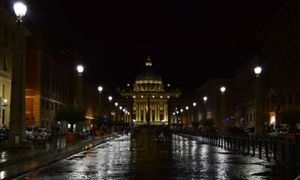
Extract from Ilia Delio, Global sisters report. 19 Oct. 2020
On Oct. 3, the feast of the transitus of St. Francis of Assisi, Pope Francis signed his new encyclical, Fratelli Tutti, on social order and universal brotherhood. As in his previous encyclical, "Laudato Si', on Care for Our Common Home," the pope calls attention to the world's problems, the radical disparity between rich and poor, the bloated consumer culture that is enhancing global warming, and the rampant individualism associated with excess wealth. The encyclical aims to promote a universal movement toward fraternity and social friendship grounded in compassionate love, following the parable of the good Samaritan (Luke 10:29-37). Who could argue against the valiant efforts of a world leader trying to restore a sense of moral goodness and rightness in the world? Indeed, my purpose is not to belie the pope, whose heart seems to be in the right place; however, it is to call attention to the deeper problem underlying the world's problems, namely, the evaporation of religion. On this note, the pope's encyclical is alarming. Jesus of Nazareth admonished his disciples not to take the splinter out of their brother's eye without first removing the plank from their own eye (Matthew 7:3-5). This admonition bears reflection in light of the pope's advice to the world. St. Clare of Assisi, who was the spiritual partner of Francis of Assisi and known as the strongest stone of the whole Franciscan movement, wrote to her sisters: "We must be mirrors and examples to one another so that we may be mirrors and examples to the world." If we preach the Gospel ideals of Jesus, then we must first be willing to put them into practice. After all, if we want the world to overcome its addiction to power, money and progress, then we must be willing to disengage ourselves from these things, for where else shall the world find its image? Francis of Assisi was aware that to live a God-filled life he would have to undergo conversion of heart. All the great world religions promote some type of self-discipline in order to reflect divinity. Each religion, in its own way, realizes that we do not change the world, we change ourselves and the way we see the world. A changed life changes the world. This is the essence of Francis of Assisi....(more). Photo: St Peters at night Unsplash Matthew Waring globalsisters report 20201019

Appreciating and discovering hope in Pope Francis' 3rd Encyclical Fratelli Tutti: Seeking the common Good
John Costa, 16 October 2020
When human
values around the world become increasingly diluted and polarised both
by extreme 'Left wing' and extreme 'Right wing' politics, it's very
timely to receive Pope Francis' 3rd encyclical Fratelli Tutti: Seeking
the Common Good. For all peoples of the
world regardless of beliefs trying to make sense of increasing conflict
and confusion and looking for ways to move collectively towards
something more morally and humanly based amidst the realities around us this
encyclical offers a hopeful way forward. We can immediately
start reading Fratelli Tutti as it's very accessible, however a little
prior background reading can provide further context and fuller sense of
its direction. I can suggest two background papers on the encyclical as a helpful lead-in. The first 'Saving liberalism from itself' is by Jesuit Damian Howard SJ and can be accessed HERE
, from Thinking Faith. The Second, 'Pope Francis’s new encyclical On
Human Fraternity and Social Friendship' is by Fr Bruce Duncan and can be
accessed HERE from Peals & Irritations. Finally the (3rd) Encyclical Fratelli Tutti itself (with Index added) can be accessed HERE. The two prior
Encyclicals of Pope Francis are Lumen Fidei (The Light of Faith, June
2013), and Laudato si (On Care For Our Common Home, May 2015). The Cardijn Institute and Social Policy Connections invite you to a (free) Zoom Seminar on Fratelli Tutti by Fr Bruce Duncan & Danusia Kaska on Thursday 22 October from 7:30 - 8:30 pm. Details and registration above or HERE

Extract from Christian Bergmann, Catholic Weekly, 16 October 2020
Extract from Bruce Duncan, Pearls & Irritations, John Menadue website, 15 October 2020
The new social encyclical of Pope Francis not only renews his strong critique of ‘neoliberal’ forms of capitalism which result in growing and extreme inequality but is a plea for a return to the ideals of fraternity and solidarity, invoking the humanist ideals of France’s ‘liberty, equality and fraternity’. When one part of society exploits all that the world has to offer, acting as if the poor did not exist, there will eventually be consequences. Sooner or later, ignoring the existence and rights of others will erupt in some form of violence, often when least expected. Liberty, equality and fraternity can remain lofty ideals unless they apply to everyone.’. Francis does not speak as a politician of course, but highlights the social implications of the Gospel parable of the Good Samaritan, fleshing out the values needed for enhanced human solidarity. It is a message that people of all religions, and everyone of good will, including those who are not at all religious, could endorse. The implications are immense for believers, insisting on practical solidarity with everyone, especially strangers or foreigners. The Pope wrote that ‘by acknowledging the dignity of each human person, we can contribute to the rebirth of a universal aspiration to fraternity. Fraternity between all men and women… Let us dream, then, as a single human family, as fellow travellers sharing the same flesh, as children of the same earth which is our common home, each of us bringing the richness of his or her beliefs and convictions, each of us with his or her own voice, brothers and sisters all.’ Not a rewrite of Laudato Si’....(more).

Extract from Elise Ann Allen, Snr Correspondent, Crux Now, 15 October 2020
ROME – Seven women who recently turned in résumés at the Vatican embassy to France for ecclesial jobs open only to men were shocked not only when they got a response, but were offered one-on-one private meetings with Vatican’s nuncio to the country, Archbishop Celestino Migliore. These meetings took place between Sept. 14 and Oct. 2. Several of the women came out of their conversation describing it not only as “cordial” and pleasant, but praising Migliore – a longtime Vatican diplomat who from 2002-2010 served as the Vatican’s Permanent Observer to the United Nations – as kind, as an attentive listener, and as someone who is well-informed. Claire Conan-Vrinat, who applied to be a deaconess and who met with Migliore Sept. 28, told Crux that she found in the nuncio “an open mind and a sincere listening to my observations and suggestions.” Without going into details, she said the conversation “was active, interesting” and even “spiritual.” Similarly, Hélène Pichon, who applied to be a Vatican ambassador herself and who met with Migliore Oct. 1, said he was “very courteous and kind” and was “definitely very, very open and very attentive.” “He had done his research as well in terms of who we were individually,” she said, recalling how he knew who she was, was familiar with a book she had written and also knew about her work as director of institutional relations at the Center for Study and Strategic Prospective (CEPS). Both Pichon and Conan-Vrinat said their conversations, while private, were only the beginning, and said Migliore indicated there could be more meetings in the future......(more). Photo: Toutes Apotres Yong Chim CuxNow 20201015

Extract from Editorial, National Catholic Reporter, 15 October 2020
If fidelity oaths seem like something out of the Crusades, contemporary Catholics might be surprised to hear that the Vatican is still requiring some theologians and pastors to sign them. The Congregation for the Doctrine of the Faith has said that Redemptorist Fr. Tony Flannery must affirm the church's official positions on male-only priesthood, LGBTQ relationships, civil unions and gender identity. If the Irish priest does not sign the four fidelity oaths, his suspension from the priesthood will remain indefinite, according to a letter from the doctrinal congregation. If he does sign the oaths, he also will be required to not speak publicly about matters in the oaths. Flannery, a popular Irish writer and retreat giver, was removed from public ministry in 2012 primarily over his support for women's ordination. He told NCR that he cannot in good conscience sign the oaths, and expects this may be "the end of the road" for him in terms of public ministry. Can we say: We've seen this movie before, and we didn't like it the first time? In previous decades, under Pope John Paul II, a number of theologians, writers and teachers found themselves on the receiving end of investigations of their work under then-head of the doctrinal congregation, Cardinal Joseph Ratzinger, the future Pope Benedict XVI — a process that was too often mimicked by bishops on the national level. In the 1980s, theologians were so concerned about academic freedom and unfair treatment by church leaders that the Catholic Theological Society of America and the Canon Law Society came together to create "Doctrinal Responsibilities: Procedures for Promoting Cooperation and Resolving Disputes Between Bishops and Theologians," which emphasized dialogue that respected the rights and responsibilities of both bishops and theologians. This latest move against Flannery has some theologians worried the church may be returning to a "law enforcement paradigm" that they had assumed had ended under the Francis papacy....(more). Photo: Dome Unsplash Ilnur-kalimullin NCR 20201015
Extract from J.A.Dick, Another Voice, Being a Theologian, 15 October 2020
There is no debate today….When I think about today’s extreme polarization in US society, however, I become concerned about public morality. It has nothing per se to do with being a Republican or a Democrat, or being left or right of center. It has everything to do, however, with our survival. Public morality – what some call civic virtue — refers to ethical standards for public behavior. The survival of democracy depends on it. A democracy is a social system in which citizens are bound to fellow citizens, with each individual bearing social as well as personal responsibilities. Public morality governs everyday life: the decisions we make, how we treat ourselves and others, and what we think about the world — about nature, business, culture, religion, family life, and so on. Openness is essential as well as serious reflection and engagement. Without a healthy public morality, democracy collapses into either chaos or authoritarian dictatorship. Those dangers are very real today. Public morality is often cast aside in authoritarian dictatorships because social order is maintained not by adherence to shared public values but by fidelity to the dictates and wishes of the authoritarian leader. Authoritarian leaders like chaotic situations in which people living in fear can be kept obedient and dependent on the leader. In a healthy democracy there are certain generally held moral principles. Key primary values, for example, are that murder is immoral, theft is immoral, harming innocent people is immoral, and lying is immoral. When these immoral actions are turned into social virtues or social normalities, society is in trouble. Think about contemporary militia and vigilante groups.....(more)
Extract from Paul Collins,Pearls & Irritatios, John Menadue website, 13 October 2020
Is Pope Francis running out of steam? Will we ever see an end to Vatican financial scandals? And where is George in all of this? There’s an old Roman proverb, Morto un papa, se ne fa un altro. ‘When a pope dies, they make another one.’ You can’t blame them for their unsentimental bluntness about the papacy. The Romans had to live with it, economically and politically, for 1700 years. Even before a pope dies or resigns there’s a psychological moment when the ecclesiastical system begins to prepare for the next papacy. According to distinguished church historian, Alberto Melloni, the pandemic marks that moment for 83-year-old Pope Francis’ papacy. ‘In every papacy,’ Melloni says, ‘there’s a historic point after which the final phase begins.’ Historically, the average length of a papacy is about 7.8 years and Francis has been pope for exactly 7.8 years this month. Recently two books, both entitled The Next Pope, have been published by ultra-conservative commentators George Weigel and Edward Pentin. Both clearly aim to persuade the cardinals to elect someone very different to Francis. Their prognoses are irrelevant, but it’s significant that they’re talking about the next pope.
I’m not saying Francis is going to resign or die very soon; it’s just that something’s happened to him as a second wave of Coronavirus looms, with Italy with 60,000 active cases in early-October and with face masks and social distancing now mandatory in Rome. No longer in contact with large groups of people and unable to travel, Francis seems to have turned in on himself. Until recently he’s encouraged people to observe COVID-19 protocols. But the small groups of people now meeting him show pictures of him without a mask, standing close to people and physically greeting them. Given his age, that’s risky. Vatican specialist, Robert Mickens, puts it another way: ‘Francis has appeared at different times in the past several weeks as someone who doesn’t seem the least bit concerned that he may be torpedoing whatever is left of his pontificate.’ This is illustrated by his passivity in the face of the Congregation for the Doctrine of the Faith—the former Roman Inquisition’s—demand for the imposition of a ‘loyalty oath’ on progressive Irish priest, Tony Flannery, as well as its recent blunt declaration that euthanasia is an ‘intrinsically evil act’, without any consideration of personal, pastoral, or medical circumstances. This shows that Francis is not reining-in Vatican bureaucrats, who take every chance they can to assert their power. Many of them are profoundly opposed to Francis’ emphasis on a more pastoral ethos in Catholicism and are only too happy to undermine his agenda by articulating a counter narrative of moral rigidity.....(more)

Limited extract from Isabelle de Gaulmyn, subscription Journal La Croix Int. 10 October 2020
Some coincidences make sense...Pope Francis published his encyclical Fratelli tutti just weeks before the American elections. Of course, he didn't write it for that; this text is not in any way an anti-Trump polemic. But just the same...The electoral campaign on the other side of the Atlantic is, like a distorted mirror, projecting back to us here in Europe the image of a democracy on the verge of collapse. We see many taking refuge in a cynical "every man for himself" attitude, of a fractured society, polarized via social media, where hatred seems to prevail over reason. And then there's the pope, a religious leader, who finds courage -- or recklessness? -- to still believe in fraternity? It is as if he is out of time. Indeed, after the fall of the Berlin Wall and the end of communism, a triumphant liberalism placed the most extreme form of individualism on a pedestal. This has provoked a disintegration of the sense of the collective good and of what brings us together. It has transformed our societies into a sum of narrow forms of communitarianism, leaving the field open to populist demagoguery, or even desperate violence. "In a society without transcendence, the denial of human universalism in favor of a multiplicity of closed communities contains a seed of death for democracy," worried the French historian Jacques Julliard in a recent article in Le Figaro. He was referring to Alex de Tocqueville, for which there can be no functioning democracy without a religion to provide a common framework. In our secularized societies, what can replace God in this role? he wondered. Paradoxically, it is precisely a man of religion who comes to him with the answer....(source). Source: Pope Francis signs 3rd encyclical Fratelli tutti EOA EFE Vatican Media Handout Max PPP La Croix Int 2020101
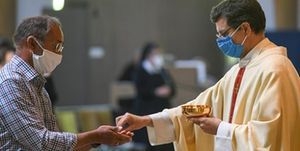
Extract from CathNews, Crux, 9 October 2020
The German Catholic bishops’ conference and the council of the Evangelical Church in Germany plan to continue their discussions about shared Communion. German Catholic and Protestant theologians and bishops had published an appraisal of the topic in May, and it was scheduled to be discussed at the German bishops’ plenary assembly in Fulda at the end of September. However, on September 18, the Vatican Congregation for the Doctrine of the Faith voiced strong objections to the appraisal, saying that differences between Catholics and Protestants in the understanding of the Eucharist and the ministry were “still so grave” that they ruled out the attendance of at each other’s services, German news agency KNA reported. On October 6, leaders of both churches identified questions that “still need to be clarified” and addressed by Catholic and Protestant sides in different ways, KNA reported. “For the Catholic Church, the open questions are so weighty that it does not feel able to allow mutual participation in general before they are clarified, especially since the question of the unity of the Catholic Church is affected here as well,” said the statement from the church leaders. Germany has many mixed marriages — Catholic and Protestant — and the issue of being able to receive Communion at each other’s churches has long been an issue of concern.....(more). Photo: CNS Harald Oppitz KNA CathNews 20201009
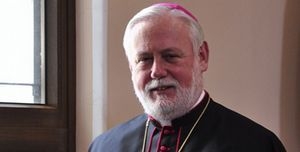
Extract from CathNews, Crux, 8 October 2020
Despite criticism of a 2018 deal with China over the appointment of bishops, a senior Vatican diplomat is optimistic the accord will be renewed. Source: Crux.
Had Rome not granted Beijing a significant role in choosing bishops, said British Archbishop Paul Gallagher, “We would have found ourselves – not immediately, but 10 years down the line – with very few bishops, if any, still in communion with the pope.” “If we don’t begin now, that’s the future,” he said. Archbishop Gallagher is the Vatican’s Secretary for Relations with States and a former apostolic nuncio to Australia. He confirmed the Vatican has proposed a two-year extension of the deal. The terms of the accord have not been made public since it’s a provisional agreement rather than a formal treaty. He said the Vatican does not yet have a response from Beijing, and that if no answer is received by the end of the month, then the deal expires. “It would mean it wasn’t renewed,” he said, but implied the Vatican has reason to believe its proposal will be accepted: “You dip your toes in the water before you jump in,” he said. “We’re optimistic the Chinese authorities will wish to continue the dialogue with the Holy See within the agreed terms of the accord, and we move forward,” he said, adding that under the right conditions, it would be “desirable” for the deal eventually to be made permanent......(Source). Photo: ACBC CathNews 8 October 2020
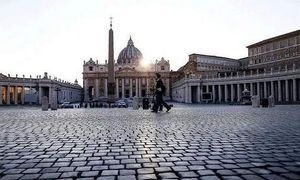
Offices have been ordered to take cost-cutting measures, but Pope Francis forbids them from laying off employees
Limited Extract from Loup Besmond de Senneville, La Croix International, 7 October 2020
......In an unprecedented exercise of transparency, the Vatican last week presented its economic balance sheet for 2019. Yet it is towards the results for 2020 that all eyes have already turned. For here, as everywhere else around the globe, the financial crisis has weakened the world's smallest state. It is a fragility that has fueled growing concern about the size of the envelope allocated each year to the Roman Curia. Expenses in 2019 for the Catholic Church's central bureaucracy amounted to 318 million euros. But there were 307 million euros in revenues, leaving an 11 million euro shortfall. 100 million euro deficit foreseen for 2020 While the Vatican has not published precise figures, the crisis has in fact undermined three of its important sources of funding -- the museums (which have seen a drastic fall in the number of visitors), donations from the faithful (18% of the Curia's budget in 2019) and financial income (21%). "There is no doubt that there is a clear decrease in income, which obliges us to reduce expenses and to be very careful about the evolution of liquid assets," said Bishop Nunzio Galantino, president of the Administration of the Patrimony of the Apostolic See (APSA), the Curia's budget management body. He told La Croix he did not have figures on how much revenue the museums have lost, but admitted that they were "considerable". "As for Peter's Pence, it's too early to talk about it," the bishop continued, referring to the annual collection from among the world's Catholics......(source). Photo: St Peters Square deserted on April 10 LA Presse Panoramic Bestimage La Croix Int 20201007

A year after the Amazon Synod, the crisis continues
Limited extract from Bryan P. Galligan SJ, Subscription journal La Croix International, 7 October 2020
The Amazon Synod's final document and Pope Francis's post-synodal exhortation Querida Amazonia both describe a social and environmental crisis of historic proportions, a crisis Francis portrays as "provoking a cry that rises up to heaven." This crisis now threatens the Amazon region with ecocide and ethnic cleansing, and—because of the role the Amazon rainforest plays in regulating global climate patterns—it also threatens the planet as a whole. Yet the synod's urgent message was largely drowned out in the United States by ideological controversies about the ordination of (married) viri probati, the value of inculturation, and racist accusations of idolatry. A year later, the "dramatic state of destruction" to which the synod's final document refers has only gotten worse, and Catholics in the Global North still seem none the wiser. Many of the Amazon region's poorest residents live in rural communities and informal settlements. Development of the region has led to economic growth in recent years, but there is little evidence that living conditions are improving. Food security remains a persistent problem; workers in extractive industries are exposed to diseases like malaria and rabies; and there is a severe lack of health and sanitation infrastructure. The coronavirus pandemic has exacerbated many of these preexisting problems, and indigenous communities have been hit the hardest. Celia Xakriaba, a Brazilian indigenous leader and activist, has described the public-health risk indigenous communities are facing as one of extermination......(source) Photo: Brazilian indigenous tribe 2018 Brasilia Photo EPA MAXPPP La Croix Int 20201007
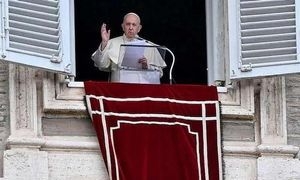
"Fratelli tutti" calls for fraternity and "social friendship"; this relatively long magisterial document is a summary of Pope Francis's thoughts
Limited Extract from Xavier Le Normand , Subscription Journal La Croiox International, 5 October 2020,
1. A sombre observation. The new magisterial document from Pope Francis -- the encyclical Fratelli tutti -- opens with a rather bleak assessment of the current state of the world. The pope makes no secret of this. The first chapter is titled "Dark Clouds over a Closed World" and the first section is called, "Shattered Dreams". "Our own days, however, seem to be showing signs of a certain regression," the pope warns. "Nowadays, what do certain words like democracy, freedom, justice or unity really mean? They have been bent and shaped to serve as tools for domination, as meaningless tags that can be used to justify any action," he notes. Francis says today's world is experiencing a period of inward-looking and xenophobia. And he laments that the first victims of this are the poor. 2. A cry of alarm against demagogic populism. "Closed populist groups distort the word 'people', since they are not talking about a true people," the pope writes in the encyclical. He then goes on to denounce the "unhealthy" and "irresponsible" populism of some political leaders. "At other times, they seek popularity by appealing to the basest and most selfish inclinations of certain sectors of the population," he states. This does not mean that Francis, a follower of "the theology of the people", disqualifies the people, a word which appears 95 times in the new encyclical. In number 182, he affirms that "each of us is fully a person when we are part of a people".
3. Social friendship ......(more). Photo: Riccardo Antimiani ELA La Croix Int 20201005
Extract from Communicationsa Officem Melbourne Catholic, 4 October 2020
Pope Francis has written his third encyclical entitled Fratelli tutti (On Fraternity and Social Friendship), which he addresses to all people of goodwill and offers as a proposal for a way of life 'marked by the flavour of the Gospel’. While the pope's second encyclical, Laudato Si' (On care for our common home), focused on our relationship with the natural world, Fratelli tutti focuses on our relationships with each other. The document's release coincides with the conclusion of this year’s Season of Creation, and during this time of pandemic is offered as a contribution to ‘the rebirth of a universal aspiration to fraternity by acknowledging the dignity of each and every human person’. (FT 8). Following the release of the new encyclical, Archbishop Peter A Comensoli encouraged the faithful to read the pope's words: 'Situated as we are in the latter stages of this Pandemic, Fratelli tutti offers much that we might embrace as we determine who we are as people of God in Melbourne, and how we might emerge from this time of exile to go on mission into the world with the beating heart of Jesus. I urge everyone to read it, and to then return to it with time and space to draw more deeply into the riches within.'....(more - including video by Arbishop Peter Comensoli)
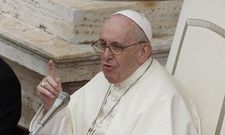
With the much-anticipated release of Pope Francis’s new encyclical, “Fratelli Tutti” on Oct. 4, Catholic Christians would do well to revisit his critique of false realism and false nostalgia, and his call for the church to foster a political attitude of faithful and daring dreaming.
Extract from David Albertson, Jason Blakely, America, The Jesuit Review, 1 October 2020
Politically, the United States is facing a crisis of the real. Yes, we confront political realities of an urgency and scale not witnessed in more than a generation—from ecological death and pandemic to the rise of authoritarian nationalism and militarized violence against Black citizens. In the midst of these calamities, millions of Americans struggle to discern real news from fake, science from conspiracy theory, political wisdom from magical thinking. As reality grows more and more menacing, fewer Americans are in touch with it. Politicians indulge nostalgic fantasies to distract our attention and shift the blame. But we also face a crisis of the real in a very different sense. Namely, the politics presented for decades by serious politicos and wonks as the only “realistic” way forward seems with every passing day more unsustainable. Our entire way of life seems at once unchangeable and yet in need of radical intervention, lest we continue the downward spiral. This paradoxical predicament was trenchantly observed by the British theorist Mark Fisher over a decade ago in his book Capitalist Realism. Fisher defines “capitalist realism” as “the widespread sense that not only is capitalism the only viable political and economic system, but also that it is now impossible even to imagine a coherent alternative.” Yet Fisher also suggests that the very crises generated by capitalism—if discerned properly—might awaken us from the trance. Once the realist fantasy is dispelled, the political imagination will be free to dream of quite different futures. This problem of imagining more hopeful futures amid a self-destructive, unrealistic “realism” provides a key to unlocking the politics of Pope Francis, whose pastoral letters and encyclicals have stirred confusion and controversy among conservatives and liberals alike. Unlike Marxists including Fisher, Pope Francis embraces a utopianism that is not grounded in violent struggle but in a deeply Christological hope for the transformation of people and communities—from the bottom up. With the much-anticipated release of Pope Francis’s new encyclical “Fratelli Tutti” on Oct. 4, Catholic Christians would do well to revisit his critique of false realism and false nostalgia, and his call for the church to foster a political attitude of faithful and daring dreaming. Unrealistic Realisms.....(more) Photo: CNS Paul Haring America Jesuit Review 20201001
Francis has used his Wednesday general audience the past several weeks to offer his vision of creating a better world after the pandemic
Limited extract from Loup Besmond de Senneville, subscription journal La Croix International, 30 September 2020
Pope Francis these past two months has been trying to answer a thorny question that all of humanity must grapple with as it seeks to emerge from the coronavirus pandemic: how do we build a better, post-COVID world? The pope has offered a nine-week cycle of catechesis -- beginning in August -- to gradually unfold his thoughts on the way out of the crisis. During his weekly audiences, first recorded in the library and then held in the extraordinary setting of the San Damaso Courtyard of the Apostolic Palace, Francis has made clear his conviction that the pandemic provides historic opportunity to change the world. This is a conviction that should also be well reflected in his future encyclical, Fratelli Tutti, which will be released next Sunday (October 4). "We come out better or we come out worse" The Bishop of Rome has often repeated that it is certainly not a question of rebuilding the world afterwards by reproducing the world of before. "The pandemic is a crisis, and we don't come out of a crisis the same way: we come out better or we come out worse," he has repeated throughout his speeches. "After the crisis, will we continue with this economic system of social injustice and disregard for the environment, creation and our common home? Let's think about it," he has said. But how is this to be done? The pope says it is by relaying on "certain fundamental social principles. This is so as to heal both the world of the pandemic as well as the "wider social pathologies" that have emerged as a result of this crisis. "We must cure a great virus, that of social injustice, inequality of opportunity, marginalization and lack of protection for the vulnerable," Francis has insisted. The former Archbishop of Buenos Aires believes that "faith, hope and love necessarily lead us towards this preference for the most needy"....(source)
Extracts from Tom Cowie, The Age, 1 October 2020
Hundreds of sexual abuse victims who received meagre sums of money from the Catholic Church in exchange for their silence could now seek larger compensation payouts after a judge overturned one survivor's settlement with the church. The man, a former altar boy known as WCB, was paid $32,500 in 1996 by the church after he was repeatedly sexually abused by Warragul priest Daniel Hourigan. On Wednesday, the Supreme Court overturned the deed of release in a landmark ruling, removing the legal barriers for WCB to sue the Catholic Church for damages. Justice Andrew Keogh described the abuse as "horrendous" and said the evidence supported a "significant assessment of damages" for WCB. "The settlement sum represents very modest and heavily discounted compensation for the loss and damage suffered by the plaintiff as a consequence of the abuse," he said. Last year, the state government passed a law allowing courts to set aside a past deed of release or court judgment relating to child abuse. It is estimated that more than 500 victims signed similar deeds of release, often for small financial payouts, under the Catholic Church’s controversial "Melbourne Response".......In a statement provided by his lawyers, WCB said that he “had no choice" about taking the deal offered by the church. "I had to accept what seemed like a terrible settlement. The church had all the power – I had none," he said. "It really wasn’t a legal claim, it was more like asking for charity. I had to take what was offered....(more)

The church as institution is in trouble but not the Church as the People of God
Limited extract from Eric Hodgens, Subscription journal La Croix International 30 September 2020
Some Church groups are pressing for a post-pandemic opening up, others, who have already opened up, are sounding a lament as they find it is not business as usual. There are signs of grieving for the parish – an institution on its knees. World War II changed Western history. The post-war Catholic parish was an institutional wonder. It took off with the baby boom, reached its peak in the 1980s, started its decline in the 1990s and may well be mortally wounded by the COVID-19 epidemic in the 2020s. The parish of my wartime infancy appeared timeless. It was an identifiable part of the wider culture but, for Catholics, it was a mainstay of life. Baptisms, marriages and funerals happened there. Most Catholics started formal schooling there. That is where you ritualised being a Catholic. Lifelong personal and family friends were made. It had its social oddities such as not eating meat on Friday, the practice of confession and regular Sunday Mass. Adherence was tribal. Post-war reconstruction for Catholics brought new vitality to the parish. With population growth came new parishes and schools. The baby boom brought not only a large new generation of members but increased vitality and vision to the whole of society. The times – they were a changin. Vatican II was in tune with that change. The fortress church lowered its drawbridge and out streamed the People of God on a march towards establishing a new Kingdom of God – a new world order marked by identification with the hopes and joys, the griefs and anxieties of all, mutual respect, the discarding of bygone enmities, diminished sectarianism an improved life for everybody and a fairer society. Parishes implemented that new vision. The laity moved into active mode. There were youth groups, senior citizens groups, social justice groups, parent groups, social groups sporting groups. And all had their formal coming together in the parish liturgy which, while led by clergy, was no longer a clerical preserve, and was in a language all could embrace and understand. Lay action and leadership became a top policy in the renewed Church – especially with the youth. The Young Christian Worker movement (YCW) formed a whole generation to see, judge and act. Loads of young priests who were mentors of this movement. The parish was a scene of action and vitality. But an undertow was forming under this enthusiasm.....(source). Photo:Parish La Croix International 20200930

Limited extract from Massino Faggioli, Subscription journal La Croix International 30 September 2020
The US presidential campaign seems at times to have become an almost intra-Catholic affair, especially after President Donald Trump nominated a Catholic to be the next Justice on the Supreme Court. If confirmed, Amy Coney Barrett would be the sixth of the nine justices who are members of the Catholic Church. A seventh justice, Neil Gorsuch, was baptized and raised Catholic. Barrett's nomination shows that Trump's administration and campaign team have a Catholic agenda. It is aimed at capitalizing on the antipathy that sectors of the United States, including among vocal and influential Catholics, have shown towards Pope Francis since the beginning of this pontificate in 2013. Trump's Catholic agenda is a domestic strategy with an international dimension. Mike Pompeo attacks the Vatican's policy on China. The US Secretary of State Mike Pompeo meets top Vatican officials this week in Rome – Italian Cardinal Pietro Parolin, the Holy See's Secretary of State; and British Archbishop Paul Gallagher who, as deputy Secretary for Relations with States, is Pompeo's counterpart. One person Pompeo will not meet when he goes to the Vatican is Pope Francis. The pope must avoid any appearance that he is being used for political purposes just a few weeks before a presidential election. But he must also avoid being entangled in the serious crisis in the transatlantic relations that have to do with China.....(source). Photo:La Croix Int 20200930
Catholic organization calls on French bishops to include lay people in preparations for the Synod on Synodality, set for 2022 in Rome
Limited extract from Claire Lesegretain, Subscription journal La Croix International 28 September 2020
France. The Catholic Conference of the French-speaking Baptized (CCBF), a group founded in 2009 to promote the voice of the laity within the Church, has called on the bishops of France to open a dialogue with all Catholics as they prepare for the next assembly of the Synod of Bishops in Rome. How can we think of a Church of France that is entirely synodal yet only speaks to the 1.8% of regular practitioners? That was the main issue at the CCBF's first meeting of 2020, which took place on September 26 in a suburb of Paris. Because of ongoing measures to stop the spread of the coronavirus, only about 60 people turned out for this first session, compared to 230 last year. The second session will take place between now and the end of the year and will discuss "the lockdown and liturgy" and "abuse in the Church, the damage of clericalism". Although the crowd at the first session was much smaller than hoped, dozens of others followed on YouTube. Five different speakers held conferences that explored ways to open up avenues for the future. The German synodal path: Among them were Julia Knop and Dorothea Sattler, two German theologians who are involved in the current "synodal path" of the Church in Germany. They explained to what extent this "path" could contribute to the universal Church since "it allows the exercise of a form of synodality not yet provided for in canon law". Knop noted that the Church in Germany has significant resources at its disposal (the rate of practice remains at 10%) with "lay people accustomed to democratic participation and interdisciplinary dialogue." But she admitted that such a synodal way seems difficult to envisage in France because of secularization and the absence of an official, united body of the laity (such as the Central Committee of German Catholics or ZdK)....(source)

Talk Theology: A Journey of Discernment
Extract from a paper by Archbishop Timothy Costelloe SDB, Plenary Post Edition 28, 30 September 2020
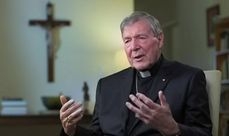
Extract from Gerard O'Connell, America. The Jesuit Review, 29 September 2020
Cardinal George Pell returns to the Vatican on Sept. 30 and is likely to remain there at least until June 8, when he turns 80. His long-term plan, however, is to return to Sydney, Australia, according to a source close to the cardinal, who asked not to be identified. “His return to Rome has been planned for the last three months. It was not a sudden decision,” the source said. He made clear the cardinal’s return was in no way linked to Cardinal Angelo Becciu’s recent renunciation, as suggested by Italian and other media in reports that recalled how the two had clashed strongly over the reform of Vatican finances. Cardinal Becciu had blocked some of Cardinal Pell’s initiatives. Some media even suggested that Francis had asked Cardinal Pell to return to Rome, but there is no evidence for this assertion. In fact, shortly after his acquittal and release from prison, Cardinal Pell had told Sky News Australia last April that “I think I might go to Rome for a while.” Cardinal Pell’s return was in no way linked to Cardinal Angelo Becciu’s recent renunciation, as suggested by Italian and other media in reports that recalled how the two had clashed strongly over the reform of Vatican finances. Pope Francis will receive Cardinal Pell in audience in due course, sources told America. Although the two differ significantly on some theological questions and on the vision of the church, Francis has always stood by him in these years when the pope saw that Cardinal Pell was already being judged guilty by much of the media. Francis insisted on Cardinal Pell’s right to be presumed innocent—“in dubio pro reo”—until the judicial process had reached its completion. After his release from prison in April, Cardinal Pell “received encouragement” from some high-level Vatican officials “to return to Rome,” the source said.....(more) Photo: CNS Screen grab America Jesuit Review 10100929

Extracts from Carol Zimmermann, Catholic News Service, National Catholic Reporter, 26 September 2020
Washington — Eight days after the death of Supreme Court Justice Ruth Bader Ginsburg, President Donald Trump announced Sept. 26 that Judge Amy Coney Barrett, a judge on the Chicago-based U.S. Court of Appeals for the 7th Circuit, is his nominee to fill that seat. The president said he was honored to nominate Barrett whom he described as "one of the nation's most gifted legal minds" to the court and praised her for her loyalty to the Constitution. This should be a "straightforward and prompt confirmation," he added before a small crowd seated in the White House Rose Garden. "The stakes are incredibly high," he added.......The news drew immediate reaction from both sides of the political spectrum and Catholics were similarly vocal in either support or alarm over Trump's nominee choice. Brian Burch, president of CatholicVote, an independent political advocacy group, said in a Sept. 26 statement ahead of Trump's formal announcement: "Catholics are thrilled with the expected nomination of Judge Amy Coney Barrett and believe she represents the best choice to protect the rule of law and our constitutional rights." He added that she "deserves a speedy confirmation process and a Senate vote as soon as possible." Catholics expressing concern about Trump's pick stressed unease with her stance on a number of issues. For example, John Gehring, the Catholic program director for Faith in Public Life, a Washington-based advocacy group, said in a Sept. 26 tweet: "Being 'pro-life' isn't a single issue. Many Catholic voters are worried that Amy Coney Barrett could undermine health care access, workers rights', environmental protections and other moral issues central to church teaching.".......(more). Photo: CNS Carlos Barria, Reuters NCR Online 20200926

Extract from CathNews, 25 September 2020
Commentary on the pandemic that suggests some lives are worth more than others is troubling, write St Vincent’s Health Australia’s Toby Hall and Dr Daniel Fleming. Source: Sydney Morning Herald. At the weekend The Age published an article by the University of Melbourne’s vice-chancellor, Professor Duncan Maskell, asking Victorians to wrestle with uncomfortable questions about our future. He called on us to be ready to make tough calls, and to accept the unavoidable reality of mortality. No problems there. Any community with a grain of wisdom goes through that process. But at the centre of his approach, Maskell suggests a way of thinking that we should all find troubling. He asks: “What is the value of a 90-year-old’s life versus the value of the continuing livelihood and happiness of a 25-year-old?” His view appears to be that in a future pandemic, authorities should apply a “quality-adjusted life year” model to help them chart a way forward. This approach would say the 25-year-old's life is of much higher value than that of the 90-year-old. This is because a life nearer its end is allocated less QALYs than a healthy life closer to its beginning. Such a model would provide a justification for accepting risk – even mortality – for the 90-year-old and prioritising the 25-year-old because the latter's life is valued more...(more). Photo: COVID different value in different people CNS Benoit Tessier Reuters CathNews 20200925

The first virtual Nuns on the Bus tour begins, highlighting voting rights, poverty and pro-life policies
Extract from Dan Stockman, Global Sisters Report, National Catholic Reporter Project, 24 September 2020
Saying
they could not stay silent, the Nuns on the Bus began their virtual
tour of the country Sept. 23 with a range of speakers talking about the
need for a government that serves everyone. The
online event by Catholic social justice lobby Network featured House
Speaker Nancy Pelosi and Sen. Cory Booker as well as several activists
and clergy from various religious denominations. Social
Service Sr. Simone Campbell, executive director of Network, began the
event by noting it was being held in the shadow of more than 200,000
deaths caused by COVID-19 and the death of U.S. Supreme Court Justice
Ruth Bader Ginsburg. She
added that the kickoff also began as President Donald Trump and
Attorney General William Barr were honored at the National Catholic
Prayer Breakfast. "Our
politicians are once again attempting to wrangle Catholics with the
all-too-flawed, narrow and politically opportunistic view of our faith,"
Campbell said. "We need to be multi-issue voters in our complex
reality."....(more). Photo: Nancy Pelosi virtual 2020 Nuns on Bus kickoff Netwok Screenshot Globa Sisters Report 20200923
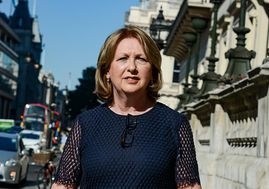
by Ruth Gledhill , Christa Pongratz-Lippitt, The Tablet, 24 September 2020
Mary McAleese, former President of Ireland, has warned that people are leaving the Catholic Church “in droves”, tired of “little old men” who continue to “beat the drum of obedience”. Speaking on BBC Radio 4's Woman's Hour today, former President of Ireland, Mary McAleese, whose book Here's the Story: A Memoir is published today, said: “I am a person of faith but I am also a person with a thinking brain.” Describing the hierarchy of the Church as a small, self-serving hermetically-sealed group of men, she reminded listeners that she was actually banned from speaking at a conference on women at the Vatican, an exclusion that occurred during the papacy of Pope Francis. Both his predecessors had welcomed her to the Vatican. McAleese, a licensed canon lawyer as well as a civil lawyer, who has spoken out frequently against misogyny in the Church, admitted that nothing she had ever said had changed anything. “I am ignored completely by the Church's hierarchy. Utterly, absolutely ignored. But that's ok because they're only a tiny proportion of the Church. They're desperately powerful, yes, and they make the rules, yes, but the Church is 1.2 billion people which is why I stay.” She said the Church is the biggest NGO in the world, hugely influential and a permanent representative at the UN. “No other faith system has that power and influence in the world.” She said she remained in the Church in the hope that one day, her “tiny little voice” will permeate upwards, along with that of many others who are speaking out.....(more). Photo:Mary McAleese, Ruth GledhillThe Tablet 20200924

Extract from Peter Comensoli, Opinion Piece, The Age, 23 September 2020
Victorians have been in exile from the homeland of our humanity for six months now. Throughout this exile, hope has been hard to come by as fear, fatigue and frustration have taken hold. Now, a way out of captivity has been set before us. Every Victorian has an interest in the government’s road map towards a "COVID-normal" destination. But what do we actually want that destination to look like, and how might it shape the road ahead? People of faith have deep resources to share here. While the voice of religious communities has gone largely unheeded in recent years, at this time of great fear it turns out religious people are motivated by something positive and inspirational. In the middle of lockdown, and cut off from all kinds of human sources of inspiration, people of faith draw on something that does not depend entirely on other people. It might be unfashionable to say, but God has been helpful to lots of Victorians in 2020. All God’s people – whether believers or not – are my friends and fellow pilgrims on the journey ahead. From my Christian faith, this is a road that offers a horizon of hope and wellness. Some friends on this road have been lonely and isolated this year. Some of them have had a hard time stuck in high-rise public housing. Some have faced death and sickness apart from loved ones, and cried at a funeral without the tender presence of their nearest and dearest. Talking with our friends on the phone and via Zoom has been helpful. But all of them tell me that it’s God who has made all the difference.....(more). Photo: COVID Keep Calm Mask The Age 20200923 Getty
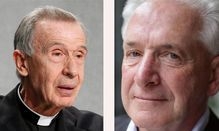
Extract from Gerard O’Connell. America The Jesuit Review, 22 September 2020
The Congregation for the Doctrine of the Faith has formally requested that the Rev. Tony Flannery, a well-known Irish Redemptorist suspended in May 2012, sign a statement affirming his acceptance of church teaching, as formulated by the C.D.F., on homosexuality, civil unions between persons of the same sex, the admission of women to the priesthood and “gender theory.” His signature on the C.D.F. document would allow him to return to public ministry. He declined to sign the document and made the C.D.F. letter public on Sept. 16. He described the process that brought him to this point as “unjust,” saying he had “no chance to defend myself, no appeal system, no direct communication, judgment passed and sentence decided before I even knew what was happening.” “Maybe I am deceiving myself,” he said to America by email, “but I believe I can do more for the church by exposing in every way I can the unjust process, rather than trying to get Francis to wave a wand and return me to the ministry.”.....(more). Photo: The Jesuit Review
Extract from Christopher Lamb, The Tablet, 18 September 2020
Pope Francis has told the parents of gay children that God loves them “as they are” because they are “the children of God”. His remarks came following the Wednesday General Audience where he had a brief meeting with members of an Italian group Tenda di Gionata (Jonathan’s Tent), which supports the parents of LGBT children. According to reports of the encounter, Francis said "God loves your children as they are." He also said: "The Pope loves your children as they are, because they are children of God." Mara Grassi, the vice-president of the support group, relayed details of what the Pope said following the audience, and that she had presented Francis with a book Genitori Fortunati (Blessed Parents). A copy of the book will soon be available in English. Speaking to Avvenire, the newspaper owned by the Italian Bishops’ Conference, she said: “I explained [to the Pope] that we consider ourselves lucky because we have been forced to change the way we have always looked at our children. She added: “What we now have is a new gaze that has allowed us to see the beauty and love of God in them. We want to create a bridge with the Church... so that the Church too can change its gaze towards our children, no longer excluding them but welcoming them fully.” Francis’ remarks are consistent with what he said in 2018 to Juan Carlos Cruz, a survivor of clerical sexual abuse and who at that time had spent several days with the Pope. “He told me, ‘Juan Carlos, that you are gay does not matter. God made you like this and loves you like this and I don’t care. The Pope loves you like this. You have to be happy with who you are’,” Cruz recalled.....(more)

Irish Redemptorist Tony Flannery says he's been given the change to recant
Limited extract from Robert Mickens, subscription journal La Croix International, 18 September 2020
Vatican City. One of world's most influential cardinals recently admitted that he is "open" to the idea of ordaining women to the Catholic priesthood. "I am not saying that women have to become priests; I just don't know. But I'm open to it," said Cardinal Jean-Claude Hollerich SJ in an interview published September 13 on the website of KNA, the German Catholic news agency. Hollerich is a high-profile cardinal with international stature due to his position as president of the Commission of the Episcopal Conferences of the European Union (COMECE). He's also archbishop of his native Luxembourg. So his views matter. But just a few days after he commented on women priests, Tony Flannery – the Irish Redemptorist who was suspended from priestly ministry in 2012, primarily for his support of women's ordination – revealed that the Vatican had sent him a series of doctrinal proposals in July (via his superior general) to which he would have to "submit" as a first step towards "a gradual readmission" to public ministry. One wonders if the men at the Congregation for the Doctrine of the Faith (CDF) are going to press Pope Francis to have Cardinal Hollerich recant and force him to sign a fidelity oath similar to the one placed before Father Flannery. They'd better move quickly. In just a few weeks the 62-year-old Jesuit will mark the first anniversary of getting his red hat. Or what about those German bishops who have also called for open discussion on ordaining women to the priesthood? There are several of them. Some, like Bishop Gebhard Fürst of Rottenburg-Stuttgart, have long stated their support for women's ordination. And recently more have joined him, including the president of the German episcopal conference, Bishop Georg Bätzing of Limburg. Is the pope going try to muzzle them, too? Would he suspend them? Rethinking Church teaching on human sexuality. It's important to remember that Tony Flannery's case goes back to 2012 when Benedict XVI was still pope and the late Cardinal William Levada was the CDF prefect.........(source). Photo: Card Jean-Claude Hollerich SJ Photo Andrew Medichini AP and Irish Redemptorist Tony Flannery Photo Twitter. La Croix 20200919
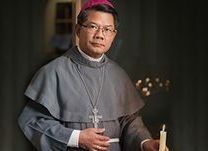
Extract from CathNews, Catholic Outlook, 18 September 2020
Parramatta Bishop Vincent Long OFM Conv. has expressed his solidarity with people in the Philippines in their struggle for human rights. Source: Catholic Outlook. Bishop Long, chair of Bishops Commission for Social Justice – Mission and Service, took part in the “Church People's Prophetic Voices against State Terrorism in the Philippines” online forum on Wednesday. The forum aimed to highlight the response of Christians in the Philippines to the escalating attacks on human rights defenders and activists. Bishop Long said he joined other Christian leaders in “condemning acts of violence and terror that have escalated in intensity and frequency”. “These acts are even more deplorable when committed by the government institutions such as the police and the military, which are supposed to protect and defend the people.” Bishop Long said under the Duterte Government’s war against drugs “a spate of extrajudicial killings has continued unabated, causing a reign of terror in many communities”. “It is alarming that the poor are most vulnerable to the loss of life, as well as the destruction, violation and suppression of their rights. The government’s claim of ensuring and protecting those who have less in life appears to be merely a lip service when the state itself violates and disregards the rights of the poor. It seems like this is not so much a war against drugs but rather a war against the workers, farmers and the marginalised in society.” Bishop Long also spoke of the ongoing persecution of people defending human rights in the Philippines, particularly noting Archbishop Socrates Villegas, Bishop Pablo Virgilio David, Bishop Teodoro Bacani Jr and Bishop Honesto Ongtioco who face sedition charges....(more) Photo: Parramatta Diocese CathNews 20200918
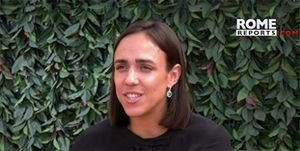
Extract from CathNews, 18 September 2020
Catholic human rights organisation the Edmund Rice Centre has applauded statements made by Australia’s new Ambassador to the Vatican supporting the push for a synod for the Pacific region. Ambassador Chiara Porro met Pope Francis last month to present her credentials as Australia’s representative to the Holy See. In an interview with Vatican TV news agency Rome Reports, Ms Porro supported the call from Catholic leaders in Oceania for a synod in the region. “One idea that I’ve been discussing with a few people is potentially pushing for a synod on the Pacific down the track – something along those lines because of the climate change issue, the anniversary of Laudato Si’ and also the fact it is one of the frontier regions that Pope Francis is so focused on,” Ms Porro said. Corinne Fagueret, coordinator of the Pacific Calling Partnership (PCP), an initiative of the Edmund Rice Centre for Justice & Community Education, said it was encouraging Australia’s representative to the Holy See was "raising the calls and concerns of Pacific leaders outside of our region”....(more) Photo: Chiara Porro Rome Reports
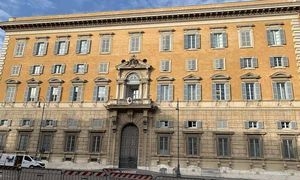
Extract from Joshua J. McElwee, National Catholic Reporter, 17 Sep 2020
A popular Irish priest suspended from public ministry in 2012 primarily over his support for women's ordination is now being threatened by the Vatican that his suspension will remain indefinite unless he signs four strict oaths of fidelity to Catholic teachings. Redemptorist Fr. Tony Flannery revealed to NCR Sept. 15 that he had received a letter from the Congregation for the Doctrine of the Faith over the summer. It asks him to affirm the church's official positions on a male-only priesthood, gay relationships, civil unions and gender identity. The document, sent on congregational letterhead and signed by the office's second-in-command, Archbishop Giacomo Morandi, informs the Redemptorist leadership in Rome that Flannery "should not return to public ministry" if the priest does not sign the four attached oaths. Flannery told NCR he believes he cannot sign the materials in good conscience, and expects this may be "the end of the road" for him in terms of public ministry. "To sign that document would be utterly ridiculous for me," said the priest. "That document is so far removed from where I am at now, and it is phrased in such a way that there is no possibility of dialogue of any nature." Flannery is a popular Irish writer, retreat giver and, formerly, pastor. He was removed from public ministry in February 2012 after the Vatican congregation expressed concern over a number of columns he had written for Reality, a Redemptorist-run magazine in Ireland. The priest's continued suspension appears at odds with Pope Francis' frequent calls for a church that is more open to dialogue and debate. During the four Synods of Bishops Francis has hosted over his seven-year papacy, for example, the pontiff has frequently exhorted the prelates attending those events that no topic should be off the table. The first oath Flannery is asked to sign concerns women's ordination. The text presents a "doctrinal proposition" that "a baptized male alone receives sacred ordination validly." It then asks the priest to sign that he has decided to "submit" to that proposition.....(more). Photo: Congregation for the Doctrine of the Faith NCR photo Joshua J. McElwee 20200917

Extract from CathNews, Melbourne Catholic, 17 September 2020
Archbishop Peter A. Comensoli has written to clergy and faithful in the Melbourne Archdiocese, acknowledging the many challenges facing the Catholic community during Victoria’s extended COVID-19 lockdown. The pastoral letter follows last week’s overturning of restrictions on spiritual ministry to the sick and the dying. “Throughout the pandemic, I have been advocating directly with the Government, reminding authorities continually of our respectful compliance with each stage of restrictions, and seeking a fair consideration in what is permitted,” Archbishop Comensoli said. He said it was essential that the Government "does not treat faith communities as an afterthought to the opening up of other sectors. Our churches are locations for communities of care and essential service, and must be treated fairly and reasonably”. In the letter, Archbishop Comensoli acknowledged the “profound loss” the Melbourne faithful are suffering from the “deprivation in sacramental life” since churches were first closed in March. He said the “sense of estrangement from the Eucharist has been a particular struggle for Catholics. He gave particular acknowledgement to “countless Catholic families” who are “awaiting Baptism, Reconciliation, Holy Communion and Confirmation for their children. Adults, too, have longed to be received into the life of the Church”. “We shall be exploring possibilities such as outdoor liturgies in parish and school settings to facilitate these crucial events of grace and welcome,” Archbishop Comensoli said.....(more) Photo: Melbourne Catholic, CathNews 202009017
A Pew Research Center study released in September shows that teens’ religious practice is the United States is less than that of their parents. The lessened observance cuts across all denominational lines. And religious practice by adults, the study noted, has itself declined in recent decades. One key finding of the report is that 43 per cent of parents said religion is “very important in their lives,” and that, of teens ages 13-17, only 24 per cent feel the same. Surveys were taken of 1,811 adults who had given Pew permission for one of their teen children to later take the same survey. The surveys were conducted in April-June 2019, long before the ongoing coronavirus pandemic. “it’s hard to process what the statistics are saying with what we’re witnessing”. But Christina Lamas, executive director of the National Federation for Catholic Youth Ministry, told Catholic News Service that she finds it hard to square the figures in the Pew report with what she sees at her organisation’s biennial conventions in Indianapolis. “When you’re able to witness the fire and engagement of 20,000 young people … who are sharing on social media about their relationship with God, it’s hard to process what the statistics are saying with what we’re witnessing,” Ms Lamas said. She took some comfort in one finding from Pew than 47 per cent of Hispanic teens identify as Catholic. “Faith is very much embedded into the culture of the community,” Ms Lamas said. “In Hispanic families, God and religious practices are lived out daily. It’s part of who the individual is, not separate. I can see why the specifics are higher among Hispanic families, absolutely.” Still, she is cognisant of societal forces that can erode strength in Catholic belief and practice. NFCYM has had in its toolbox for the past 15 years an initiative called Strong Catholic Families, designed to combat secularising influences. Lamas said NFCYM collaborated with the National Conference for Catechetical Leadership, the National Catholic Educational Association and the National Association of Catholic Family Life Ministers in revisions to the program a few years ago.....(more)
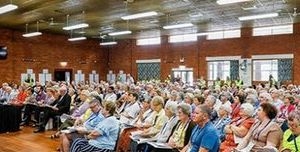
Extract from CathNews, MN news, 17 September 2020
The call for reform of diocesan and parish governance at the first session of the Maitland-Newcastle Diocesan Synod will strongly influence planning for future sessions. A Governance Focus Group is evaluating diocesan governance structures and processes and will prepare documents and recommendations for the next Synod session in 2021. It is one of several working groups preparing documents for the Diocesan Synod’s 2021 sessions and is made up of clergy, senior diocesan staff and lay members. Lawrie Hallinan, chair of the Synod’s Governance Focus Group said the group had embraced the recently released national report on diocesan and parish governance, The Light from the Southern Cross: Promoting Co-Responsible Governance in the Catholic Church in Australia. This report was recommended by the Royal Commission into Institutional Responses to Child Sexual Abuse. “The concerns and hopes expressed at our Diocesan Synod are echoed in many of the themes and recommendations of The Light from the Southern Cross report,” Mr Hallinan said. “Some of the report’s recommendations are already established practice in the Maitland-Newcastle Diocese, such as a functioning diocesan pastoral council (locally known as the Council for Mission) and a publicly available annual report (including financial report).” Mr Hallinan said the focus group was grateful for the report’s theological explanations of governance, which emphasise all the baptised fulfilling their right and responsibility as missionary disciples. The Maitland-Newcastle Diocesan Synod will take place over three sessions. The first session was in November 2019, with further sessions planned for May and November 2021...(more) Photo: MNnewsToday
Pope Francis's powerful gestures are urgently in need of a theological language
Extract from Massimo Faggioli, La Croix International, 16 September 2020
United States. Rarely does a journal article offer an X-ray of a particular moment in a pontificate, providing such depth and detail that it remains essential to understanding how a pope perceives his ministry in the life of the Church. But that's exactly what happened in September 2013 when Antonio Spadaro, editor of La Civiltà Cattolica, published his blockbuster interview with Pope Francis. It happened again earlier this month when the Italian Jesuit published another article in the venerable journal explaining his confrere's style of papal governance. The most recent piece is especially important because of what the Jesuit pope says in his own words. The pope says the driving force of his pontificate is not institutional reform. The pontificate is far from over, but this is a delicate moment of passage to understand what type of reform Francis can realistically expect to achieve within a timeframe that can be measured historically, rather than in geological eras. The Civiltà Cattolica article responds to a number of essays published in the last few months – one of them my own here – that analyzed the repercussions of the pope's interpretation of the 2019 Synod in the exhortation Querida Amazonia. They pointed out the gap between the proposals for institutional reform approved by the Synod (viri probati, ministries for women) and the non-reception of these proposals by Francis in his post-synodal exhortation.....(More)
Extract from Marilyn Rodrigues, Catholic weekly, 16 September 2020
Both major parties to support law affecting sacrament. A push to force priests to report information on child sexual abuse gained during confession looks likely to continue in Western Australia despite a parliamentary committee’s recommendation that it would be an ineffective measure against abuse. The recommendation was made in a report by the Standing Committee on Legislation on the Children and Community Services Amendment Bill 2019, which passed the state’s Legislative Assembly in May and will be considered by the upper house. In its current form, the bill is in line with WA’s Premier Mark McGowan and Minister for Child Protection Simone McGurk’s commitment to require priests to break the sacrament’s absolute confidentiality in known or suspected cases of child sexual abuse. The five-member WA committee recommended last week that “ministers of religion be excused from criminal responsibility [of mandatory reporting] only when the grounds of their belief is based solely on information disclosed during religious confession.” But Liberal Opposition Leader Liza Harvey said on 15 September that her party had decided against supporting the recommendation.....(more)
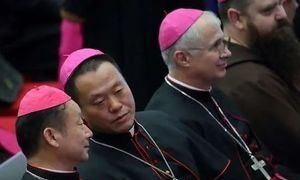
ANALYSIS: China and the Vatican have agreed to extend the historic agreement reached in 2018 for another two years
Limited Extract from Loup Besmond de Senneville, subscription journal La Croix International 16 September 2020
Two years ago, it was hailed as a historic agreement. And it was. After almost 70 years without diplomatic relations, the two-year agreement China and the Holy See, signed on September 22, 2018, on the appointment of bishops was widely welcomed. But the content of this text has always been kept secret and is due to expire in a few days. Until now, it was not clear whether it would be renewed. But La Croix has learned from a source close to the negotiators, who insisted on total anonymity, that the agreement will be extended for another two years under the same terms as the one signed in 2018. The very renewal of the Sino-Vatican is itself an event. While the question of the appointment of bishops may seem technical, what is at stake in the eyes of Rome is nothing less than the unity of Chinese Catholics and the avoidance of a possible schism. This is in a country where the Communist authorities have been appointing the bishops they wish for decades and without Rome's approval, while "clandestine" bishops loyal to the pope were being ordained at the same time. On two different occasions -- in 2016 and 2018 -- the authorities challenged the Holy See by appointing about 40 bishops independently. These were massive appointments that would have anchored the Chinese Church's separation from Rome, and would have made it difficult for them to be recognized later. What is known about the terms of the current agreement is that the pope has the last word on episcopal appointments -- that is, a kind of right of veto -- while Rome commits to no longer appointing clandestine bishops without Beijing's agreement....(source).
Cardinal Jean-Claude Hollerich mentioned role of women in the Church as the most important question in the reform debate
Limited extract from subscription journal La Croix International staff, 14 September 2020
COMECE president all praise for German Catholic Church's Synodal Path. The EU bishops' president said he very appreciative of the German Catholic Church's Synodal Path and that this process could be an inspiration for the Church in Europe. The Synodal Path reform project in Germany is viewed "with great respect because one is daring to ask very big questions," Cardinal Jean-Claude Hollerich, president of the European Union Bishops' Commission COMECE, told Germany's Catholic News Agency (KNA). The process was launched on Dec. 1 and over the next two years some 230 bishops and lay delegates will engage in dialogue around four main themes — power in the Church, priestly celibacy, the place of women and sexuality. Cardinal Hollerich particularly mentioned the role of women in the Church as the most important question in the reform debate. "I am not saying that they have to become priests; I simply don't know that. But I am open towards that. It is clear however that the current situation does not suffice. One must see and realize that women have a say in the Church", he said. He praised the Synodal Path for being a path "of which you don't always know where it leads. One takes steps and together seeks out the next one." He said the local churches in Europe "often think too nationally, focused on the situation in their respective countries. We need to engage more with each other." The Catholic Church in Germany has begun its Synodal Path in an atmosphere of free and respectful dialogue. It held its first plenary assembly from Jan. 30 to Feb. 2 in Frankfurt. German Catholics who are delegates for the Synodal Path have held their latest plenary assembly in several different cities across the country.....(source)
Extract from Mark M. Gray, America. The Jesuit Review, 14 September 2020
Not many young adult Catholics are tuning into Masses on television or online, according to a survey conducted in July and August by the Center for Applied Research in the Apostolate. A more troubling finding is that 36 percent said they plan to attend Mass less frequently when stay-at-home orders related to the Covid-19 pandemic end and churches fully reopen. Only 25 percent said they participated in Mass online or on television during the pandemic “somewhat” or “very” often. Another 51 percent say they will return to their normal pattern of attendance after the pandemic, and 14 percent said they plan to go to Mass more often. More than one-third of young Catholics said they would attend Mass less frequently even after the pandemic. We surveyed 2,214 self-identified Catholics between the ages of 18 and 35; only 25 percent said they participated in Mass online or on television during the pandemic “somewhat” or “very” often. (The CARA poll has a margin of error of 3.6 points.) Another 22 percent said they watched Mass “a little,” and 54 percent said they had not watched at all. This breakdown looks somewhat like actual Mass attendance before the pandemic, when 13 percent of Catholics said they attended Mass weekly, another 20 percent attended at least once a month, and 67 percent attended no more than a few times a year. Sixty-three percent of young adult Catholics who used to attend Mass weekly said they now watch Mass on television or online “somewhat” or “very often,” as did 36 percent of those who attended Mass at least once a month before the pandemic. Of those who used to attend no more than a few times a year, 13 percent said they watch Mass on television or online “somewhat” or “very” often. Most young Catholics said they have not watched Mass online or on television during the pandemic. The respondents saying that they plan to attend Mass less often in the future cut across all categories of prior attendance. Of the weekly attenders, 31 percent said they will be attending Mass less often when things return to normal, compared with 42 percent of monthly attenders and 35 percent of those who used to attend a few times a year or less often.....(More).

Extract from CathNews, 10 September 2020
Catholic organisations have joined a campaign calling on the Morrison Government to extend support to asylum-seeker families adversely affected by the COVID-19 pandemic. Source: Jesuit Refugee Service Australia. The Refugee Council of Australia’s Nobody Left Behind campaign this year has the theme No Child Left Behind. Jesuit Refugee Service Australia, together with Catholic partners including the Catholic Alliance for People Seeking Asylum, Vinnies NSW, the House of Welcome, the Sydney Archdiocese Justice and Peace Office, Parramatta Diocese and Catholic schools around the country will this week acknowledge, pray for and act in solidarity with families seeking asylum and their children. There are approximately 16,000 children and young people seeking asylum in Australia. The impacts of COVID-19 have been particularly tough for people seeking asylum. Many have experienced job losses but have not had access to any form of ongoing government financial support. “Today, many hundreds of children seeking asylum are wholly reliant on JRS Australia’s food bank to eat healthy, nutritious meals. A significant number also depend on emergency relief payments to pay rent or buy life-saving medications,” JRS Australia said in a website statement on the campaign. “Children need love, care, safety, and education, not the stress of wondering where their next meal will come from or whether they will be homeless. “Join us in calling on the federal Government to extend ongoing financial support to the thousands of children seeking asylum who cannot leave Australia and need security.” .....(more). Image: children and young people seeking asylum in Australia JRS Australia CathNews 20200910

Extract from John Warhurst, Eureka Street, 10 September 2020
Knowing full well of the conservative-moderate split within the party and of the fractious relationship within the party between Turnbull and Tony Abbott, the Liberal Party delegates fell about laughing. The laughter was derisory. Facts can’t be papered over by sweet talk. The same is true of the church in Australia today. This fact of life must be spoken about openly in the lead up to the Plenary Council assemblies. What is happening at the moment is that certain bishops are condemning members of the church renewal movement as pressure groups pushing an agenda, while ignoring the well-known fact that groups with other agendas are widespread within the church. Condemnation of the renewal movement is a clear attempt to shut down legitimate engagement and debate from some quarters while allowing jockeying, factional politics and agenda-pushing by other conservative groups, including certain bishops, certain Catholic media and other groups embedded in the hierarchical structure of the church. My impression is that bishops prefer to deal with individuals. Catholics who organise themselves independently of official church structures to advance church renewal are frequently treated with suspicion by the hierarchy. Trying to shut down the renewal movement is not the work of the Holy Spirit. If it continues it will make for a very lop-sided Plenary Council. No amount of prayer and discernment will overcome a stacked assembly. The renewal movement is large and growing numerically and in regional diversity. It has engaged with the Plenary Council through submissions and public discussions from the very beginning. It has also tried, collectively and individually, to engage with bishops and other church leaders.....(more). Photo: St Patricks Cathedra Parramatta Leela kajonkij Getty Eureka Street 202009010
Extract from Des Cahill and Peter Wilkinson, Pearls & Irritations, John Menadue Public Policy Journal. 10 September 2020
It is almost three years since the Royal Commission inquiring into child sexual abuse recommended that the Australian Catholic Bishops Conference (ACBC) request from the Holy See responses on 14 matters. The Holy See responded in February 2020 with ‘observations’. Seven months later the ACBC has forwarded them to the Commonwealth Attorney-General and made them public. The Australian Royal Commission into Institutional Responses to Child Sexual Abuse is widely regarded as the most thorough and most credible assessment of clerical sexual abuse of children within the Catholic Church. Its 17 volumes of evidence and recommendations, set out in 7,400+ pages, is the most detailed and comprehensive of any inquiry – church-sponsored or state-sponsored – anywhere in the world. Among its many recommendations on the Catholic Church in its December 2017 Final Report were 14 specifically addressed to the Australian Catholic Bishops Conference (ACBC), urging them to engage with the Holy See on a range of matters relating to the universal law and practice of the Catholic Church. The ACBC referred the recommendations to the Holy See in August 2018, but only now, two years later, has the ACBC made the Holy See’s response public. In February 2020 the Holy See issued an undated, unsigned, sans letterhead document with a set of ‘observations’ on all matters in the 14 recommendations. In theological terms ‘observations’ would have to rank very low in the order of church teaching or papal magisterium. In fact, it could be argued that they lack the level of gravitas and authoritative response that the recommendations from a Royal Commission Report deserve and warrant. But what should be made of these observations that the ACBC has been sitting on for the past 7 months and discussing in secret? Are they so astonishing or controversial that the ACBC has felt compelled to keep them secret from the Commonwealth Government who funded the Royal Commission to the tune of around $500 million, and from the Australian public whose taxes paid for the inquiry? Or has the ACBC just been engaging in yet another of its ‘delay and straight-bat’ plays?.....(more)
Extrtact from Mark Bowling, Catholic Leader, 8 September 2020
Priests in Queensland will be forced to break the seal of confession to report child sex abuse to police. New laws passed through Queensland Parliament on Tuesday, September 8 mean religious institutions and their members are no longer able to use the sanctity of the confessional as a defence or excuse in child sex abuse matters. The laws passed with support from both major parties, and despite strong opposition from the Catholic Church. The new laws arose as a result of recommendations from the Royal Commission into child sexual abuse, and failure to comply will carry a three year jail sentence. Brisbane Archbishop Mark Coleridge has maintained the Church commitment to the protection of children, however breaking the confessional seal would “not make a difference to the safety of young people”. In a formal submission to a parliamentary inquiry, Archbishop Coleridge explained that stripping Catholics of the seal made priests “less a servant of God than an agent of the state”. He said the proposed legislation raised “major questions about religious freedom” and was based on a “poor knowledge of how the sacrament actually works in practice”. Archbishop Coleridge said the seal “enables the penitent to speak openly before God, to stand open and honest before God, to hide nothing from the God who sees all and forgives all.” However, Police Minister Mark Ryan maintains the laws will ensure better protection for vulnerable children. “The requirement and quite frankly the moral obligation to report concerning behaviours towards everyone applies to everyone in this community,” he said. “No one group or occupation is being singled out. “Child protection is everyone’s responsibility.”....(more)
Extract from Christopher Lamb, The Tablet, 4 September 2020
Pope Francis decided against giving the green light to married priests after the Amazon synod because he was concerned the debate militated against true discernment. The pope felt that the discernment became impossible because debate became a parliamentary-style battle between different sides. He has revealed his thoughts in a note in which the 83-year-old Jesuit Pope also emphasises that the “synod is not over”, calling on the Church to “continue walking together”. These and other comments suggest the door is not closed on future reforms. In a personal note shared with the Jesuit journal La Civiltà Cattolica, Francis says that during last year's synod there was “a rich discussion…a well-founded discussion, but no discernment”. The Pope continues: “We must understand that the synod is more than a parliament, and in this specific case, it could not escape this dynamic. On this subject it was a rich, productive and even necessary parliament; but no more than that. For me, this was decisive in the final discernment.” A majority of bishops attending the October 2019 synod gathering voted in favour of ordaining married men as priests for remote parts of the Amazon rainforest, where communities are unable to celebrate the sacraments regularly. But sources inside the synod say the proposal was strongly resisted by senior prelates in the Roman Curia who succeeded in blocking any immediate change....(more)
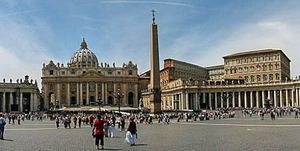
Extract from CathNews, 4 September 2020
The royal commission proposed that the Bishops Conference engage with the Holy See on those recommendations because they relate to universal Church law or practice. Vatican Secretary of State Cardinal Pietro Parolin confirmed that the recommendations, and the entire final report of the royal commission, were studied closely by several Vatican dicasteries. The Holy See reiterated its commitment to child protection, and its desire to “spare no effort … in collaborating with civil authorities to pursue every avenue to end the scourge of sexual abuse”. “The Pope has sought to promote reform and vigilance at all levels within the Church and to encourage the efforts of local Churches in the same direction,” the response said. “That commitment has led to the adoption, both by the Holy See and by Dioceses, Episcopal Conferences and Religious Institutes, of a wide range of measures, designed to ensure a proper response to such cases, including at the canonical level, as well as encouraging cooperation with civil authorities, both domestic and international.” Many of the royal commission’s recommendations have already been addressed by the Holy See, including some of the matters related to priestly formation and the appointment of bishops. Others, such as having local tribunals to manage disciplinary cases, are still under consideration because they are part of a broader revision of Church laws that will be applicable worldwide. Bishops Conference president Archbishop Mark Coleridge said the commitment to child safety that underpins the Holy See’s observations is one the Church in Australia shares......(more) Photo: CathNews 20200904

Extract from CathNews NZ, 3 September 2020
For the last decade, church experts have been wrestling over the best ways to reach and retain “millennials,” which is a phrase the describes individuals born from the early 1980s through the mid-1990s. Data shows that many millennials leave the church during their college years, and some never return. The fastest-growing religious identifier among this generation is “spiritual but not religious.” But as millennials age, get married, and start families, they are no longer the only “young people” that churches must consider. A new cohort has risen: “Generation Z” or individuals born between the mid-1990s and early 2000s. Generation Z diverges from millennials in many ways and presents unique challenges and opportunities for churches who hope to capture their attention. For this reason, I decided to speak with Pastor James Emery White about his new book, “Meet Generation Z: Understanding and Reaching the New Post-Christian World.” Here we discuss what sets these young people apart from their elders and what he believes it means for modern ministry, evangelism, and apologetics. What do you mean when you say that the church is at the beginning of a ‘seventh age?’ White: During my studies at Oxford, I was introduced to the writings of a Catholic historian named Christopher Dawson. He had an intriguing thesis he introduced just after WWII that I have come to appreciate: that the history of the Christian church can be divided into segments of 300-400 years, and that each of these “ages” began — and then ended — in crisis. The nature of each crisis was the same: intense attack by new challenges, if not enemies, from within and from without the church. .......(More) .Photo: CathNews NZ 20200903
Extract from Bruce Duncan, Pearls & Irritations, John Mendaue website, 2 September 2020
Here in Australia, we need to make a bigger contribution to the fight, given our abundant resources and expertise. Pope Francis has repeatedly challenged us to “make some noise” about the issues of climate change, poverty and extreme inequality. He summarised his concerns in his social encyclical Laudato Si’: On Care for our Common Home’, which he signed on Pentecost Sunday, March 24, 2015. This is not just any other document from the Pope. It is his signature document about how faith should be mobilising our hearts and energies to tackle these imminent threats to the wellbeing of hundreds of millions of people and even endangering the very life-support systems that sustain humankind and all God’s creatures. Francis is in no doubt about the “catastrophic” threats from climate change, and he reflects the overwhelming views of climate scientists. Laudato Si’ was launched in Rome on June 18, 2015, by one of the world’s most eminent climate scientists, Professor Schellnhuber, of the Potsdam Institute for Climate Impact Research. In writing this document, Francis drew from his personal involvement tackling issues of poverty and injustice in Argentina. In it he showed he is listening intently to leading scientists and economists about what needs to be done to ensure a better life for all people. Hence he released Laudato Si’ to bolster international support for the UN Paris Climate Conference held in December 2015, and to encourage all nations to endorse the UN Sustainable Development Goals (SDGs). Soon after he spoke to the UN General Assembly on September 25, 2015 in New York, 193 member states voted to adopt the 2030 Agenda for Sustainable Development. Keep the action going from Laudato Si’....(more)
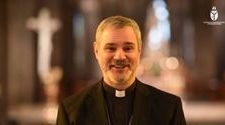
Extract from Communications Office CAM Wednesday 2 September 2020
In his latest video message, Archbishop Peter A Comensoli welcomes the new season of spring as recognition of 'the hope that the Lord has for each one of us.' He also invites everyone to take up the chance to read something new: 'Make it something spiritually nourishing ... something that can bring the Gospel alive in your life.'....(HERE) Image: 20200902 CAM

Extract from Vivien Williams, 2 September 2020
Introduction: I have worked – and continue to minister – across the church in a breadth of ministries. When the opportunity came to present a submission to the NPC I did so keenly – as one of the People of God, as a member of a renewal group, as a friend assisting others whose parishes offered no preparation, as a facilitator of parish groups, endeavouring to discern local responses. Consequently I have been long awaiting the papers which will inform the next steps of NPC preparation. In observing the exacting process by which members of writing teams were chosen, I expected a highly competent, enlightening and enlivening result, with appreciation of the breadth of good current theology, pastoral initiatives, resources and networking already happening across the church and society. I expected clearly expressed documents, and prioritising of specific issues to be taken forward, including those needing further reflection, blocks etc. I found them often unwieldy to read and digest, with only glimpses of capturing the breath of God’s enlivening Spirit. Some seemed to be a cobbling together of ideas, uncritically presented, with little evident weighting. I appreciate that writing teams have attempted to take seriously many of the diverse ideas raised in submissions and imagine that within each team the diverse approaches may have been challenging, but feel disappointed at the following: 1 The 6 thematic areas:.....(full paper Here) Photo: Vivien Williams
Extract from Communications Office CAM Wednesday 2 September 2020
This year marks the 30th anniversary of Child Protection Week (6-12 September). The theme for 2020, 'Putting Children First', was chosen by the National Association for Prevention of Child Abuse and Neglect (NAPCAN) and underscores the need to prioritise the safety and wellbeing of children in all aspects of our community and family life. The occasion is of great significance for the Catholic Church in Australia as it emphasises the need for a continuous commitment to effectively safeguard children, young people, and vulnerable adults. Partnered with the commitment to safeguard those most at risk, the Church also acknowledges the devastating harm caused by the sexual abuse of children by priests, religious and lay people within Catholic settings. ‘Although the Pandemic has changed the way we are all living and working, it doesn’t change what is most important,’ said Archbishop Peter A Comensoli. ‘For Christians, the Lord Jesus shows us that at all times, the most vulnerable among us are those requiring our greatest care. Our priority is to ensure the safety and the protection of children at all times. I am sad and angered that the Church has not always been a place that has put children first. We continue to address the horror of abuse, and I will continue to meet with survivors of abuse, hearing and trusting them, and helping our Church be continually converted.’ In the lead up to and during Child Protection Week, the Professional Standards Unit of the Archdiocese will be offering some resources to ensure all of our local parishes and ministries can become places that support children and young people, and their right to be safe and feel safe.....(more)

Catholics For Renewal, 27 August 2020
Pope Francis echoes similar thoughts expressed throughout history when he said* "....The challenge of reality also requires the capacity for dialogue, to build bridges instead of walls." Regular Mass attendance by Catholics has declined from 74% of all Australian Catholics in 1954 to 11.8% in 2016. However more than 200,000 responded to the invitation by bishops to make submissions to the Australian Plenary Council process. In the same context a number of parishes are currently exploring means for collective renewal-dialogue across parishes via discussions and Newsletters, also shared through a common website which has been established - Sense of the Faithful. Adding to voices there are currently also 19 members of the Australasian Catholic Coalition for Church Reform - ACCCR. Preparation for the Australian Plenary Council (2021/2022) provides important opportunities, both for bringing about some immediate reforms in the Australian Catholic Church as well as other substantial reforms through the Council itself, subject to an adequate Plenary Agenda.
Extract from Paul Collins, Pearls & Irritations, John Menadue Website, 26 August 2020
The recent letter of the Sydney-based Catholic, Anglican and Orthodox archbishops on the ethics of the Oxford University COVID-19 vaccine has left many believers and the general community gobsmacked. Sometimes it’s hard to be publicly known as a Catholic; you can feel such a fool. Just now I’m experiencing that feeling with Sydney Archbishop Anthony Fisher nailing his colours to the mast of his colleagues, Anglican Archbishop Glenn Davies and Greek Orthodox Archbishop Makarios. All three claim that the vaccine that the federal government favours, the AstraZeneca/Oxford University COVID-19 product, uses a cell line (HEK-293) that is cultured from a previously aborted foetus, and that it is thus doubtfully ethical. According to the archbishops, another problem is that of the 29 vaccines ‘already in clinical evaluation, the Commonwealth has thrown its lot in with one that some … find morally problematical’. They are also worried that if ‘the vaccine is adopted for use in Australia, it will be “as near as mandatory as possible”.’ They don’t acknowledge that Scott Morrison has already retreated from that hard-line stance. Whatever about the views of Makarios and Davies, it’s the stance of Anthony Fisher that concerns me as a Catholic. Why? Because he is presented and presents himself in public as a spokesman for Catholicism, essentially claiming that his stance is church doctrine to be accepted by all Catholics. But many Catholics would argue that his pronouncements have ignored a basic Catholic moral principle, the principle of double effect (PDE). This principle is not exclusive to Catholics, but is used widely in the community to make ethical decisions about complex medical and other issues. In other words, Fisher’s stance doesn’t represent the mainstream Catholic moral tradition and is merely opinion with which most Catholics disagree.....(more)
Extract from Crux, Catholic News Service, 25 August 2020
Germany — The German bishops plan to seek talks with the Vatican about its instruction on parish reforms in the Catholic Church. The German Catholic news agency KNA reported the bishops said they want lay Catholics to be involved in the discussion. The bishops’ conference made the announcement after a meeting of its 27-member Permanent Council. The announcement said the president of the bishops’ conference, Bishop Georg Batzing, would accept an offer for talks recently conveyed by Cardinal Beniamino Stella, head of the Vatican Congregation for Clergy. Batzing will suggest to the congregation that the discussion be held with the leaders of the synodal path reform project because the Vatican instruction addressed bishops, priests, deacons and laypeople alike, the bishops said. The synodal path is an effort by the bishops’ conference and Central Committee of German Catholics to restore trust following a September 2018 church-commissioned report that detailed thousands of cases of sexual abuse by Catholic clergy over six decades....(more)
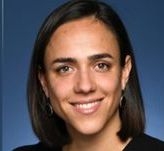
Extract from CathNews, ACBC Media Blog, 25 August 2020
Australia’s bishops have welcomed the appointment of Chiara Porro as the new residential ambassador to the Holy See. Ms Porro has worked within the Department of Foreign Affairs for most of the past dozen years, including in overseas postings in India and New Caledonia. She has also served in the Department of Prime Minister and Cabinet. Ms Porro becomes the fourth Rome-based Australian ambassador to the Holy See, following former deputy prime minister Tim Fischer, prominent Sydney barrister John McCarthy QC and career diplomat Melissa Hitchman. “The Government’s decision to appoint another residential ambassador is welcome and will help consolidate the Australian presence in the offices of the Holy See and in Rome more generally,” said Archbishop Mark Coleridge, president of the Australian Catholic Bishops Conference. “Ambassador Porro will bring to the role substantial experience as a career diplomat and also an intimate knowledge of Italian culture and language, which will serve her well. “The Australian bishops look forward to meeting the new ambassador and working closely with her on matters of mutual concern.” Ms Porro, in a message on the website of the Australian Embassy to the Holy See, noted several milestones that will take place during her time in Rome. “During my mandate, we will be celebrating 50 years of Australia-Holy See diplomatic relations – an important milestone, built on the very strong and robust people to people links we share,” she wrote. “This year we will also celebrate the 10th anniversary of the canonisation of Mary MacKillop, Australia’s first canonised saint and a remarkable woman who encapsulates the true spirit of Australia.” Ms Porro will present her credentials to Pope Francis on Thursday....(more) Photo: Chiara Porro (LinkedIn)
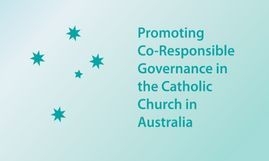
Extract from Frank Brennan, Jesuit priest and human rights lawyer, on the webinar, La Croix International, 24 August 2020
During the week, I participated in a Webinar entitled 'The Light from The Southern Cross: Promoting Co-Responsible Governance in the Catholic Church in Australia'. Zoom conferences and webinars are now a common place for those of us enduring pandemic lockdowns. This Webinar was run out of the offices of a large law firm in Sydney. The proceedings were chaired by the distinguished Australian broadcaster, Geraldine Doogue. More than 150 committed Catholics tuned in. There was quite a buzz to the proceedings. And most of the time, the technology worked well. Geraldine introduced the keynote presenter, Francois Kunc, who is a judge of the New South Wales Supreme Court. He had the unenviable task of providing a 15-minute overview of the 208-page report containing 86 recommendations for improved governance of the Catholic Church in Australia. I was one of nine responders. The other responders included three of the key authors who were part of the seven-member Governance Review Project Team commissioned to provide this report to the Church's Implementation Advisory Group which had been set up by our bishops after the royal commission. Another responder was one of the theological advisers to the review team. The discussion was lively, informed, and respectful. Men and women were at the table in equal numbers. Appropriately, the laity heavily outnumbered the clergy. But something wasn't quite right. There was no bishop on the panel. We were told that invitations had been extended, but to no avail. Like most things in the Church, there's probably a back story. But I was left thinking that a discussion about co-responsible governance in the Catholic Church could well do with a couple of bishops at the table. Most of us who spoke would have been in our 60s. When looking to future governance of our church, it's probably best to start as we'd want to finish. If co-responsibility is to work, bishops and young people will need to be at the table......(more)
Extract from Bishop Peter Cullinane, Bishop Emeritus, Diocese of Palmerston North, CathNews NZ, 24 August 2020
.........Some of Pope Francis’ critics like to contrast him with Popes John Paul II and Benedict XVI. But they conveniently overlook that Pope Francis is building on what Pope St John Paul II had already taught. It was John Paul who said “the Church’s teaching authority is at the service of conscience”; in other words, it upholds the sovereignty of conscience, it doesn’t render conscience superfluous. It was also Pope John Paul II who taught what he called “the law of gradualness”; this means recognizing that people’s ability to fully comply with the moral law develops gradually; for some faster, for some more slowly. This is why Pope Francis often speaks of taking people where they “are at” – not starting from where they should be, but from where they are – and accompanying them on the journey to where they should be. And while on the journey, they are not sinning if they doing the best they can for now, and praying for better. So when Pope Francis asks whether Eucharist is for people not yet fully complying with the moral law – who would if they could – he is not questioning the Church’s teaching, but simply taking account of gradualness in their ability to comply fully, and asking whether Eucharist is only for those who already comply fully, or also for those who are trying to get there. It is rather Pope Francis’ critics who question, and even reject, Church teachings – especially people who are protecting their own business or ideological interests. Some of them even say: ‘the Church’s job is to save souls; people’s social and economic lives are none of the Church’s business’. Here too, Pope Francis’ teaching is in line with the teaching of his predecessors. His critics are also very selective in what they accept from the social encyclicals of Pope John Paul II and Benedict XVI. Perhaps it is the gospel itself that they need to look at more closely. When it comes to the tone of their criticisms, sadly, the bitterness, divisiveness, deceptiveness and scapegoating are all tell-tale signs that their agenda are not from the Holy Spirit. There is another spirit at work. The same gospel we heard says the gates of the underworld will not prevail. But they will try! Take this as a sure guide: wherever evil is at work, sooner or later it over-reaches, can’t hide its ugly face, and discredits itself. That’s why Pope Francis doesn’t always bother to respond to his critics. But he prays for them. Many are good people, sometimes troubled people, but people in need of compassion. ...(more)
Can we save Jesus from the Church?
Consumatum est was reportedly, the last expression of Christ on the Cross— “it is finished”. The same expression could be applied today to the Catholic Church in Australia as we know it. This is a hard truth to accept, and an even greater challenge ”to practise resurrection”. How do we imagine a new Church in Australia for our times? Has the Church become incapable of sensing its own reality? Many books and articles have been written about a future Church. Journalists, scholars, and arm-chair critics have contributed. Much of these contributions has been helpful. However, I suspect that too little attention has been paid to the words of a former teacher of mine: “90% of solving a problem is to be found in properly understanding the problem“. I am not a sociologist, nor an anthropologist, but I wish I were. Even being a novelist would help. At present I am reading a novel in which Faith, in the guise of the Abbess of the convent, is challenged by science, in the guise of a medical examiner. They see the problem, two suspicious deaths , differently. The reader is forced to wonder whether they can understand each other and work together to solve the problem. In one sense, the problems of today’s Church in Australia cannot be solved just by looking inwards. A heart surgeon is as much concerned about the state of the artery, as he or she is concerned about the obesity, smoking, alcohol consumption and lack of exercise, of the patient. The artery and those other aspects of the body have to function together for the heart to be effective. Years ago, the World Council of Churches used to proclaim: “The world sets the agenda for the Church”. In essence, the reason for a church to exist, is to be on mission to its world. If you don’t understand your world, then you definitely will not be able to shape your mission effectively. This is good sociology as well as wise theology.....(more)

One of the recommendations of the Royal Commission into Institutional Responses to Child Sexual Abuse was that the Catholic Church in Australia conduct a review of diocesan and parish governance and management. The Australian Catholic Bishops Conference and Catholic Religious Australia accepted that recommendation and the Implementation Advisory Group was tasked with conducting and presenting that review.
The Implementation Advisory Group established the Governance Review Project Team to lead the review. The GRPT presented a version of the report to the Bishops Conference and Catholic Religious Australia in May 2020. That version, which was not the final version, was leaked and published.
That version was subsequently amended, making a number of corrections and clarifications. The final version of the report, entitled The Light from the Southern Cross: Promoting Co-Responsible Governance in the Catholic Church in Australia, was presented to the Bishops Conference and Catholic Religious Australia in mid-August 2020. The report was published online on August 21, 2020, along with an accompanying Reading Guide.
Click here to access a Reading Guide, which people are encouraged to read before the report.
Click here to access The Light from the Southern Cross.
Extract from Media Blog, ACBC, 21 August 2020
Catholics in Australia are being encouraged to participate in a first-of-its-kind week-long retreat in preparation for the ecumenical celebration of the World Day of Prayer for Creation on September 1. The “7 Days of Creation Reflection-Retreat” has been prepared by Columban priest Fr Charles Rue, whose ministry has for many years had a focus on the Catholic understanding of care for the environment. Fr Rue said the retreat is inspired by the leadership of recent popes, who have proclaimed the message of caring for God’s creation. “Pope John Paul II in 1990 named environmental care as integral to Catholic faith and named St Francis of Assisi as the patron of ecological conversion,” he noted. “Pope Benedict XVI reinforced this Catholic vocation. Pope Francis in Laudato Si’ detailed the call to See, Judge, Act on care for our common home. Hear the twin cry of the poor and the cry of the earth. “For the Church in Australia, the establishment of Catholic Earthcare back in 2003 was an important initiative and one that has helped foster a broader understanding of this issue across the country.” Fr Rue said the retreat was designed to lead people up to the World Day of Prayer for Creation, so they are encouraged to start it on Tuesday, August 25. However, it could be prayed at any time during the September “Season of Creation”, which runs from September 1 until St Francis’ feast day on October 4.....(more)
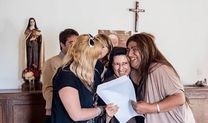
Extract from CathNews NZ, 20 August 2020
Discalced Carmelite nun Mónica Astorga Cremona wrote to Pope Francis telling him about the inauguration of a new housing complex she has established to help transgender women living in poverty. The new 12-studio apartment complex in Neuquén, Argentina, is part of a permanent housing solution for about twelve people between the ages of 40-70. The pope, who is an old friend of Cremona, replied to her letter saying “God who did not go to the seminary or study theology will repay you abundantly” for the work you have done. He told her he is praying for her and the transgender women she is assisting, adding, “Don’t forget to pray for me. May Jesus bless you and the Holy Virgin guide you.”....(more) CathNews NZ 20200820
Extract from Sarah McDonald, Independent, Ireland, 18 August 2020
Statement of the Pastors’ Initiative Austria on the “Instruction on the Pastoral Conversion of Parishes at the Service of missionary mission of the Church”. Association of Catholic Priests, Ireland, 13 August 2020 The Instruction offers only a rudimentary analysis of the changed social and church situation, in order then to demand canonical regulations, which already at the time of their adoption 40 years ago were no longer up to date and in part have lagged behind Vatican II. With missionary zeal it is underlined that parish councils only have an advisory function, that all unordained persons are forbidden to preach during the celebration of Mass and a collegial leadership of priests and laypersons is forbidden. If we were to lead our parishes with this exhorted monarchical clericalism we would be losing those Christians who are jointly responsible and who are the salt and the light of a parish that is turned towards the people. The Instruction conjures up a situation in which bishops and priests, out of pastoral need, are driven to “insubordination”. So the letter is based on not taking the situation seriously and dividing the bishops, priests and parishes. The great illusion of the Instruction is to think that the Church can speak of a missionary approach today, without, as church leadership themselves accepting the fundamental values of modern society and of the Gospel, such as participation and the equal dignity of every person to realise themselves. (cf. Letter to the Galatians 3:26: For all of you through faith are sons and daughters of God in Christ Jesus). We also see that through the exaltation of the priesthood that God, Jesus Christ and the work of the Spirit are pushed out of the centre of church life......(more)
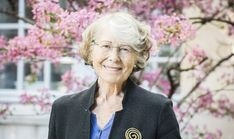
Their mission is to promote the inclusion of women in leadership of the Catholic Church
Extract from La Croix International staff (with CathNews New Zealand) New Zealand. 14 August 2020
Several New Zealand women have signed a 17,000+ person petition joining Anne Soupa's campaign to become the next Archbishop of Lyon. Calling themselves 'Be the Change', the group of men and women say their mission is to promote the inclusion of women in leadership of the Catholic Church. "As a sign of our support for Soupa, we are delighted to put our names to a global petition supporting Soupa's campaign," Jo Ayers of 'Be the Change' told CathNews. As well as signing the petition, the group also wrote to Soupa. "We are delighted to learn that you have applied for the position of Archbishop of Lyon. We think you would be an Archbishop with a fresh approach," 'Be the Change' wrote. "If canon law does not allow a woman Archbishop, we support changes to canon law." "We feel you have the knowledge and experience to become Archbishop of Lyon," they wrote. 'Be the Change' was delighted to receive a prompt response from Soupa. "I have not embarked on this enterprise in a spirit of provocation, but to offer my hand to a Church which is imprisoned in a false sense of loyalty to the past. "I wish candidates would stand all over the place, to show that women are there, ready and able, with a faith in their hearts that would move mountains," wrote Soupa. The 73-year-old journalist and biblical scholar, one of France's best known activists for a greater role for women in the Catholic Church, sent a letter to the papal nuncio in Paris on May 25 stating her desire to head the ancient diocese. She included a detailed cover letter and her curriculum vitae......(more) Photo: Anne Soupa Corinne Simon CIRIC La Croix Int 20200814

Extract from Christopher Lamb, The Tablet, 14 August 2020
Pope Francis recently broke a Vatican glass ceiling by appointing six women to serve on the board overseeing the Holy See’s finances. Reforming the chaotic, and sometimes opaque, money management practices of the Vatican has been a priority for the Francis pontificate, but one that has been hampered by infighting, resistance to change and suspect transactions. Among those chosen to sit on the Holy See’s Council for the Economy is Leslie Ferrar, a business leader with formidable experience and someone who, crucially, shares the Pope’s desire to ensure the Holy See’s finances are handled with honesty and transparency. In an interview with The Tablet, Ms Ferrar says the route to credibility will be found through integrity, transparency, and a clear set of values that everyone can operate under. She offers a simple test. “If you were talking to a judge in court would you be able to explain what you had done and not be embarrassed?” she tells me. The same rule can be adapted to a Church setting. “Is what you are doing a sin? If it’s a sin then you shouldn’t be doing it. I think helping people understand what a sin is, rather than it just being okay…is what we need to do,” the new council member explains. Ms Ferrar spent almost 30 years as a partner at KPMG, one of the “big four” accounting firms, before becoming treasurer to the Prince of Wales. She holds a series of non-executive posts including as a member of the audit and risk committee at HMRC, the UK tax authority.....(more) Photo: Pope apppoints 6 women to Vatican Council for Economy Vatican Media CPP IPA Niklestome Media PA Inages The Tablet 20200814
Posted by Enda on Catholica from Christa Pongratz-Lippitt, from The Tablet, 15 August 2020
The Vatican instruction, The pastoral conversion of the parish community in the service of the evangelising mission of the Church, of 20 July continues to be hotly debated in the German-speaking countries. In Switzerland, it has been sharply criticised by the Bishop of Basel, Felix Gmür: “That the Vatican sees the parish solely concentrated on the parish priest does not reflect our reality. It is, moreover, a theologically deficient and too constricted a view,” Gmür wrote in a letter to church employees in his diocese. The Vatican Instruction left the “stale impression” that in the final instance the Vatican was only interested in the “predominance of the clergy”. Parishes would continue to be led by leadership teams in his diocese and lay leaders would continue to be addressed as such, Gmür underlined. Parish communities had to be organised democratically in Switzerland, moreover, he recalled, otherwise they were not publicly recognised by the state. “As bishop I will not allow myself to be paralysed or blocked by these restrictive orders as much of the instruction is pretty far removed from reality,” Bishop Gerhard Feige of Magdeburg in former eastern Germany emphasised. “This is particularly so in our extreme diaspora situation, a situation which Rome obviously has not the vaguest idea about, as there are no positive solutions whatsoever for the drastic shortage of priests in the instruction,” Feige wrote in his letter to the faithful....(Catholica source)

Extract from by Soli Salgado, Global Sosters Report, 13 August 2020
Before she surprised everyone, including herself, by becoming a sister at age 50, Elise García lived a life that, in one sense, closely resembled that of a sister: She was engaged in social justice issues, advocacy and nonprofits and had a keen lifelong concern for the fate of the planet. But organized religion had been peripheral in her life, as her spirituality in adulthood was more grounded in nature and the cosmos. It wasn't until she met Adrian Dominican sisters in her social justice circles in the 1990s that she began to follow a mysterious call to Catholicism and religious life. Now, García, 70, is the president of the Leadership Conference of Women Religious, the national organization that represents 80% of women religious in the United States. In the triumvirate presidency, she is joined by past-president Sr. Jayne Helmlinger, a Sister of St. Joseph of Orange, California, and new president-elect Sr. Jane Herb of the Sisters, Servants of the Immaculate Heart of Mary of Monroe, Michigan, who was elected June 29, ahead of LCWR's annual assembly, held virtually Aug. 12-14. Today, LCWR leadership overlooks an increasingly multicultural religious landscape. Younger sisters, though fewer in number, are more diverse, equipped and enthusiastic about the potential of their global sisterhood.....(more) Sr Elise García global sisters report 20200813
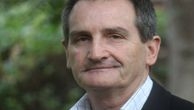
Extract from Francis Sullivan, Pearls & Irritations, 13 August 2020
Throughout the child sexual abuse Royal Commission the inquirers regularly asked why institutions not only tolerated child abusers but actively concealed their crimes. Secrecy was endemic in the culture of these institutions. Those in positions of power and influence chose to abide by the mainly unspoken rule that scandal had to be avoided and the truth not revealed. When it came to the Catholic Church this overt hypocrisy has undermined the community’s trust and fuelled the increasing cynicism that now confronts its leaders. For those of us who have worked within the institution and remain loyal to its faith community, living with the culture of secrecy is not new. In many ways it has been ingrained into the clerical/lay divide. From the sacrament of reconciliation to the ‘clerics only’ advisory committees, there has been an aura of secrecy that somehow has been deemed acceptable as part and parcel of Catholic culture. The assumption was that clerics knew best and would always work in our best interests. Secrecy was too easily confused with confidentiality, as was concealment with prudence. That is why the Catholic community itself has been complicit in perpetuating an opaque culture, where calls for accountability and transparency have been marginalised by those obsessed with control and ‘issues management’. Frankly it comes as no surprise to find the same secret approach being adopted for the Plenary Council. Take for example the recent concern about the preparation of the official strategic working document for the Plenary Council, Instrumentum laboris.....(more)
Extract from Giselle Wakatama ABC Newcastle, 11 August 2020
The notorious paedophile priest Vincent Gerard Ryan will no longer be permitted to celebrate the sacraments or dress as a priest, after a decision to remove his priestly faculties. The 82-year-old walked free on parole last month; he had served less than half of a three-year sentence relating to two altar boys. Ryan had previously spent 14 years in prison for abusing more than 30 boys. The Catholic Bishop of Maitland-Newcastle, Bill Wright, had been pressed to reveal what steps he had taken to ask Pope Francis to remove Ryan from the priesthood. At the time he was paroled, Ryan was still listed as a priest on the diocese website. The ABC can reveal that his status has now changed and his faculties have been permanently removed. Father Vince Ryan standing outside. Vincent Ryan worked in the Hunter region for decades.(Fairfax Media). The Catholic Church said faculties were a cleric's authorisation to celebrate the sacraments and act on behalf of the Church. "A cleric who had no faculties could not carry out any liturgical, sacramental or administrative action on behalf of the Church," it said. Ryan can no longer dress in clerical garb or identify himself as a priest. In the ABC's Revelation program, Ryan was seen performing mass in his home. Survivors were livid, and after the program aired they told the ABC it caused anger and distress..... (more)

Selected Topics: Mandatory reporting of Child Sexual Abuse by Ministers of Religion and Seal of Confession
Extracts from Catholics For Renewal submission on 24 July 2020. Linked here 11 August 2020
This submission to the Standing Committee on Legislation of the Parliament of Western Australia into the Children and Community Services Amendment Bill 2019has been prepared by Catholics for Renewal, a group of committed Catholic women and men who seek the renewal of the Catholic Church so that it follows Jesus Christ more closely. Catholics for Renewal was established in 2011. The names and backgrounds of the persons who prepared the submission are provided in Appendix One. Catholics for Renewal has examined the issues related to child sexual abuse in the Catholic Church over many years and has previously made submissions to the Victorian Parliamentary Inquiry into the Handling of Child Abuse by Religious and Other Organisations (2012-13) and the Royal Commission into Institutional Responses to Child Sexual Abuse (2012-17). Several of its members also gave evidence at the public hearings of both inquiries.In 2019 it published its position on similar matters it wants the forthcoming Plenary Council of the Catholic Church in Australia to attend to in Getting Back on Mission: Reforming Our Church Together. Among these is the Recommendation (4.7): ..that, as there is a critical need to ensure that child sexual abusers are not left unidentified and at large in the community, the Plenary Council should carefully examine the seal of confession as it currently operates in the First Rite, with a view to..................Catholics for Renewal fully supports Recommendations 7.3 and 7.4 of the Royal Commission into Institutional Responses to Child Sexual Abuse and the arguments supporting them...........(MORE) Link to all submissions (HERE)
Extract from Katholische Nachrichten-Agentur, National Catholic Reporter, 10 Aug 2020
BONN, Germany — Law professor Charlotte Kreuter-Kirchhof, recently appointed by Pope Francis as a member of the high-level group that oversees the Vatican's finances, said Aug. 10 that she regards it possible that women could serve as priests in the Catholic Church and in top roles within the Vatican bureaucracy. "In my view very much is possible in this area," she told catholic website katholisch.de in an interview. "But there are heated debates going on in the church about this at the moment." A Duesseldorf-based professor, Kreuter-Kirchhof is one of six women that Francis named as members of the Vatican's Council for the Economy on Aug. 6. Francis created the group in 2014 to supervise the financial activities of both the Vatican city-state and the offices of the Holy See. The council had previously included solely men. Kreuter-Kirchhof, who is also chairwoman of the Hildegardis Association, which supports women in academic education and job training, said in the interview she saw encouraging signs of women's leadership in the German church. "In many dioceses women are taking on central leadership tasks and making a substantial contribution to the future viability of our church," she said. Kreuter-Kirchhof described the new appointment to the Council for the Economy as a "clear sign of the desired cooperation between bishops, priests and laypeople and of the cooperation between men and women." The council membership reflects a togetherness that is preparing the church for the future, she said.....(more)
Re: The Next Pope: the Office of Peter and a Church in Mission. George Weigel
Extract from Letter, Rose Marie Crowe, 9 August 2020
George Weigel, in his new book, The Next Pope: the Office of Peter and a Church in Mission, purports to outline the tenor of the next pontificate, effectively dismissing the validity of our present pope, Francis, who, Weigel hints, is hostage to something he labels pejoratively as ‘Catholicism Lite’. Curiously, he proposes as a template the tactics of evangelicals and fundamentalists who maintain “clarity of teaching and strong moral expectations”. In reality, these groups espouse the literal interpretation of the Bible and derive their ethos from the most punitive verses in Scripture, applying them to justify the condemnation of others. Weigel equates truth with doctrine and mercy with the “purification” of those who “acknowledge that they have squandered their human dignity.” Though he cites the parable of the Prodigal Son to support this theory, he misses the central message of the parable: that the Father runs to meet his son, embraces him and celebrates his return without requiring that he debase himself. It is a story of unconditional love—Justice Lite, surely?.........(more)
 married Bill Watts before they settled in northern New South Wales (Supplied) ABC News 20200807.jpg)
Extract from CathNews, Vatican News, 7 August 2020
Pope Francis expressed his closeness to the people of Japan yesterday to mark the 75th anniversary yesterday of the nuclear bombing of Hiroshima. In a message sent to the Governor of the Hiroshima Prefecture, Hidehiko Yusaki, the Pope offered his “cordial greetings to the organisers and participants in the seventy-fifth solemn anniversary of the nuclear bombing of Hiroshima in 1945, and in a special way to the hibakusha survivors of the original tragedy”. The Pope also recalled that he was able to reflect on “the destruction of human life and property” at the Peace Memorial in Hiroshima and at Hypocentre Park in Nagasaki during his Apostolic Visit to the two cities in November 2019. Recalling his message at Hiroshima, Pope Francis said that “the use of atomic energy for purposes of war is immoral, just as the possessing of nuclear weapons is immoral”. In Australia, a coalition of religious organisations and faith groups have signed an open letter in support of the UN Treaty on the Prohibition of Nuclear Weapons, according to the Missionary Sisters of Service website. The open letter was organised by the International Campaign to Abolish Nuclear Weapons to mark the 75th anniversary of the bombings. Among the many Catholic signatories to the letter were Bishop Vincent Long OFM Conv, Stancea Vichie of the Missionary Sisters of Service, Sr Monica Cavanagh of the Sisters of Saint Joseph and Br Peter Carroll of Catholic Religious Australia......(more) Photo: Pope Francis at the Hiroshima Peace Memorial in 2019 (CNS/Paul Haring)

Media Release, Catholics for Renewal, 6 August 2020
Thursday 6th August and Sunday 9 August 2020 mark the 75th anniversary of the bombing of the Japanese cities of Hiroshima and Nagasaki with atomic weapons. The destruction of human life and dwellings was horrific. Pope Francis, on his visit to both cities in 2019, pleaded for the world to understand that “the possession of nuclear weapons and other weapons of mass destruction is not the answer to the longings of the human heart for security, peace and stability”. In its submission to the Plenary Council, Catholics for Renewal identified the ‘nuclear threat’ as one of the most significant signs of the times. The Catholic Church in Australia has not made a clear, forceful and principled statement on the elimination of nuclear weapons since 1985. On 3 August the Society of St Columban, whose missionary members have been working in Japan since 1948, just three years after the atomic attack, published a powerful and prophetic Message of Peace and Nonviolence calling for the abolition of nuclear weapons, their production, possession, testing and use. Catholics for Renewal unequivocally endorses this message which we re-publish below. We also pray that the hierarchy and forthcoming Plenary Council of the Catholic Church in Australia will speak to our nation and its leaders with clarity and wisdom urging a total ban on the development, possession and use of nuclear weapons here and throughout the world. "Columban Message of Peace and Nonviolence - On the 75th anniversary of the Atomic Bombings of Hiroshima and Nagasaki" HERE Photo: John Costa, Hiroshima 2015
Extract from John Warhurst, Pearls & Irritations, John Menadue website, 6 August 2020
Leading church renewal group, Concerned Catholics Canberra Goulburn, has called on Australian Catholic bishops to release an essential document for consultation with the broader Catholic community before the bishops finalise it and send it to Rome ahead of the historic Plenary Council. The Plenary Council announced last week that work recently began on the development of the instrumentum laboris, the strategic working document central to the Plenary Council process. It relies heavily on the first two preparatory phases of the Council journey: Listening and Dialogue and Listening and Discernment. It is striking that nowhere in the media release is there mention of any participation by the wider Catholic community in the preparation of this working document. And there’s no indication that the bishops will take the Catholic community into its confidence before or after the working document is presented to the ACBC. The absence of transparency in the drafting of the document at this critical point in the Plenary Council process is deeply concerning. I raised these concerns in a letter to the Plenary Council Chair, Archbishop Timothy Costelloe last week, noting that such secrecy is a breach of faith with the many thousands of Catholics who have invested heavily in time and effort, through discussion, meetings, submissions and prayerful discernment in the Plenary Council process so far. It is essential for the integrity of the Plenary Council that a draft of the working document be published and made widely available prior to its consideration by the ACBC in November....(more)
Extract from Gerard O’Connell America - The Jesuit Review, 6 August 2020
Pope Francis has appointed seven highly qualified lay persons—six of them women—and six cardinals, including Joseph Tobin of Newark, N.J., to the board of the Vatican’s Council for the Economy. The pope first established the Council for the Economy together with the Secretariat for the Economy on Feb. 24, 2014, when he issued the decree, “Fidelis dispensator et Prudens” (“Faithful and prudent administrator”), which created a new coordinating agency for the economic and administrative affairs of the Holy See and the Vatican City State. He then tasked the council with “oversight for the administrative and financial structures and activities of the dicasteries of the Roman Curia, the institutions linked to the Holy See, and the Vatican City State.” The council was to be composed of 15 members, eight chosen from among the cardinals and bishops to reflect the universality of the church and seven “lay experts of various nationalities with recognized professional financial competence.” He appointed Cardinal Reinhard Marx of Germany as coordinator of the council, and he retains that position. Pope Francis has appointed six cardinals, including Joseph Tobin of Newark, N.J., and seven highly qualified lay persons—six of them women—to the board of the Vatican’s Council for the Economy. Today the pope renewed the membership of the council by appointing six cardinals for the full five-year term: Péter Erdő (Hungary), Odilo Pedro Scherer (Brazil), Gérald Cyprien Lacroix (Canada), Joseph William Tobin (Newark), Anders Arborelius (Sweden) and Giuseppe Petrocchi (Italy). He has retained Cardinal Wilfrid Napier Fox (now 79), who was a member of the council during the past five-year term, for one more year. (Cardinals have to retire from all offices on reaching the age of 80.) It is significant, however, that Pope Francis has appointed six lay women to the council and only one lay man. It is a further indication of his determination to give more responsibility to women in the Vatican in positions that do not require ordination. There was no woman on the council during the past five-year term. All of the women are Europeans: two each from Germany, Spain and the United Kingdom. They all have first-class credentials and distinguished careers, as evidenced by the brief biographical notes provided by the Vatican when it announced the new membership of the council on Aug. 6. .....(more)

Extract from Media release,Concerned Catholics Canberra Goulburn, 3 August 2020
Leading church renewal group, Concerned Catholics Canberra Goulburn, has called on Australian Catholic bishops to release an essential document for consultation with the broader Catholic community before the bishops finalise it. The strategic Working Document, which is central to the Plenary Council process is due to be sent to Rome at the end of the year. The Plenary Council announced this week that work recently began on the development of the instrumentum laboris, with the document drawing heavily on the first two preparatory phases of the Council journey: Listening and Dialogue and Listening and Discernment. But Concerned Catholics Canberra Goulburn Chair, Professor John Warhurst AO, has written to Plenary Council Chair, Archbishop Timothy Costelloe, critical of the absence of transparency in the drafting of the document. ‘Such secrecy is a breach of faith with the many thousands of Catholics who have invested heavily in time and effort, through discussion, meetings, submissions and prayerful discernment in the Plenary Council process so far,’ Professor Warhurst said. ‘It is essential for the integrity of the Plenary Council that a draft of the Working Document be published and made widely available prior to its consideration by the ACBC in November.....(more)

Extract from Media Release, Gavin Abraham, Australian Catholic Bishops Conference, 1 August 2020
Pope Francis has this evening appointed Fr Karol Kulczycki SDS, the former head of the Salvatorians in Australia, as the new bishop of the Diocese of Port Pirie in regional South Australia. Fr Kulczycki was born in Poland in 1966, ordained to the priesthood in Trzebinia in 1994 and is currently based in Poland. He spent 21 years serving the Church in Western Australia, including in parish ministry, as vocations director and as a college chaplain. In February 2018, while still serving in Australia, Fr Kulczycki was elected vice-provincial of the Polish province of the Society of the Divine Saviour – widely known as the Salvatorians. Two-and-a-half years on, Pope Francis has appointed him Bishop of Port Pirie. “Just a few weeks ago I had an interview for our Salvatorian newsletter and was asked how and where I see myself in 10 or 20 years. I replied that I would be where God sent me. I did not expect that God would act so quickly in my life,” Fr Kulczycki said. “God is working in mysterious ways in my life. Firstly, calling me unexpectedly to religious and priestly life; secondly, directing my heart to serve him in Australia and now serving him and his people in Port Pirie Diocese.” Fr Kulczycki will become the 12th Bishop of Port Pirie – including the bishops who led what was from 1887 until 1951 the Diocese of Port Augusta. He succeeds Bishop Greg O’Kelly SJ, who has been Bishop of Port Pirie since 2009. Bishop O’Kelly also served as apostolic administrator of the Archdiocese of Adelaide for almost two years.......(more)
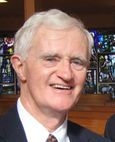
The more reflective component of the Church is crying out for imaginative leadership on the ministry crisis and institutional re-organisation. But episcopal conferences seem paralysed. Ordained in 1960 my major anniversaries synced with the decades. I published a Golden Anniversary Reflection in 2010. It characterised the decades as: *The awakening 60s; *The exciting 70s; *The suspicious 80s; *The depressing 90s and *The imploding noughties. Now at my diamond anniversary I have added *the Counter-intuitive Teens. This decade has been notable for unexpected disruptions and reversals both good and bad but all remarkable. First there was the election of Pope Francis. This brought a reversal of the 45 years of Restorationist policy under JPII and Benedict. Francis brought a pastoral mind and style of conversation which broke the formal kabuki-style image of the papacy. People heard the Jesus message in story and image as Jesus told it. Francis wanted to replace a self-referential church with one that looked outward and dealt with reality as it is. His vision was to replace a juridical institution with a pastoral community of service. His way to get there was synodal – with everyone equally walking the Way together. This disrupted the whole Roman administration and the episcopacy around the world. They were the pope’s pretorian guard – but now, the pope wanted them to change tack. Some were delighted. More were alarmed. The culture wars had been going on for decades, but now the leaders of the right swung into action with passive and overt resistance. Francis, though less familiar with Vatican politics, was the experienced veteran of South American intrigue. He skilfully made progress against opposing winds and gradually built up his own team. The opposition continues but Francis, following his own mantras, is still ahead. After years in pastoral leadership and administration, he had developed four rules of thumb: *Unity is more important than conflict. *The whole is more important than the part. * Time is more important than space – gently, gently. *Reality is more important than the idea. He is not an ideologue. Pastoral experience has softened rigidity and dogmatism. He has no time for the hard right, nor for the hard left. Reality is more important than the idea. Restorationism is over.....(MORE)

Extract from Gavin Abraham, Media release, Australian Catholic Bishops Conference, 30 July 2020
The working document – or instrumentum laboris – for the Plenary Council will provide a constant reminder of the need for deep and ongoing discernment of God’s will for the Church, the Council’s president has said. Work recently began on the development of the instrumentum laboris, with the document drawing heavily on the first two preparatory phases of the Council journey: Listening and Dialogue and Listening and Discernment. The voices of more than 220,000 people across the country, as well as discernment and writing papers on each of the six National Themes for Discernment, are being considered alongside Church teaching, Scripture, papal documents and a range of other sources – within and beyond the Church – in preparing the instrumentum laboris. Plenary Council president Archbishop Timothy Costelloe SDB pointed to a national review of parish and diocesan governance, the Royal Commission into Institutional Responses to Child Sexual Abuse and the COVID-19 pandemic as some of those sources.......(MORE)

Extract from CathNews, ABC News, 30 July 2020
Australia will commit to reducing Aboriginal and Torres Strait Islander imprisonment rates, suicides and child removals under a historic Closing the Gap agreement to be unveiled by the Prime Minister today. All state and territory governments have signed up to 16 targets as part of the national agreement, which Indigenous groups say will “move the country in a new direction” to substantially improve life outcomes for Aboriginal and Torres Strait Islander people. The deal follows years of failure to meet most of the previous Closing the Gap targets, set in 2008. But Indigenous organisations say their direct involvement in negotiating and implementing the new agreement should prove a key difference this time around. The ABC understands the new agreement will also aim to move hundreds of Indigenous adults and children out of prison within a decade.....(more) CathNews 20200730 Bigstock
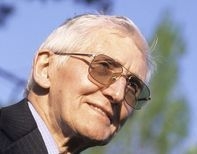
Joseph Moingt SJ explored and questioned the Christian faith, authoring books right up to the end of his long life
Limited extract from Bruno Bouvet and Claire Lesegretain, subscription journal La Croix International, 29 July 2020.
France. Father Joseph Moingt was already 103 years old when he wrote L'esprit du christianisme ("The Spirit of Christianity"), which the book's publisher defined as the French Jesuit's personal testimony. Written in an unprecedented first-person style, the work summarizes the questions of a theologian's life. Freedom was always the key word for Moingt who died on July 28 at the age of 104. This held true even if it meant questioning dogmas and developing theses that contributed to reflections that were rarely unanimous. "Each one of us will find in these pages a reason (or several) to be questioned, displaced and/or shocked," wrote Élodie Maurot in a review of Moingt's last book for La Croix. "We can therefore discuss this work, criticize it, amend it and extend it, but it would be wrong to split it up or to ignore it, because few theologians make the voice of the God who 'has so loved the world' (John 3:16) heard so clearly," Maurot declared.....(source). Photo: Joseph Moingt SJ Wilfried Guyot CIRIC La Croix International 20200729
State of the Nation address provides opportunity for visibility of dissent
Extract from Ma. Ceres P. Doyo, Global Sisters Report, 28 Jul 2020
Manila, Philippines — Nuns, priests and bishops in the Philippines issued protest calls in the run up to and during President Rodrigo Duterte's fifth State of the Nation address, delivered July 27 at the House of Representatives in Quezon City, Metro Manila. Despite warnings about the threat of the COVID-19 pandemic, nuns wearing face masks and face shields joined morning protest activities on University Avenue at the main campus of the University of the Philippines in Quezon City. The stretch branches off from the 18-lane Commonwealth Avenue that leads to the House of Representatives building, which was off-limits to the public. The Philippine Daily Inquirer reported a crowd of about 2,000. To make their presence known, nuns wearing face masks and face shields carried the streamer of the Association of Major Religious Superiors of the Philippines (AMRSP). Elsewhere in Metro Manila, other groups of nuns staged their own protests. The Missionary Benedictine Sisters who run St. Scholastica's College in the City of Manila went out to the streets to stage a short program......(MORE)
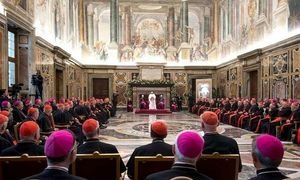
Ordination does not equal competency for leadership
Extract from James F. Keenan, National Catholic Reporter, 28 July 2020
Last week, La Croix and The Tablet both reported on an interview with the president of the French bishops' conference, Archbishop Éric de Moulins-Beaufort. During the interview, he envisioned that "the Holy See will one day be led by the Pope surrounded by a college of cardinals in which there would be women." The Rheims archbishop's musings reminded me of many years ago when I was much younger, and older Catholics were first daring to discuss the ordination of women. Invariably the debates about the probability of ordained women surrendered to the question of whether such ordination was possible. Here arguments against the possibility were raised by invoking pervasive misogyny, local cultures, theology, canon law, the Bible and even the intentionality of Jesus at the last supper! After exhausting a host of objections to the possible, invariably a senior in the room would suggest, "Why not make women cardinals?" This often prompted quizzical stares from mostly everyone, but the clever proponent would remind them that until recently there were, indeed, lay cardinals. "They didn't have to be ordained," the proponent would expertly conclude.....(more). Photo: NCR 20200728 CNS Reuters Claudio Peri
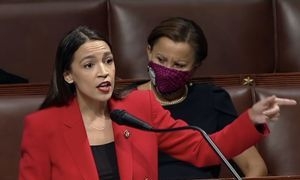
Extract from Heidi Schlumpf, National Catholic Reporter, 27 July 2020
U.S. Rep. Alexandria Ocasio-Cortez's stunning speech on the House floor last week has been called "a comeback for the ages," "the most important feminist speech in a generation" and "a lesson in sexism and decency." I just call it "truth." Responding to an incident on the steps of the U.S. Capitol in which Rep. Ted Yoho of Florida verbally assaulted her — including calling her a "f---ing bitch" — Ocasio-Cortez noted that "this is not new, and that is the problem." "This issue is not about one incident," she said. "It is cultural. It is a culture of lack of impunity, of accepting of violence and violent language against women, and an entire structure of power that supports that." As I listened to her 10-minute address on the House floor, I was struck by how often it referenced Catholic values. Ocasio-Cortez repeatedly railed against the "dehumanizing" of others and instead called for treating people with dignity and respect. These are themes often repeated by Pope Francis, who has specifically cautioned about gossip and urged the use of respectful language, saying "it is possible to kill someone with the tongue." The Democratic congresswoman who represents New York's 14th District also universalized the need to treat all people with dignity and respect, noting that Yoho's behavior gave "permission to other men to do that to his daughters." "I'm here to say that is not acceptable," she said........(More)
Extract from Reuters, The Age, 26 July 2020
Warsaw: Poland will take steps next week to withdraw from a European treaty on violence against women, which the right-wing cabinet says violates parents' rights by requiring schools to teach children about gender, the justice minister said on Saturday....(more)
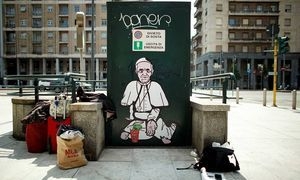
Money, Sectarianism, & Catholic Tradition
Extract from Massimo Faggioli, Commonweal, 24 July 2020
What to make of the fact that the Catholic Church received $1.4 billion from the U.S. government’s Paycheck Protection Program? The remarks from Oklahoma City Archbishop Paul S. Coakley, chairman of the USCCB’s Committee on Domestic Justice and Human Development, seem to suffice. As he put it in a statement, the “Catholic Church” in this case encompasses the hundreds of individual Catholic dioceses, parishes, schools, social-service agencies, and other organizations that collectively employ thousands of people, and so is not prohibited from receiving taxpayer-backed federal aid. “The Paycheck Protection Program was designed to protect the jobs of Americans from all walks of life, regardless of whether they work for for-profit or non-profit employers, faith-based or secular,” his statement read in part. A range of Catholic media outlets have made the same observation, and it seems clear there is less to this “story” than meets the eye. Yet at the same time, we should remain mindful about the constitutional and political issues concerning the relationship between Church and state, and the continued need for financial accountability and transparency in light of the links between the sexual-abuse crisis and financial mismanagement in Catholic institutions. It seems that some of the objection to PPP funding for the Church arises from the belief that the money could be used to pay settlements and legal costs associated with sex-abuse cases and other scandals. And this unfortunately speaks to the level of regard many people have for the Catholic Church today.....(more) Photo:Commomweal 20200724 CNS Alessandro Garofalo Reuters

New instruction on Catholic parishes is latest proof that it will be hard to wrest control from the clericalists
Limited extract from Robert Mickens, Subscription journal La Croix International, 24 July 2020
Vatican City. The Congregation for the Clergy caused a bit a surprise and a whole lot of consternation earlier this week when it issued a new document on "the pastoral conversion of the parish community at the service of the Church's evangelizing mission". There had been no inkling that any such thing was even in the works, let alone that an important Vatican text would be released in the middle of summer while Pope Francis was still on his stay-at-home, month-long holidays. "The document deals with the theme of the pastoral care of parish communities, the various clerical and lay ministries, with a view to greater co-responsibility of all the baptized," the congregation said in a press communiqué on July 20, the day the text was released. It is in the form of an "instruction", which is something Roman congregations issue to explain or clarify ecumenical (and general) council documents or papal decrees. The pope must approve the publication of instructions, which Francis did in this case. Move along, nothing new here… And that's what must be so bewildering for many people. While this new document begins promisingly with the fresh and creative language the Jesuit pope employs with such courage and foresight in his 2013 apostolic exhortation, Evangelii gaudium, the text quickly hits the proverbial canonical speed bump. Instead.....(more). Photo: La Croix International 20200724 [Ed: See related News Item below "The Pastoral Conversion...", 20 July]
Edited Extract from Kieran Tapsell, Pearls & Irritations, John Menadue website, 24 July 2020
On 16 July 2020, the Vatican published a manual for dealing with allegations of child sexual abuse against Church personnel. It marks a significant change in culture expressed in canon law for the last 100 years where the Church was more concerned about providing immunity for clergy child sex perpetrators than it was for the welfare of their victims. In 2014, two United Nations Committees, for the Rights of the Child, and against Torture, criticized the Vatican for the pontifical secret imposed over allegations of child sexual abuse and for not changing canon law to require Church authorities to report such allegations to the police. The Vatican’s response was that the Church would obey civil reporting laws, but it was otherwise not its responsibility to report – it was up to the victims, even if they were children or those intellectually incapable of reporting. The Royal Commission into Institutional Responses to Child Sexual Abuse had found in its 2017 Final Report that the pontifical secret still applied where there were no applicable civil reporting laws, and recommended its abolition. Within Australia at the time, only New South Wales and Victoria had comprehensive reporting laws. Once the other States and Territories adopted the Royal Commission’s recommendation that they pass similar laws, canon law required bishops in those places to report abuse to the civil authorities. In February 2019, Pope Francis held a summit meeting on child sexual abuse at the Vatican with the heads of national Catholic Bishops’ Conferences. Three prominent speakers, Cardinal Marx, Professor Linda Gishoni and Archbishop Scicluna criticized the pontifical secret. It was widely expected that Pope Francis would abolish it, and would impose mandatory reporting to the civil authorities under canon law, as demanded by the two United Nations Committees.....(more)
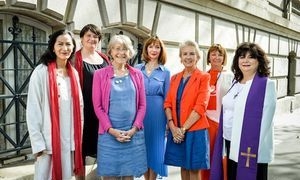
Seven women apply publicly for various Church positions -- including bishop, nuncio, parish priest, deacon, preacher...
Limited extract from Héloïse de Neuville and Xavier Le Normand, subscription journal La Croix International, 23 July 2020.
France. The date was not chosen by accident. On July 22 -- the Feast of St. Mary Magdalene, "Apostle of the Apostles" -- seven Catholic women in France decided to run for Church offices linked to ordination (bishop, parish priest, deacon, nuncio...). The initiative comes after lay theologian Anne Soupa publicly put her name forward on May 25 as a candidate to be the next Archbishop of Lyon. But this latest move goes even further than the 73-year-old Soupa's manifesto, which did not call for access to the ordained ministry for women. "Noting that two popes had declared the issue of women's access to....(source). Photo: La Croix Int 20200723 Corinne Simon Ciiric
Extract from Communications Office, Melbourne Catholic, 21 July 2020
This Wednesday, Bishop Mark Edwards OMI will be installed as the sixth bishop of the Diocese of Wagga Wagga, NSW. Before leaving Melbourne, Melbourne Catholic caught up with Bishop Mark for a conversation and walk through the Fitzroy Gardens, where he reflected on what he’ll miss most about “home”, his thoughts on the Plenary Council and how passing on the faith is all about telling stories...(more including video farewells by Bishop Mark and Abp Peter Comensoli HERE)
Extract from Michael Sean Winters, National Catholic Reporter, 20 July 2020
.......It was McElroy's discussion of this "moment of societal crisis," however, that makes his homily especially worthy of widespread consideration. A kind of "state of the local church" reflection, it has wide applicability for the rest of the country. First, he notes that "the pandemic has transformed the landscape of our ecclesial life in ways that will permanently change the nature of pastoral action and evangelization. Patterns of parish life that have sustained community and the proclamation of the Gospel for decades have been ruptured by the isolation of these months and the atomization of all social life that we have witnessed. There is a great danger that that pandemic is creating a culture of increased disengagement within the life of the Church that will persist long after a vaccination is found." For the church, the words "sustained community" are especially important. Communities do not self-sustain on autopilot. They need to be tended and nurtured, and the methods the church in the U.S. has adopted have wilted in the heat caused by this virus. McElroy then looks at the national focus on racial issues, "The issues of race and nationality, the rights of immigrants and the imperative for authentic solidarity in society and our Church that have surfaced in these past months are also a turning point, not an episode," he said. "We are in the midst of a profound social renewal in which the meaning of equality in our nation is in these days being irrevocably changed for the better." I want to share the bishop's confidence that we are in a moment of "profound social renewal" and that things are changing "for the better." I worry that the righteous anger at the persistence of racial injustice has spent itself on symbols and semiotics. The murders of Ahmaud Arbery, George Floyd and Breonna Taylor demand more than statements and empty pedestals. "Finally, and most profoundly, the pandemic has destroyed our individual and collective feelings of security on every level — personal health, financial security, safety, and relationships," McElroy continued. "We have come face to face with the existential reality that we are not in control and that the security we had treasured and presumed is an illusion." McElroy said that these three ruptures — "the disruption of ecclesial life, the overpowering recognition that we do not live in a society of authentic solidarity, and the devastating assault that the pandemic has visited upon our false sense and sources of security" — force the recognition that our ecclesial structures will not be recovered so much as they will be transformed, of necessity......(more)

Extract from Instruction. Holy See Press Office, 20 July 2020
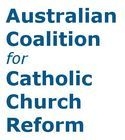
Extract from Media Release, Australian Coalition for Catholic Church Reform (ACCR), 20 July 2020
Australia's Catholic bishops must appoint a woman as co-chairperson of the church Plenary Council if they wish the summit meeting to be taken seriously, the Australian Catholic Coalition on Church Reform has declared. After a Zoom meeting attended by over 100 church reform advocates representing thousands of Catholics from around Australia and New Zealand on 16 July, co-chairs Andrea Dean and John Warhurst said there was overwhelming support for recognition of women's leadership in the church. This is fundamental to the reform of church governance. ‘Women play a leading role in the day-to-day support of Catholic Church liturgies and in running its health, education and social services, but are excluded by church law from executive governance. For there not to be a woman chair of the Plenary and for women not to have equal representation in the preparation of discussion documents for the Plenary would expose the Plenary as an anachronism with compromised credibility and relevance for the Australian community,’ Ms Dean and Professor Warhurst said. ‘A woman co-chair is a matter of justice. If the bishops were to reject this move, then it would be incumbent upon them to explain clearly why more than half of the active faithful should be excluded from leadership of the Plenary. Exclusion of women in this way would be a powerful symbol of business as usual. ‘This issue is a matter of urgency given the bishops intend to submit the ‘Instrumentum Laboris’, the key document that will determine the Plenary agenda, to the Vatican for approval this September. Why are they rushing this? The Plenary has been deferred for 12 months. When would this have been done if the PC had not been deferred from this October? ‘There also needs to be clarity in the agenda concerning priority for other necessary reforms including the establishment of Diocesan Pastoral Councils and Assemblies before the Plenary.’...........(more)

Extract from James, Catholica, Saturday 18 July 2020
In 2014, two United Nations Committees demanded that the Vatican get rid of the pontifical secret and impose mandatory reporting of all child sexual abuse to the civil authorities. Inquiries in the United States, Ireland and Australia were highly critical of it. Francis finally gave into the pressure and abolished it in December 2019, but still resisted mandatory reporting unless the civil law required it. Many civil laws including in most Australian States didn’t have comprehensive reporting laws. The problem with this is that he could never make Bishops accountable under canon law for cover ups. He used the feeble excuse that there were repressive regimes in the world. There are, but every coherent legal system in the world deals with that kind of problem with exceptions and the Code of Canon Law has 1,300 exceptions to its universal laws. Well, finally he has at least done something. Bishops are required to report where there is a risk to the survivor or other children, not by a change in the law but by a requirement in a practice manual, which is probably enough to make a bishop accountable for a cover up. Bishops can be held accountable under canon law for negligence in office, and the standard of care required is to report where the welfare of children is at risk, as prescribed in the manual. The manual indicates an interesting change of culture because canon law for at least 100 years was more concerned about protecting abusive priests than the welfare of children. Even the "repressive regimes" was based on concern about priests and not about children. In 2002 in the United States and 2010 elsewhere, when the Vatican required bishops to comply with civil reporting laws, it was obvious that the cultural concern of the Vatican was not the welfare of children, but the the protection of bishops and cardinals from going to jail for obeying the pontifical secret and not reporting.....(more)
Extract from Christopher White, National Catholic Reporter, 17 July 20020
A new report by Leadership Roundtable recommends establishing national standards for financial management for dioceses across the United States, along with an annual, publicly shared audit of financial policies and practices. It also calls for the church to invest in more training and support for young adults interested in ministry. The proposal is modeled after the "Dallas Charter," which was implemented by the U.S. bishops in 2002 and established national protocols for child protection and would be codified in the church's canon law. The Leadership Roundtable is an organization devoted to promoting best management practices in the church. "We Are the Body of Christ: Creating a Culture of Co-Responsible Leadership" is the result of a two-day gathering hosted in February in Washington. The conference brought together more than 260 individuals from around the globe, with keynote remarks delivered by Archbishop Christophe Pierre, papal nuncio to the U.S.; St. Joseph Sr. Carol Zinn, executive director of the Leadership Conference of Women Religious; and Archbishop Wilton Gregory of Washington, among others. Released on July 16, the 29-page report also urges the Vatican to host a meeting of the presidents of bishops' conferences from around the globe to focus on financial management, modeled after the February 2019 meeting that brought together the heads of every bishops' conference from around the world to address the clergy sexual abuse crisis....(more)

Extract from J A Dick, Another Voice, 17 July 2020
A feminist is someone who supports equal rights for women: someone who believes that women should have the same political, religious, social, and economic rights as men. It has absolutely nothing to do with putting down men in order to elevate the status of women. Despite the strongly negative understanding of women and women’s rights in his day, the historical Jesus refused to treat women as inferior to men in any way. In his prophetic speech and action, Jesus — Yeshua — was a feminist. Earlier it was perhaps better but, by the time of Jesus, religious attitudes and behavior toward women had drastically changed. In theory, women were held in high regard by first-century Jewish society, but in practice, this was not always true. First century Jewish culture was strongly patriarchal; and women in Palestine, suffered various forms of ingrained prejudice against them.The daily prayers of Jewish men, for example, included this refrain: “Praised be God that he has not created me a woman.” The woman’s place was to be in the home: to bear children and to rear them. Men were not even to acknowledge and greet women in public. Some Jewish writers like the Jewish philosopher Philo (20 BCE – 50 CE), taught that women should never even leave their homes, except to go to the synagogue. Women, back then, had a very restricted position. They had little access to property or inheritance, except through a male relative. Any money a woman earned belonged to her husband. Men could legally divorce a woman for just about any reason, simply by handing her a writ of divorce. A woman, however, could not divorce her husband. In the Temple in Jerusalem, women were restricted to the outer forecourt, the “women’s court,” which was five steps below the court for men. In synagogues women were separated from the men and not permitted to read aloud. They were also not allowed to bear witness in a religious court. All four Gospels, however, portray Jesus as boldly moving beyond the religious and cultural misogyny of his days. There are many examples, but here are three sets I like to stress:....(more) Image: Another Voice 20200717
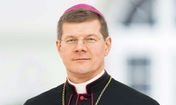
Extract from Catholic News Agency (CNA) Staff, 16 Jul 16, 2020
A German archdiocese is pressing ahead with plans to dramatically reduce the number of its parishes despite the Vatican’s decision to block a similar plan in another diocese. CNA Deutsch, CNA’s German language news partner, reported July 15 that Archbishop Stephan Burger intends to turn the archdiocese’s 1,000 parishes into 40 mega parishes. In a July 14 letter to archdiocesan staff, Burger described the proposal as an “adequate response to the challenges facing our archdiocese.” He said: “At the moment, I see no reason to make any changes to the objectives and the main features of the project.” The Archdiocese of Freiburg, which has almost 1,000 priests and serves 1.8 million Catholics, is located in the state of Baden-Württemberg in southwest Germany. According to official statistics published in June, 22,287 people formally left the Church in the archdiocese in 2019. The reorganization project, known as “Church Development 2030,” is currently being discussed in deaneries. Their feedback will result in a second draft. After further discussion, a final decision will be taken on the program by the end of the year. The Vatican intervened last month to stop the Diocese of Trier, located in the west of Germany near the border with Luxembourg, from merging its 887 parishes into 35 larger parishes, following a three-year diocesan synod. The diocese said that two Vatican departments -- the Congregation for Clergy and the Pontifical Council for Legislative Texts -- had raised concerns about “the role of the pastor in the leadership team of the parish, the service of other priests, the conception of the parish bodies, the size of the future parishes and the speed of implementation.” Trier diocese is now working on a new plan to address the Vatican’s objections. ....(more). Photo: Archbishop Stephan Burger Archdiocese of Freiburg CNA 201700716

Extract from Trish Hindmarsh, Pearls & Irritations, John Menadue Website, 15 July 2020
Let’s not entirely knock the six Theme Papers from the Plenary Council Writing Groups. Short-comings? Of course. Are they a faithful representation of the sensus fidelium expressed through the 220,000 participants in the Plenary lead up? Yes, and no. Could other, more competent people had been working on them? No doubt. Are humans capable of reaching genuine consensus when confronted with a variety of worldviews, back ground experience and formation? Hopefully, but only with difficulty, patience, prayer, study and dollops of respectful listening. I came to some sharp realization of all this as a member of the Writing Group for the theme, ‘Conversion, Renewal and Reform’. It was challenging for me to work at a deep level with Catholics from totally different faith experiences … converts too young to be steeped in Vatican 2, knowing nothing from lived experience of those hope-filled years after the Council when the Adelaide Diocese set up its Diocesan Pastoral Council; the Australian Justice and Peace Commission was founded; the laity hungered for formation; the liturgy took on renewed life and immediacy; prophetic voices were being heard from the basic Christian communities in Latin America; the religious orders were refounding themselves in response to the call to go out to the peripheries with Good News to the poor; ecumenism and inter-faith dialogue were flourishing. We older, Vatican 2 Catholics in the group were among ‘newer’, youthful and fresh-faced Catholics for whom the Theology of the Body, loyalty to the tradition and its authority and Adoration of the Blessed Sacrament are compelling fundamentals of Catholic culture. We did share common ground… a desire to listen to the Spirit; the power of prayer and the grace of the sacraments; a love for Christ; hope for a faith-filled future for our children … During the months of work and reflection, we also came to consensus regarding how critical to God’s mission are ecological conversion; openness to our First Peoples and their wisdom; reformed governance structures for a renewed, ‘synodal’ church; and recognition of how antithetical to the conversion, renewal and reform of the church are the structural ‘sins’ of clericalism and the exclusion of women. The alternative to patient, respectful dialogue, to negotiated pathways through discernment, is factionalism, isolated self-righteousness, echo-chambers where the ‘friend of my friend is my friend and the enemy of my friend is my enemy’. If we insist only on reinforcing our own position, without a willingness to sit together in our parishes, dioceses, homes and local cafes, engaged in fellowship and dialogue, face-to-face or online, difficult, tedious and utterly frustrating as that can be, we are left with division and dead ends. Ultimately a failure to engage in respectful, skilled processes of dialogue and negotiation leads to the sort of sabre rattling that we are seeing, terrifyingly, right now in our nation and across our planet. The world needs the church to model a better way to go about the human business of peaceful coexistence, seeking alternatives to conflict and war.....(more)
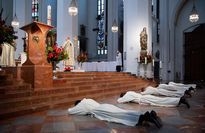
Steady decline in number of priesthood candidates has bishops re-thinking current structure
Limited extract from Gwénaëlle Deboutte, subscription journal La Croix International, 14 July 2020
Berlin. In Germany, a working group of the German Bishops' Conference has proposed to concentrate formation in a smaller number of dioceses. "The number of candidates for the Catholic priesthood has gone from 594 in 2011 to 211 at present," said Heinrich Timmerevers, Bishop of Dresden-Meissen. Because of this steady decline, the Germany's Catholic bishops over the past several years have been considering how they might streamline the formation of future priests. Three seminaries and nine teaching locations. Timmerevers, 67, co-chairs the German Bishops' Conference (DBK) working group on the issue. And on June 23 that body presented a proposal....(source). Photo: Photo: La Croix Int 20200714 Sven Hoppe DPA MAXPPP

Extract from David Timbs, Pearls & Irritations, John Menadue Website, 13 July 2020
Branch stacking scandals are not new to Australian politics of whatever colour. Nor is the phenomenon new to the Catholic Church. In fact, the caper originated within Jesus’ inner circle and it hasn’t let up since. The gold standard was set by the mother of James and John, two of Jesus’ first followers. On her knees she begged Jesus to grant her sons promotion to the top spots in the coming Reign of God (Mt 20: 20-28). Jesus declined the request but that setback never inhibited many of her sons’ successors down the ages transforming ecclesiastical branch stacking into an art form. Occasionally upright men have issued cautionary reminders that appointments to positions of authority should be validated by the consent of the people. Hippolytus, Bishop of Rome (215 CE), proclaimed: “Let the bishop be ordained after he has been chosen by all the people”. Pope Leo I affirmed the same principle: “Let him who is to preside over all be elected by all”. And in 1054 CE, French Cardinal Humbert roundly condemned those clerics aspiring to episcopal office without reference to those who are the reason for the episcopate in the first place: “…. anyone who is consecrated as a bishop is first to be elected by the clergy then requested by the people and finally consecrated by the bishops with the approval of the Metropolitan archbishop….. Anyone who has been consecrated without conforming to all three rules is not to be regarded as a true, undoubted, established bishop nor counted among the bishops canonically created and appointed.” In Australia, episcopal branch stacking in the Catholic Church began well before the early English Benedictine bishops, Polding and Vaughan, had completed their service. It was spearheaded by the ultramontane tragic, Cardinal Paul Cullen (1803-1878), Archbishop of Dublin. From the 1850s his influence in Rome enabled 12 of his personal relatives and former students to gain appointments to Australian bishoprics. His greatest success, in 1884, was the appointment of his nephew, Patrick Francis Moran, as first Irish Archbishop (later Cardinal) of Sydney. By 1885, 21 of the 33 men appointed to Australian bishoprics were Irish.......(more) Photo:

Strange as it sounds, there's word the new constitution is signed and the rings have been ordered
Limited extract from Robert Mickens, subscription journal La Croix International, 10 July 2020
Vatican City. It is perhaps the most ambitious project of the current pontificate: attempting to truly reform the mentality and structures of the Catholic Church's central – and, up until Francis arrived, centralizing– bureaucracy known as the Roman Curia. Exactly one month after his election in March 2013, the Argentine pope established the "Council of Cardinals". Originally made up of eight and then nine senior churchman from different parts of the world, the members of this C-9 were given the task of helping Francis in his governance of the Universal Church. They were also given the very specific project of drawing up a plan to reform the curia by revising the apostolic constitution Pastor Bonus, which currently regulates this Vatican structure. A draft of the new constitution was completed over a year ago, but the pope wanted to give national episcopal conferences, select heads of religious orders and certain theologians the opportunity to offer more suggestions. Early in the year there was talk that the final document would be released on the Feast of the Chair of St Peter in February or, at latest, the Feast of Saints Peter and Paul at the end of June. Praedicate Evangelium has already been signed. But then the pandemic hit and the remnant of the C-9, now reduced to just six cardinal-members, cancelled its last three meetings. So is the project on hold? Not according to a source at the Vatican who claimed the new constitution, Praedicate Evangelium, is done and Pope Francis has already signed it. It appears the text is currently being carefully translated into the major languages. And once that is done, it will be officially published. Naturally, this would be extremely out of the ordinary. The middle of Roman summer is not usually the time for launching major Vatican documents or important events. But this is not an ordinary pontificate. No matter....(source) Photo: La Croix International 20200711
Extract from CathNews, Australian Catholics, 10 July 2020
Catholic Professional Standards Limited held the first session of its online Seminary Formation and Safeguarding Seminar last Friday in Melbourne, which included a keynote address from Fr Zollner for seminarians and others involved in forming people for religious life. The Head of the Centre for Child Protection at the Pontifical Gregorian University in Rome, Fr Zollner spoke of a recent study on priestly formation by Sr Anna Mary Thumma, which highlighted how both those in formation, and those doing formation, believe there is inadequate focus on the human aspects of priestly life. “My own experience tells me that we really focus much in formation on questions of faith and theology – and this is certainly one key area – but we focus much less on relational, emotional and other issues that also need to be addressed,” he said. He asked formators to consider how many priests leave the priesthood because of crises of faith or theology-related issues, as compared to those who leave because of issues around human relationships and sexuality. “I’m a university professor, so I have nothing against intellectual formation. But when we look into the real needs and the real challenges that priests live up to, my question is whether pastoral, spiritual and the human formation needs much more attention given to them,” he said. One of the issues is that priests in formation may not trust formators enough to come forward to them about their anxieties and problems in these areas because they’re worried about being sent away. “They try to go underwater from the day of their entrance in seminary and they dive through for five or eight or whatever years, trying to be as calm and trying to not to show any signs of disturbance or trouble or questions,” Fr Zollner said. “The fear is that they will be thrown out of the seminary, so they become what I would call “submarines”. Similarly, bishops and formators might themselves be hesitant to initiate these conversations for fear of losing people from the priesthood, he said....(more).

Extract from CathNews, The Southern Cross, 2 July 2020
Catholics from reform groups across Australia and New Zealand met via Zoom last month to discuss the Plenary Council and Church governance. Participants representing 17 reform groups and other invitees joined the forum of the Australian Coalition for Catholic Church Reform (ACCCR) to discuss the way ahead for Church decision making, especially in the lead up to the Plenary Council, which is now scheduled for October 2021. Presentations included overviews of the Plenary Council process to date, reviews of the six official discernment papers meant to shape the Plenary Council agenda, and the Implementation Advisory Group’s recent governance report, "The Light from the Southern Cross". Speaking shortly after the forum, ACCCR Convener, Peter Johnstone, said that the coalition was increasingly harnessing the energy for renewal Australia-wide. “Catholics want a Church that lives and models the teachings of Jesus,” he said. “We believe that this is the most representative meeting of Catholic reform groups ever held in Australia. “We were pleased to also have New Zealand Catholics share their views. “Catholics are insisting that the now deferred Plenary Council, when it does meet, addresses the real issues of a debilitated Church and failed Church leadership.....(more)
Extract from Benjamin Conolly, The Catholic Weekly, 2 July 2020
Pope Francis has appointed Archbishop Anthony Fisher OP to a second five-year term on the Congregation for the Doctrine of the Faith. The CDF is the top Vatican body for promulgating and defending Catholic doctrine. Appointment to the CDF, which the Archbishop has held since 2015, is an acknowledgement of an individual’s deep proficiency and expertise in the Catholic faith. The position also recognises Archbishop Fisher’s expertise in fields such as bioethics where, even as a priest, he was widely regarded as one of Australia’s top experts. In 2019 the Archbishop was also appointed to the Congregation for the Oriental Churches and serves as a member of the Pontifical Academy for Life.....(more)
( News 2020, January to June, HERE )